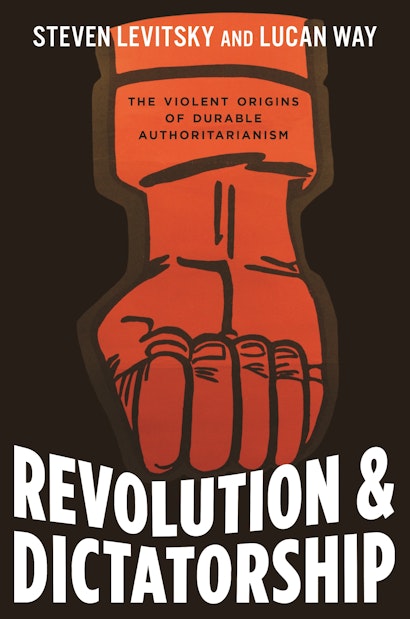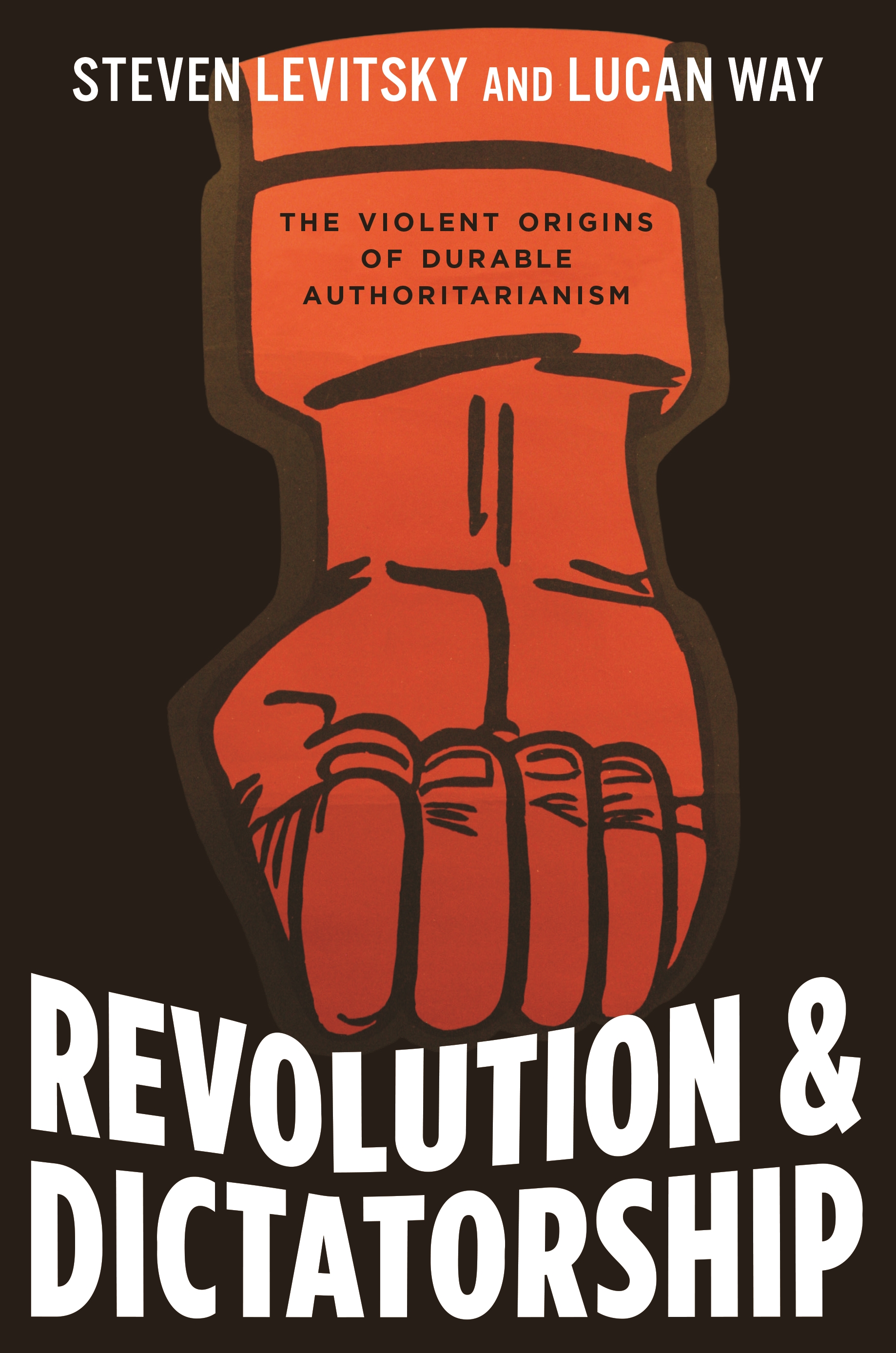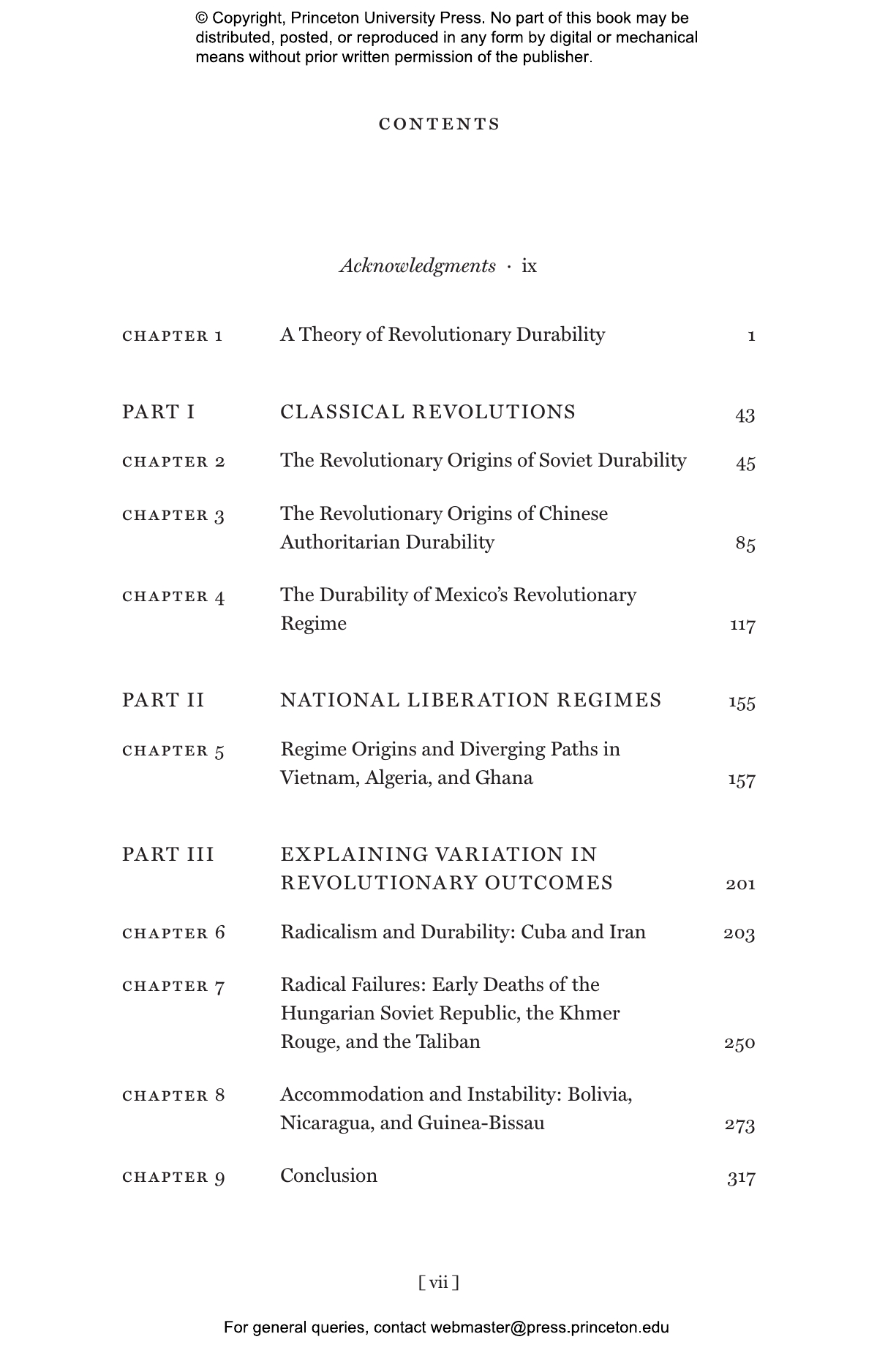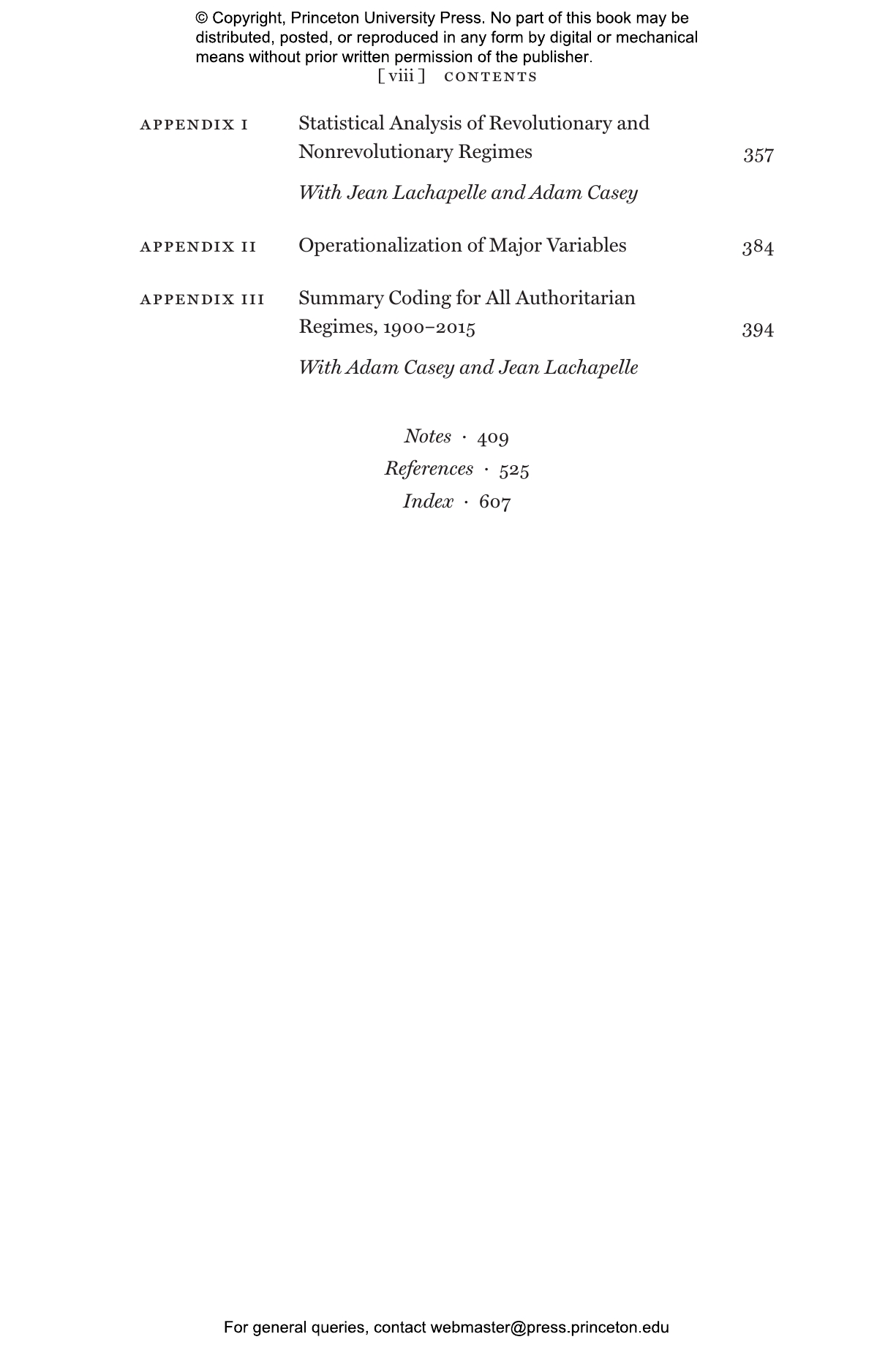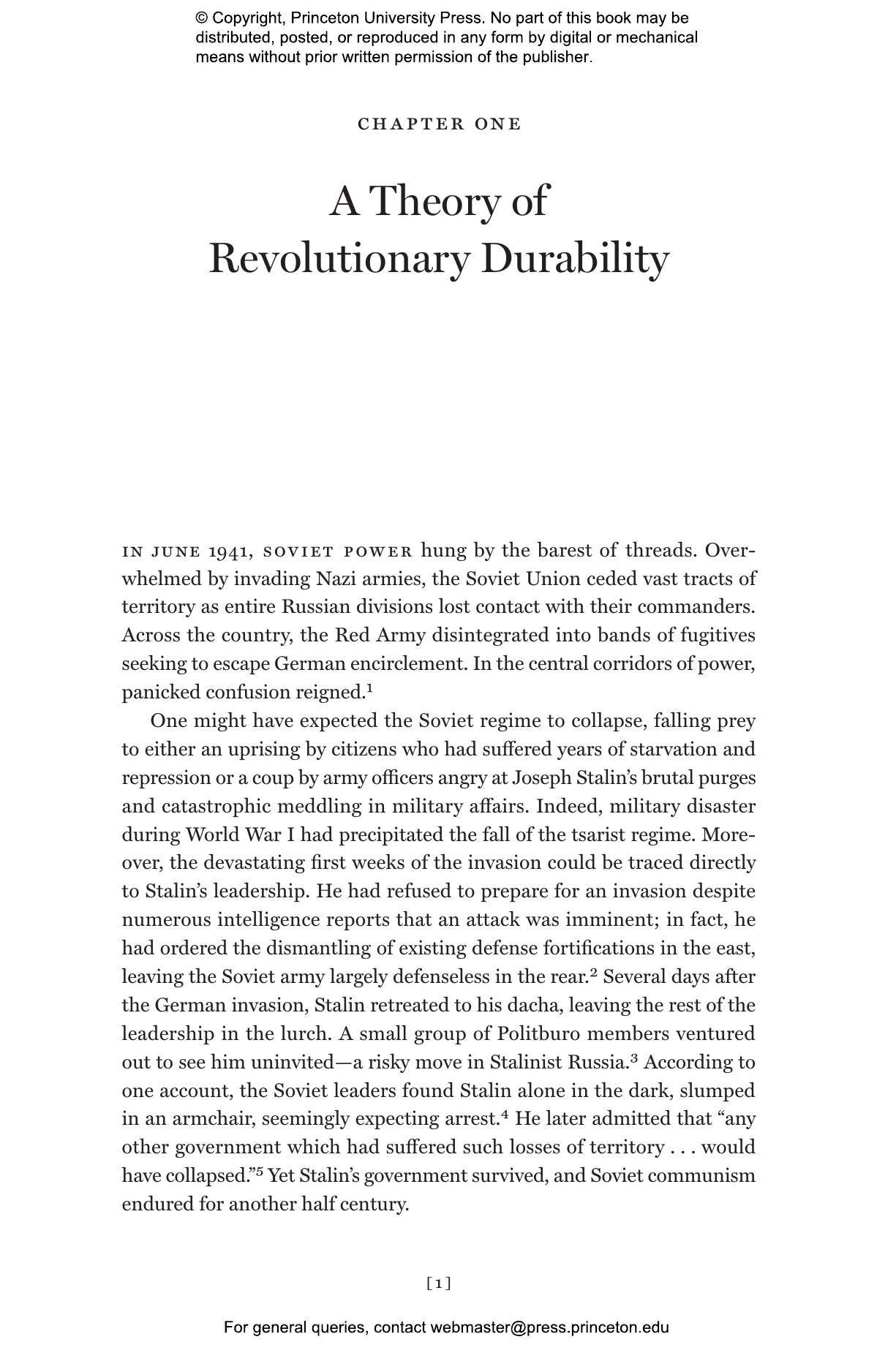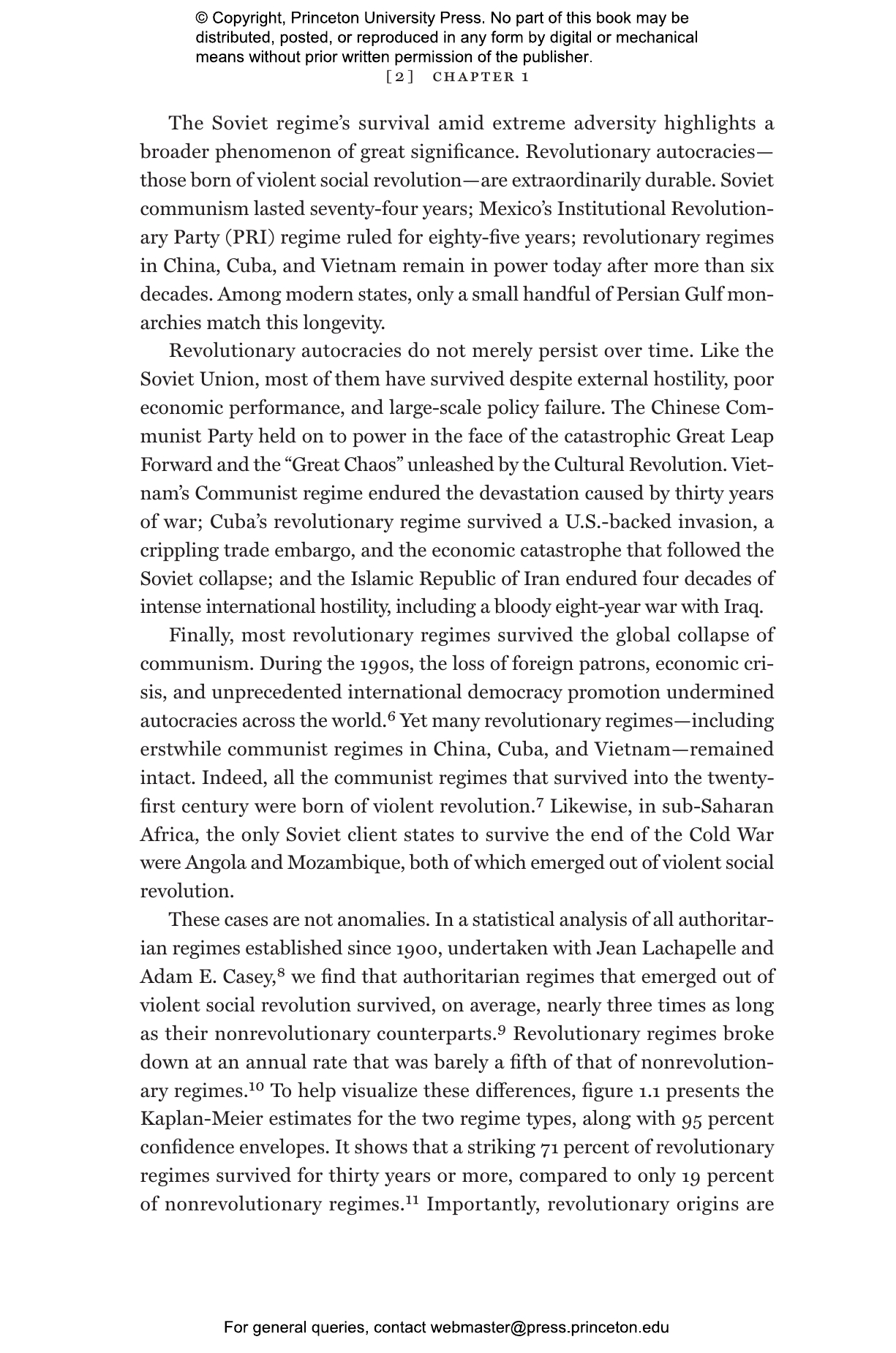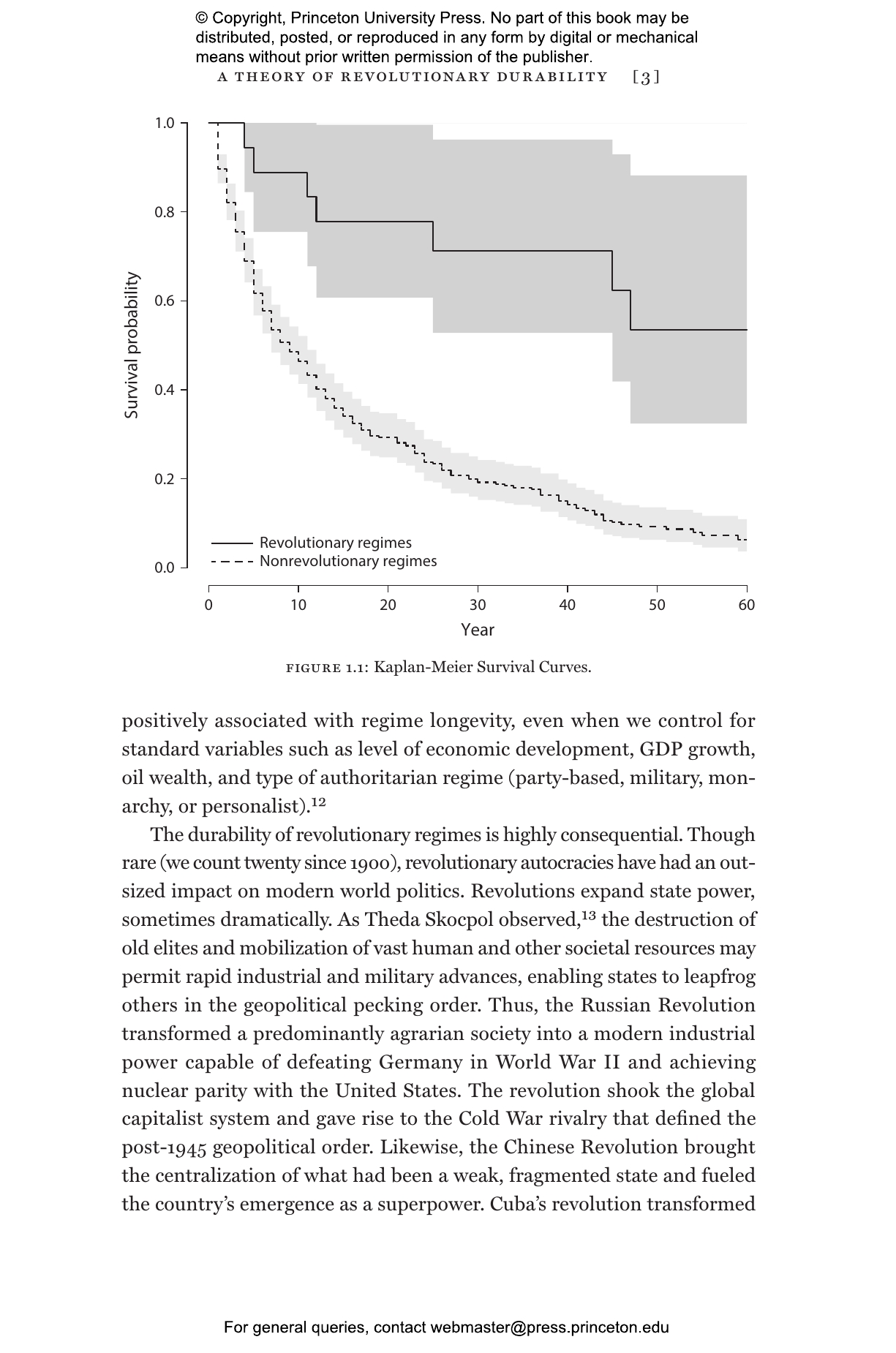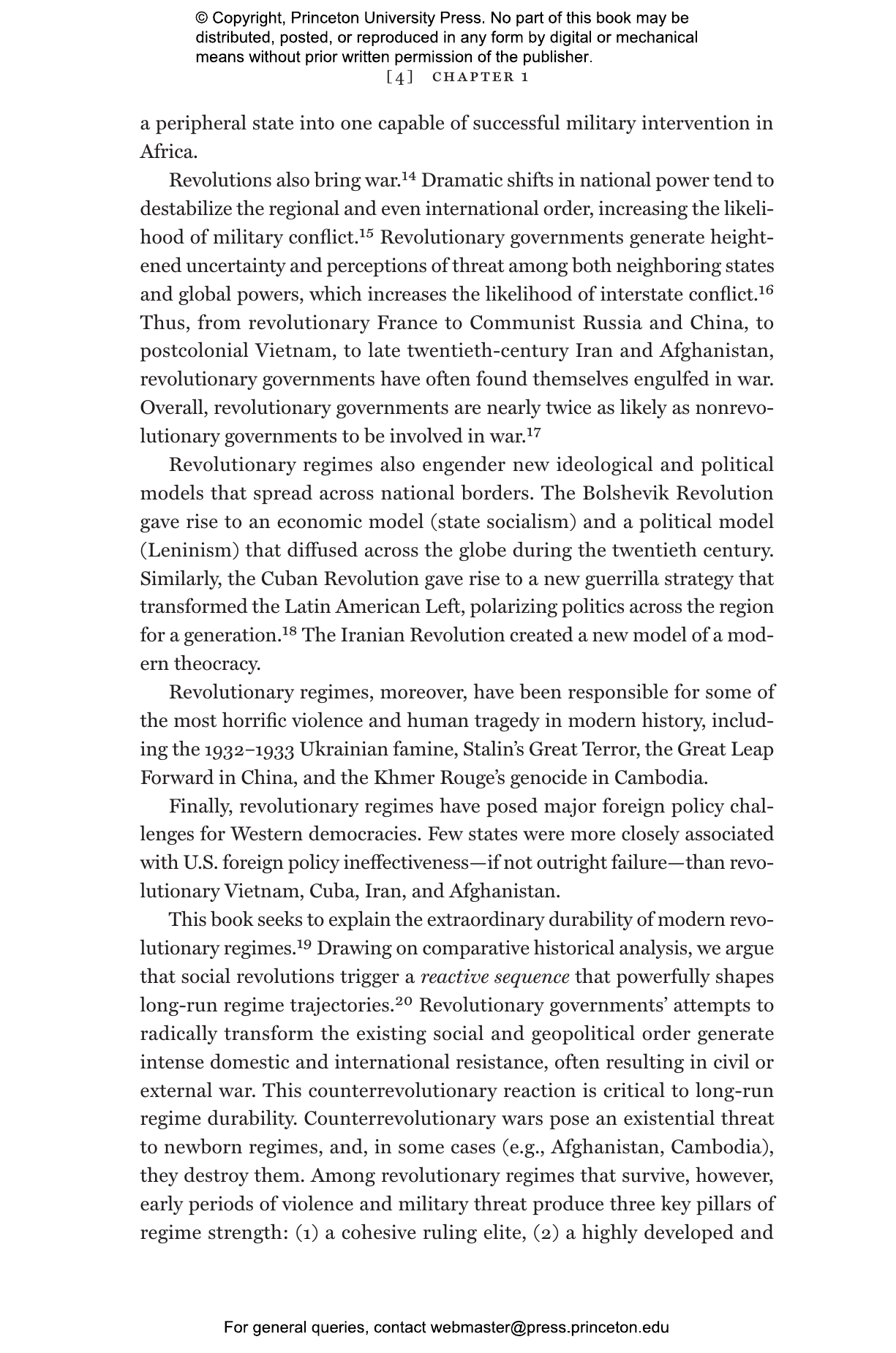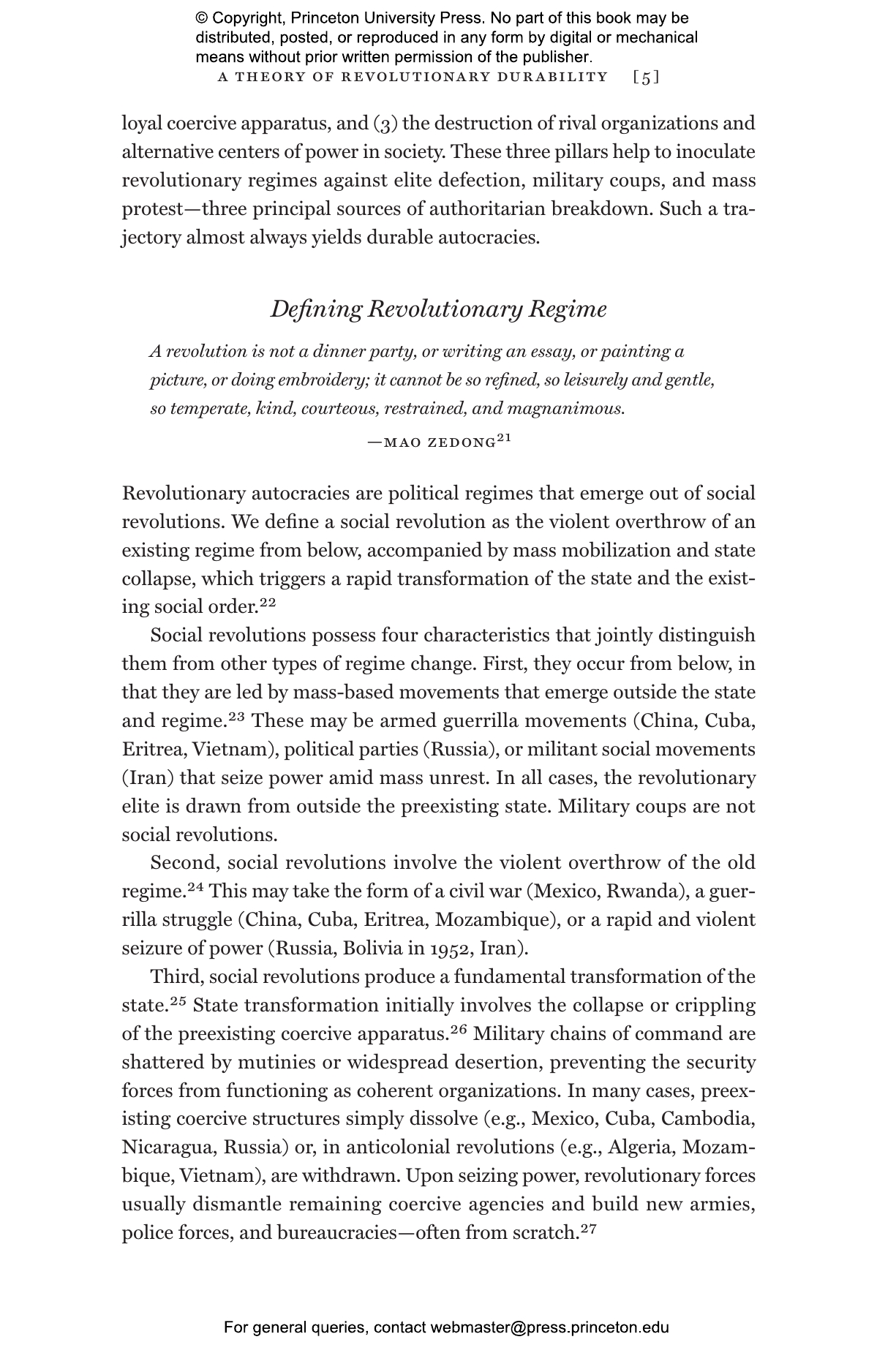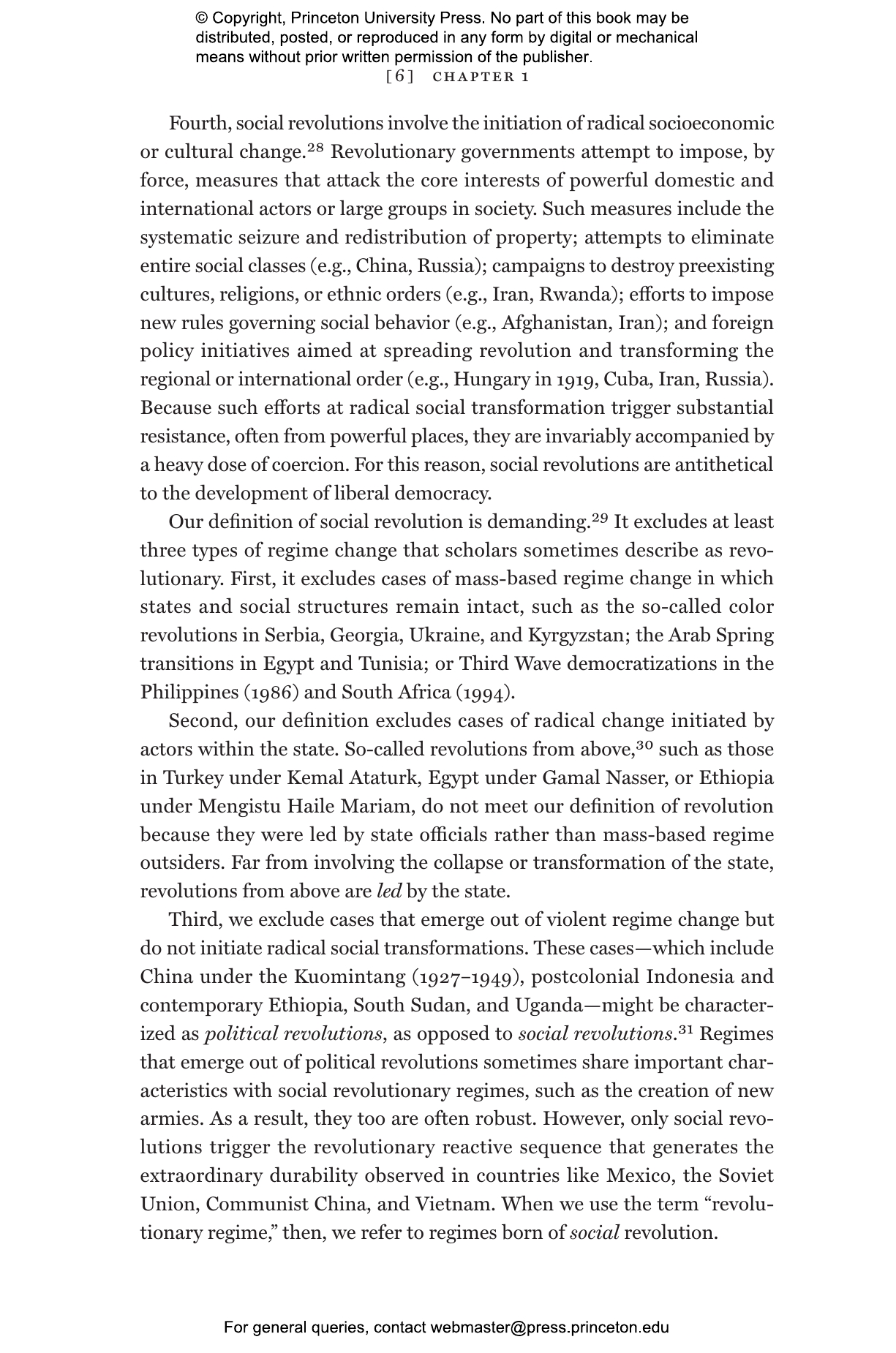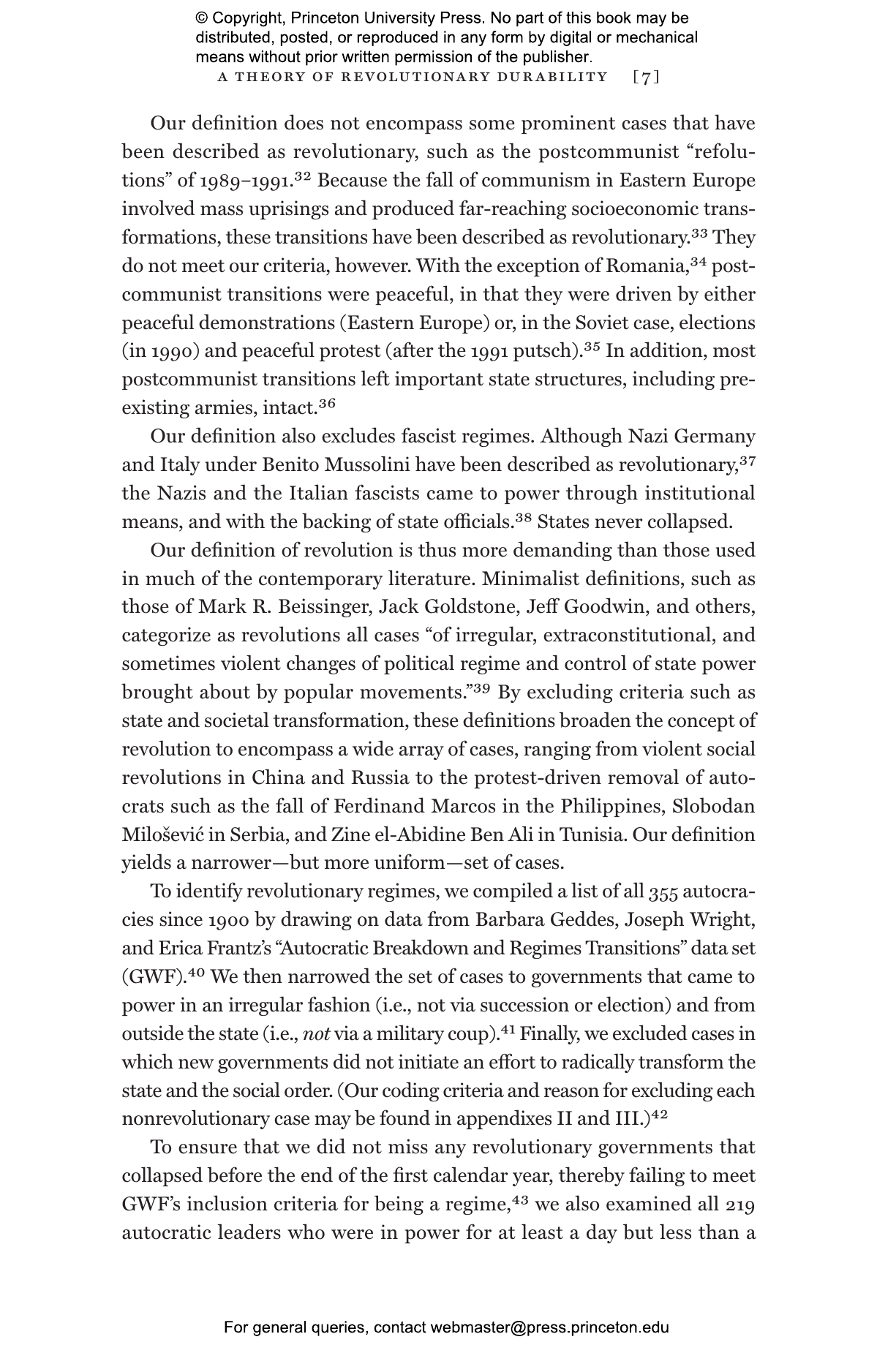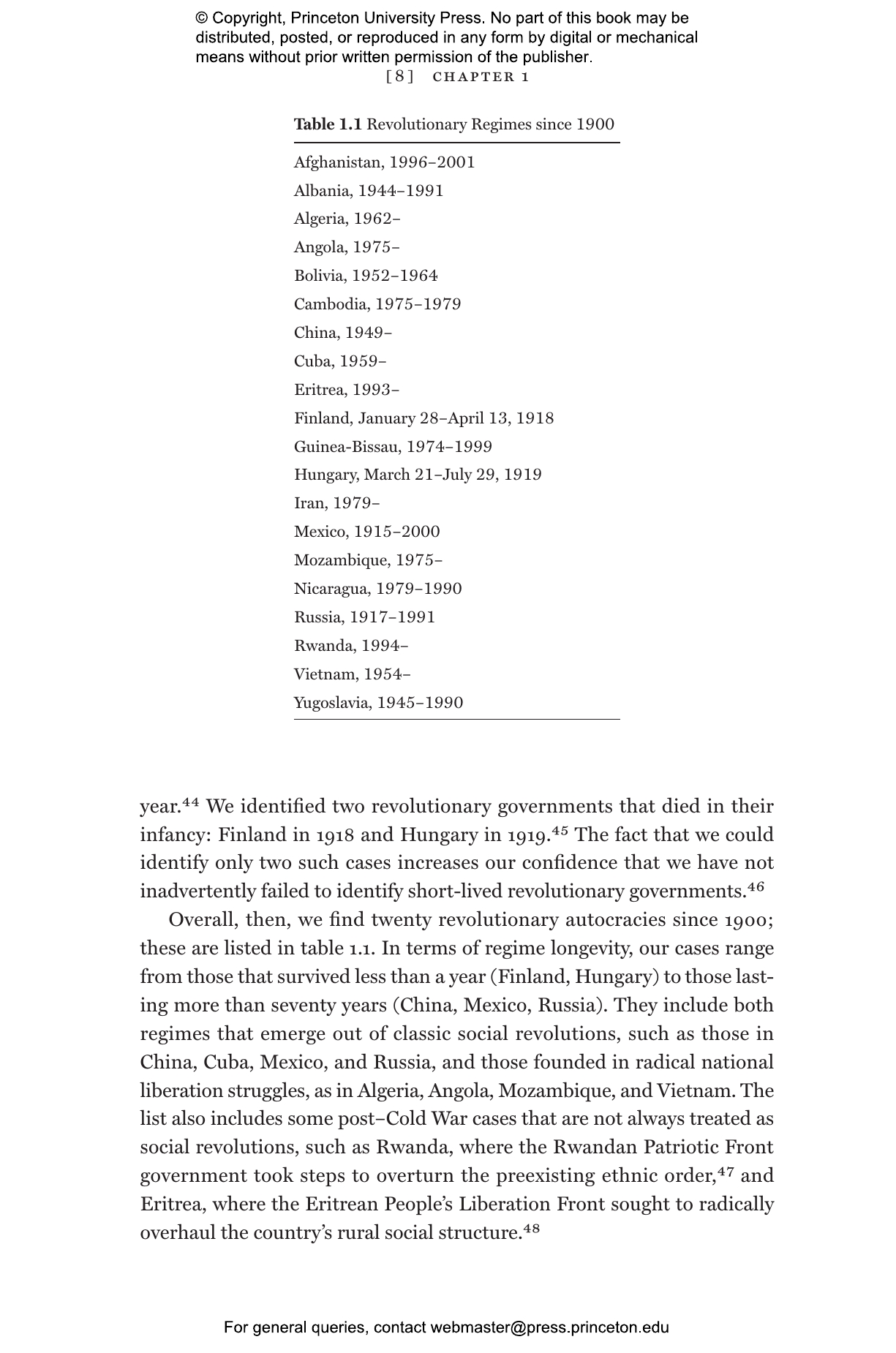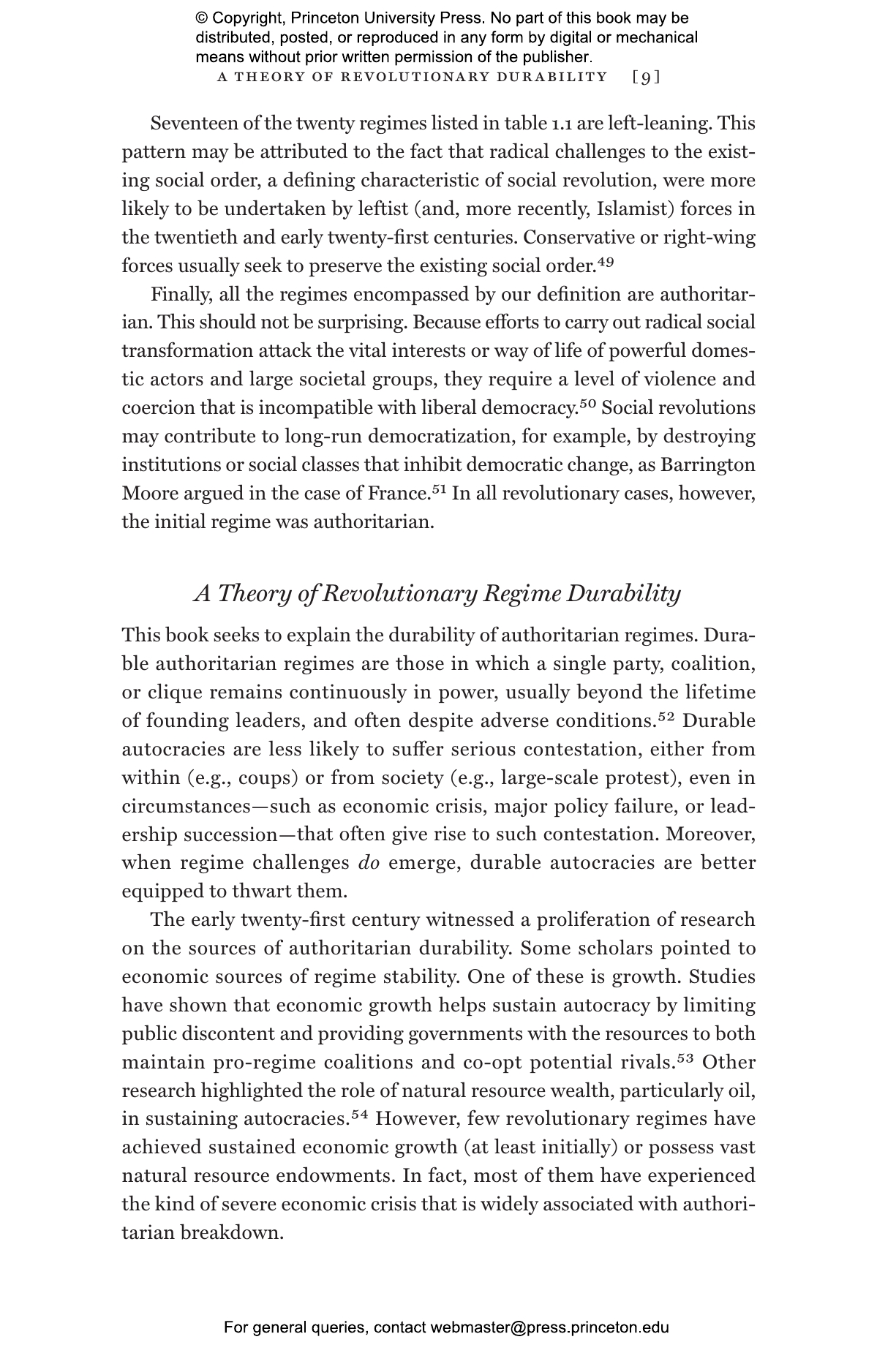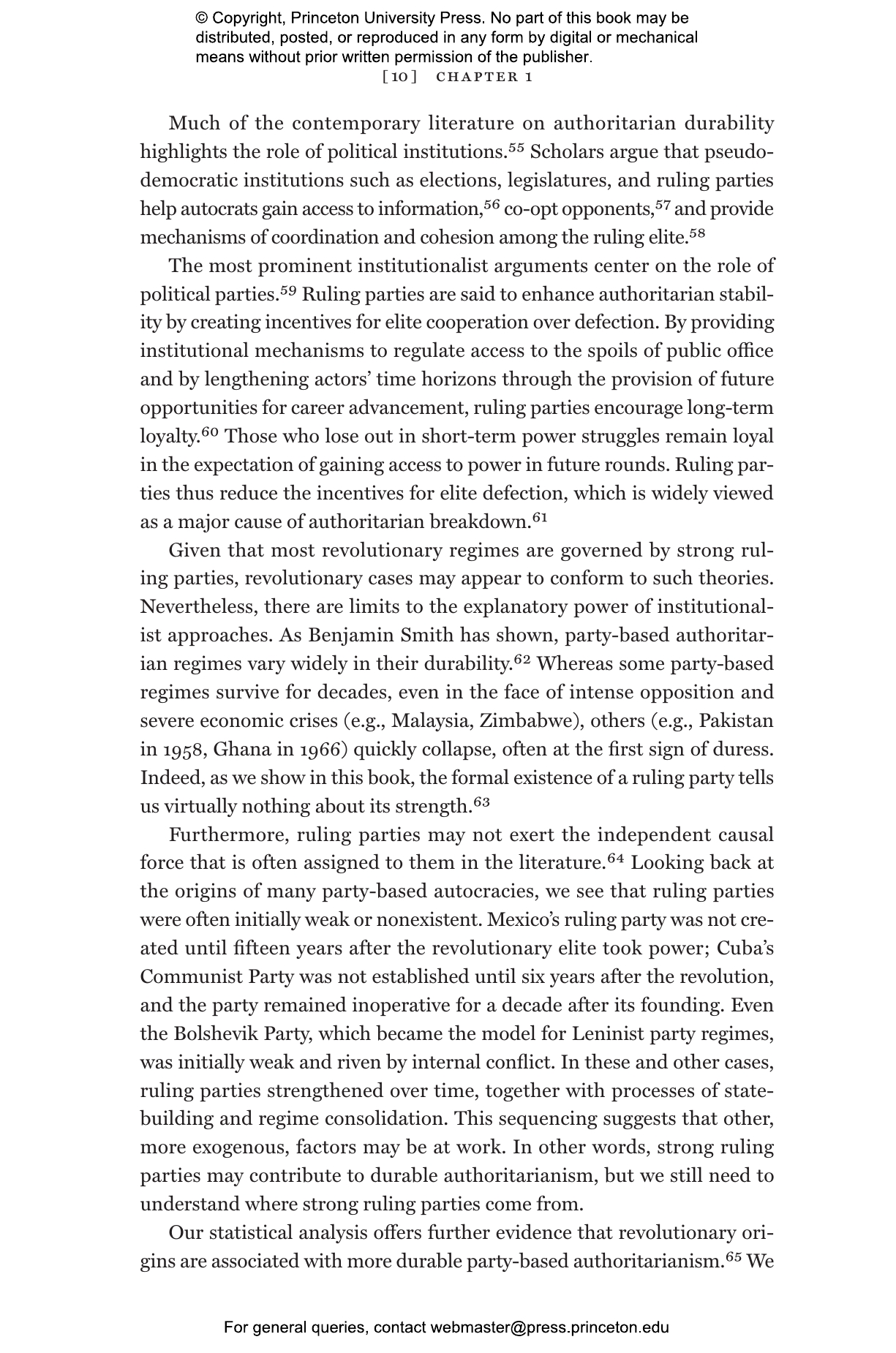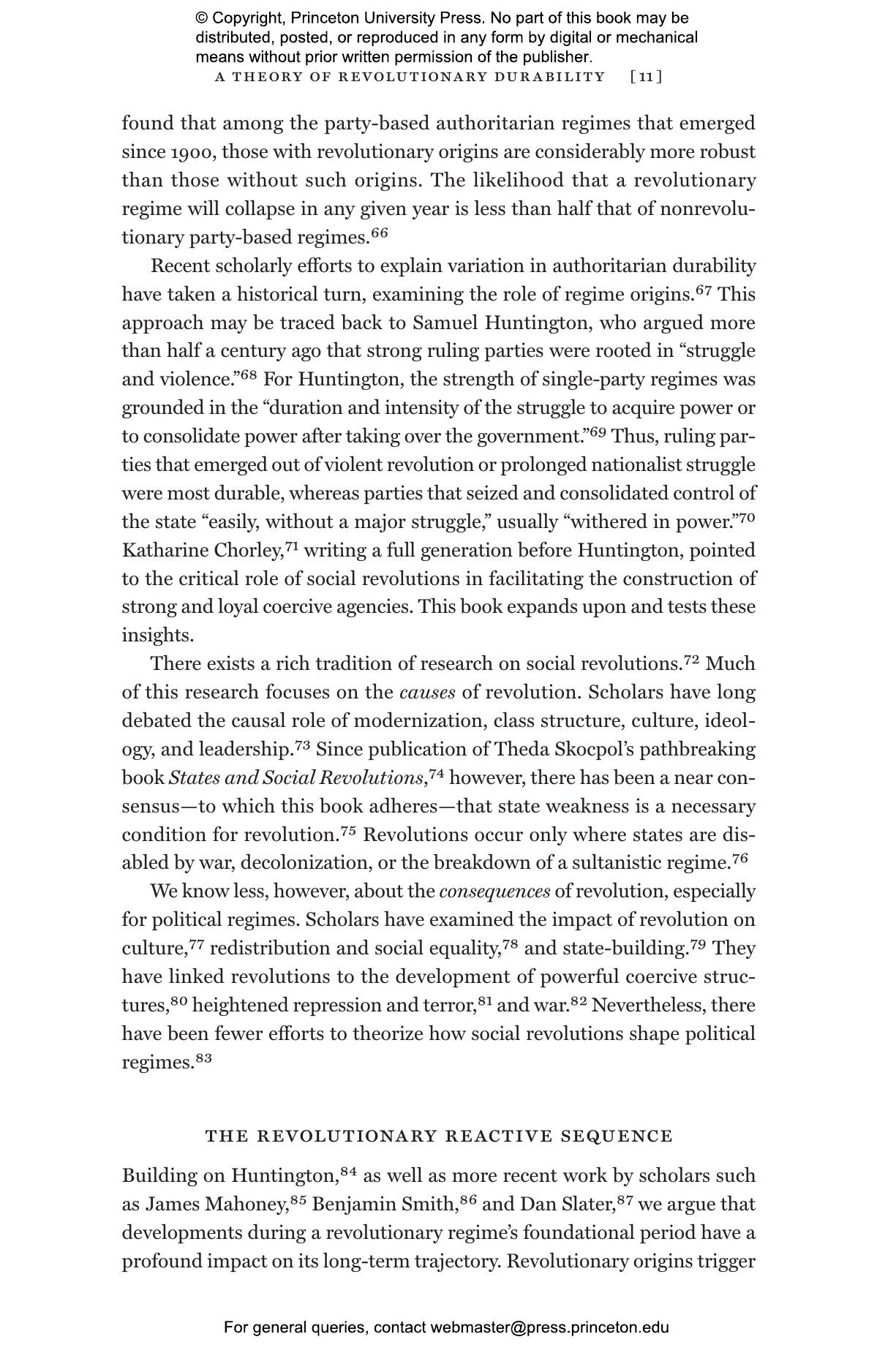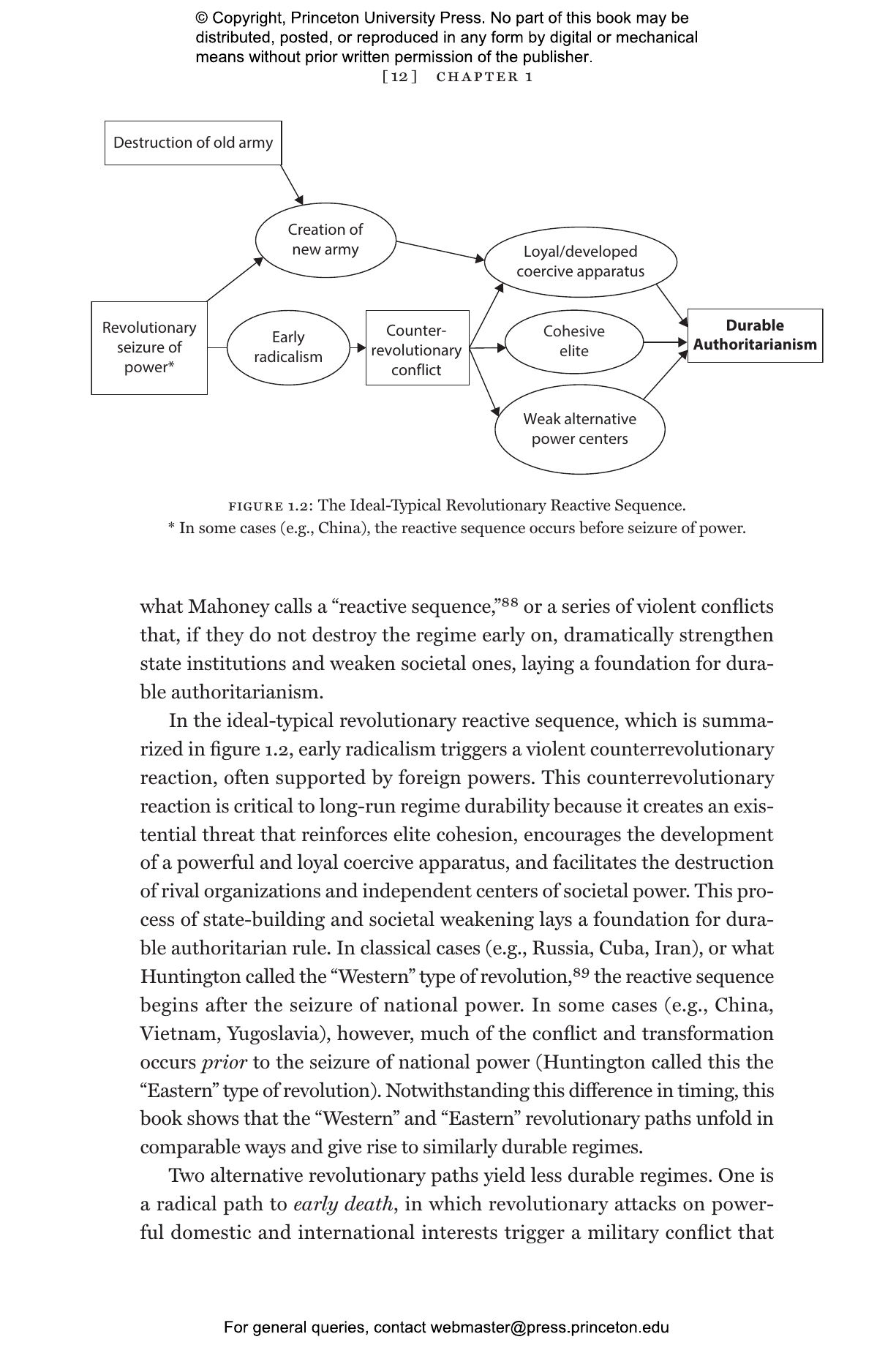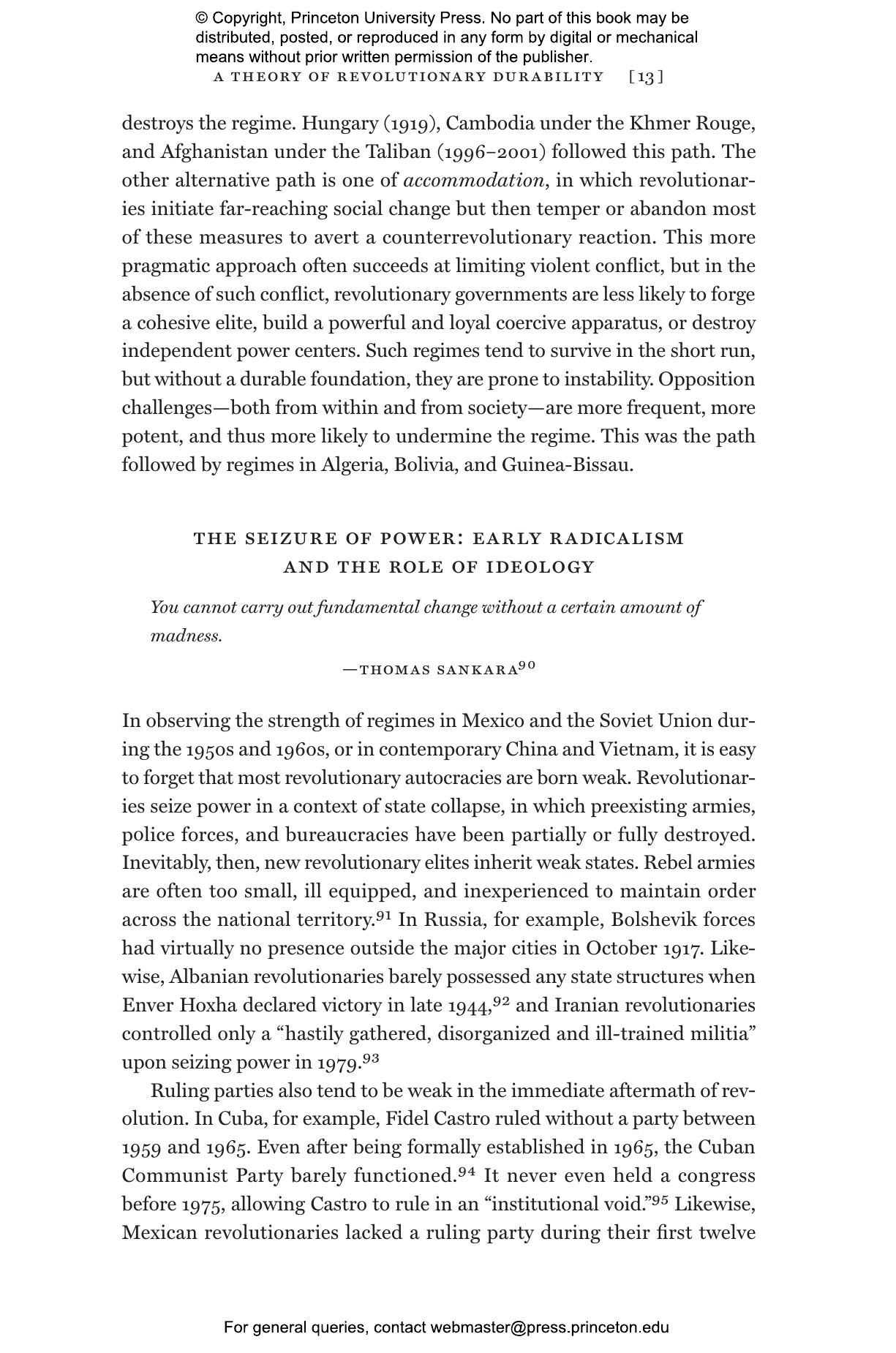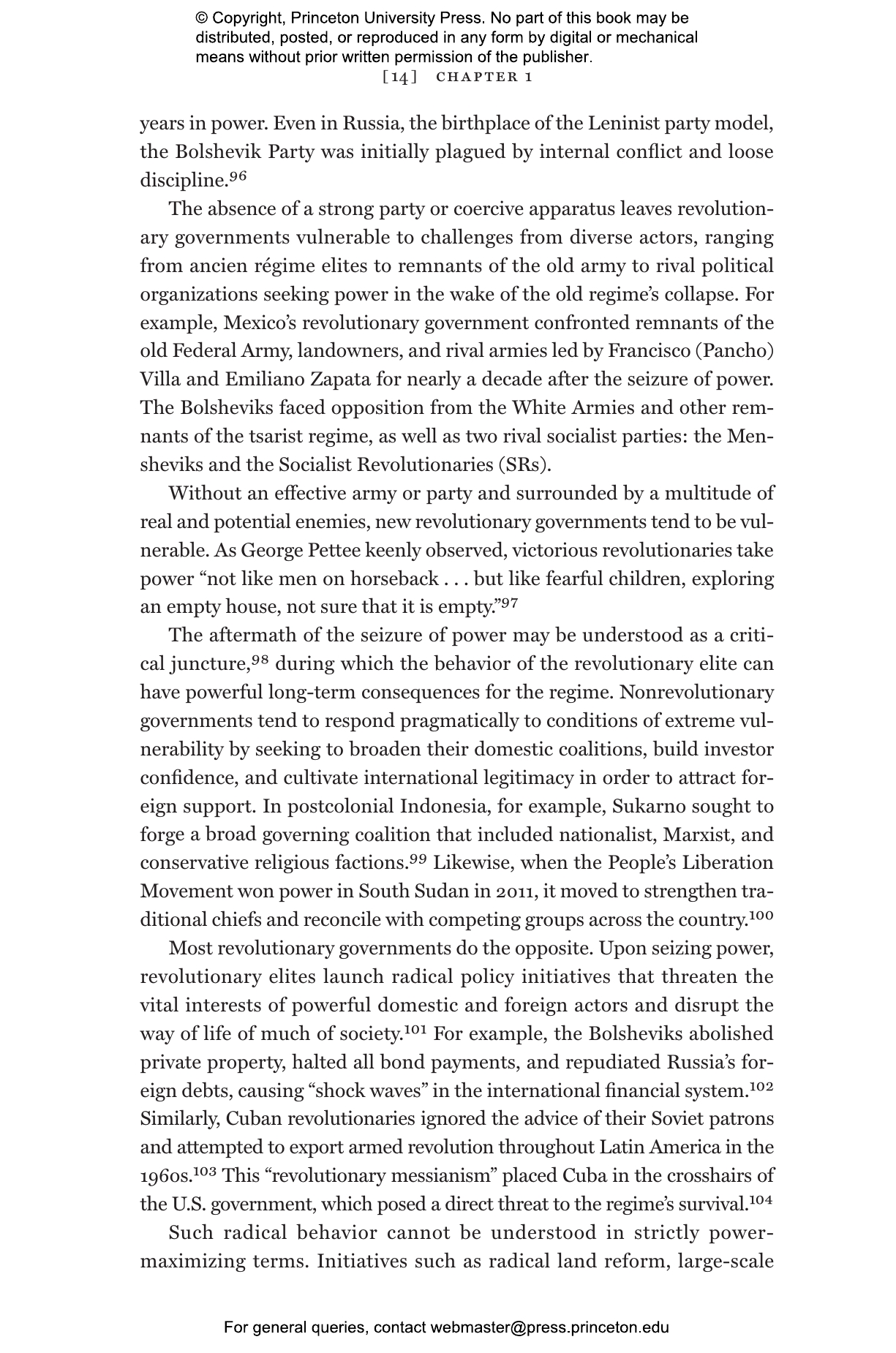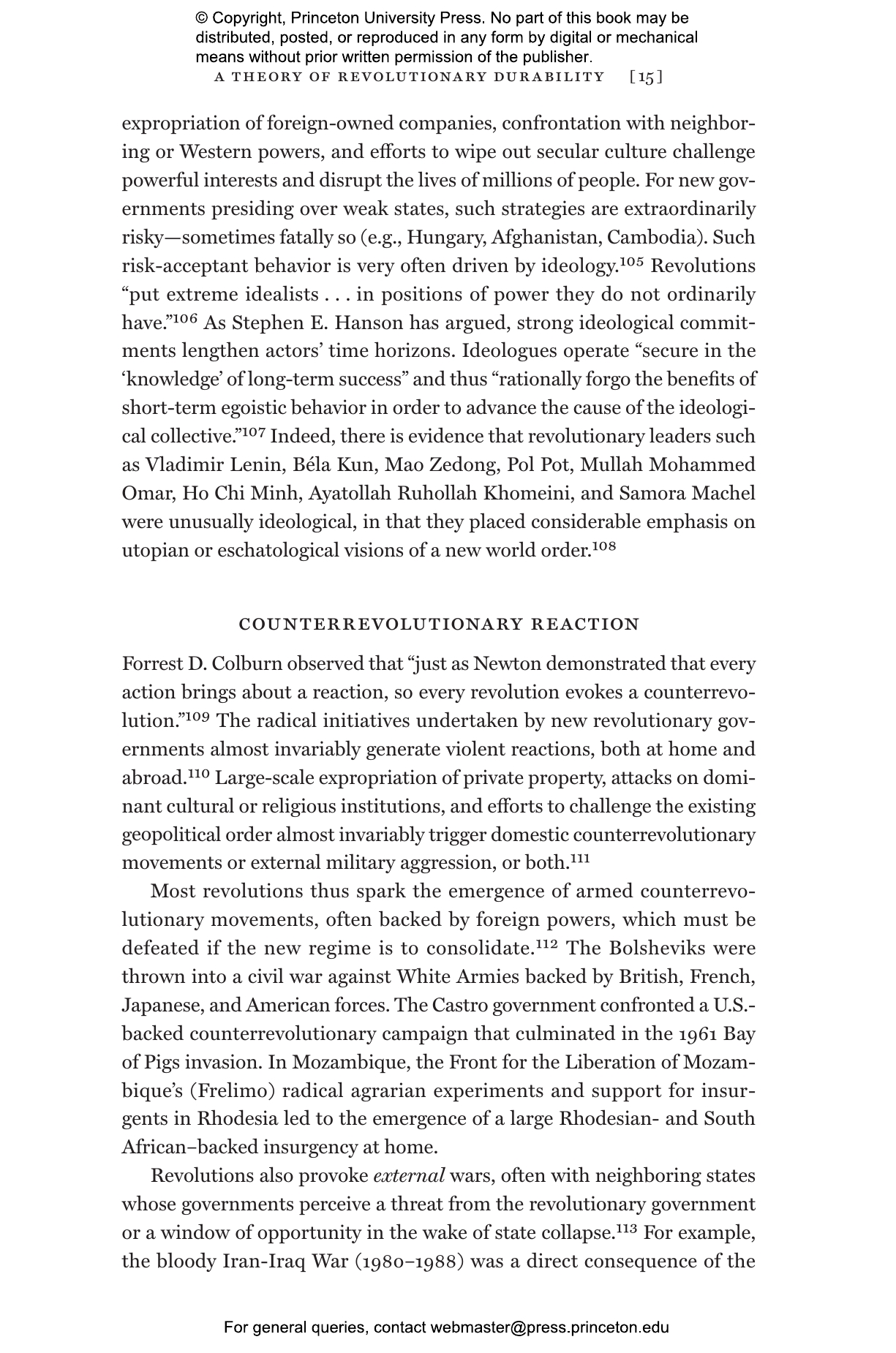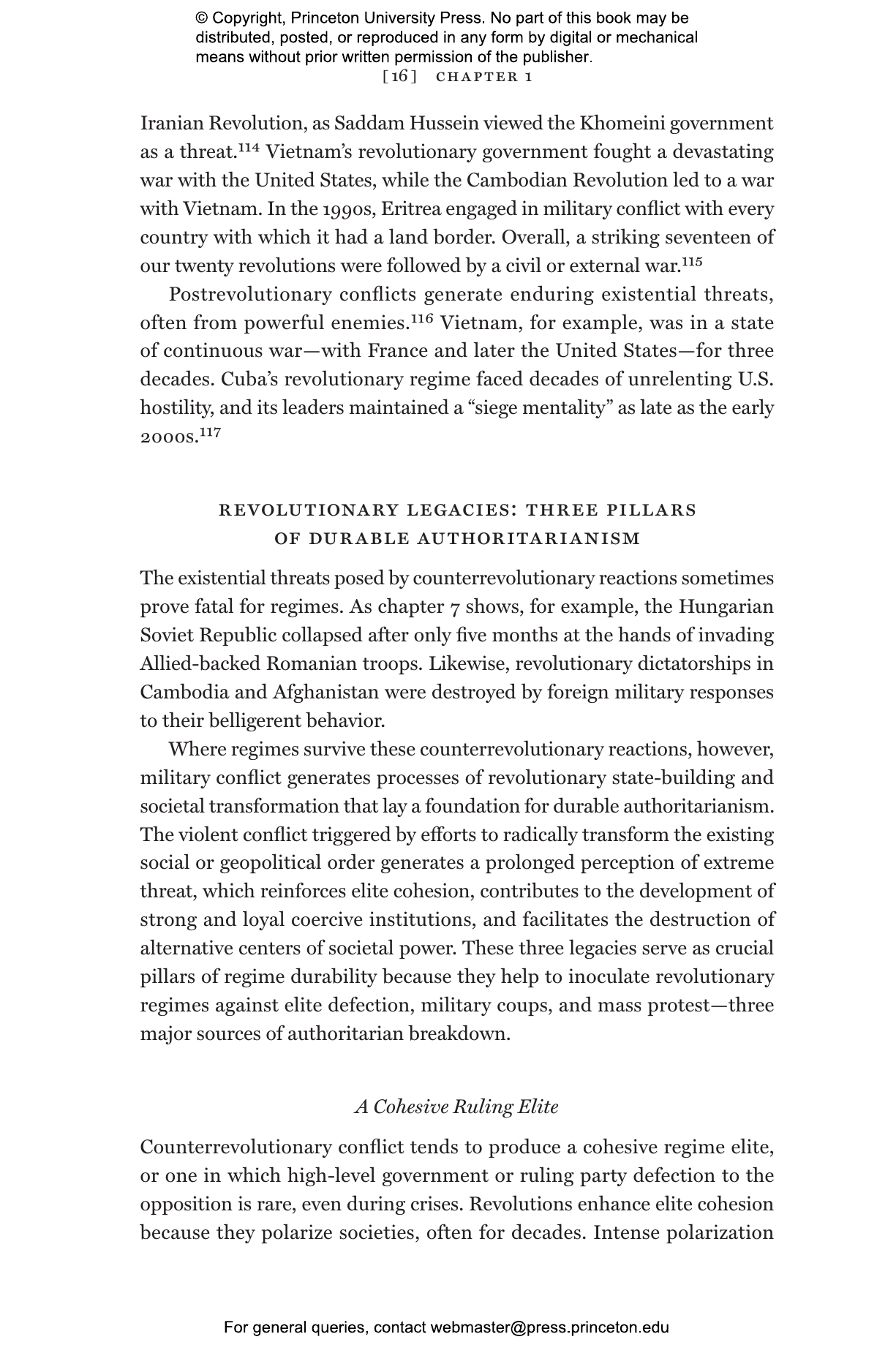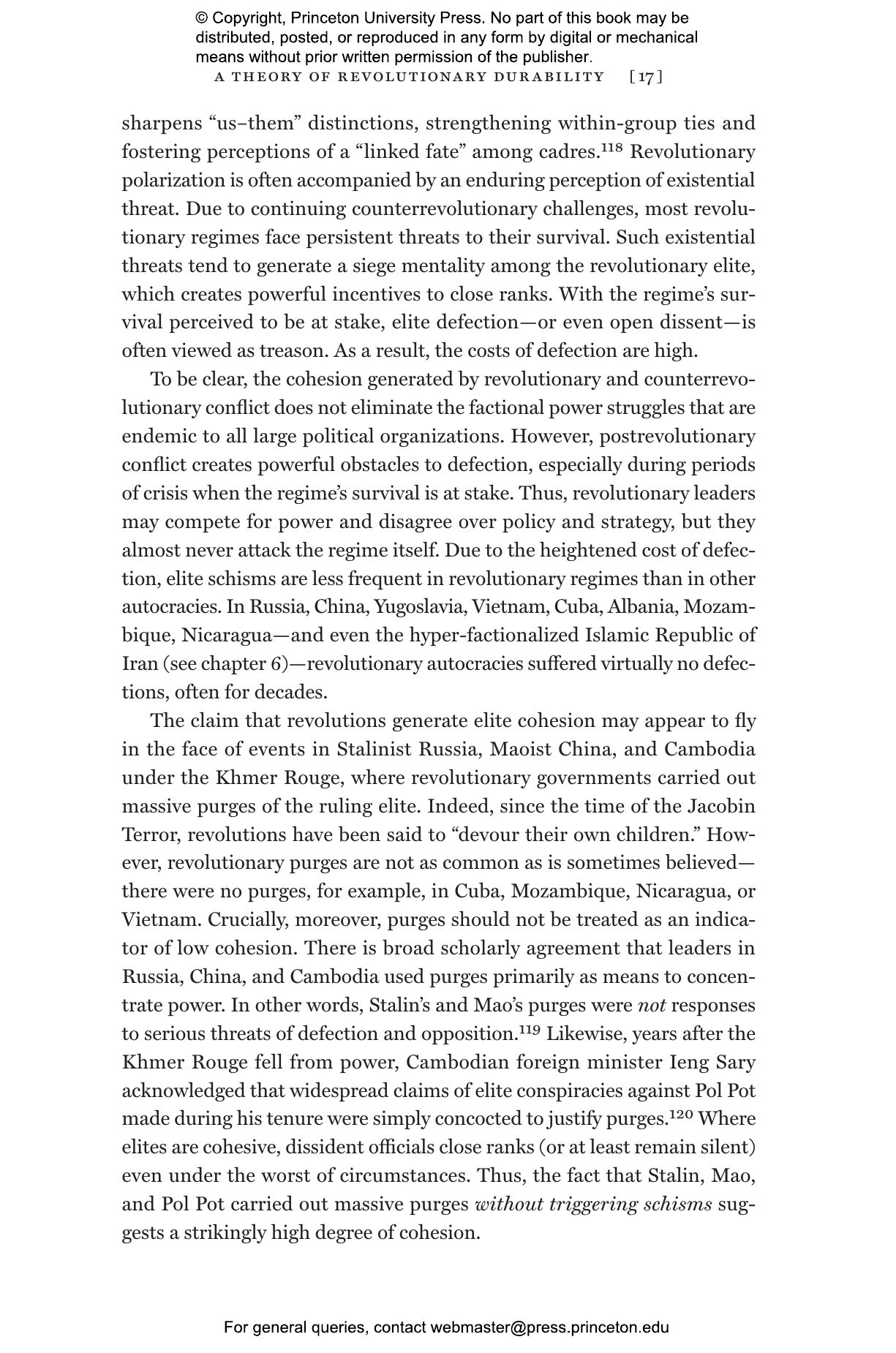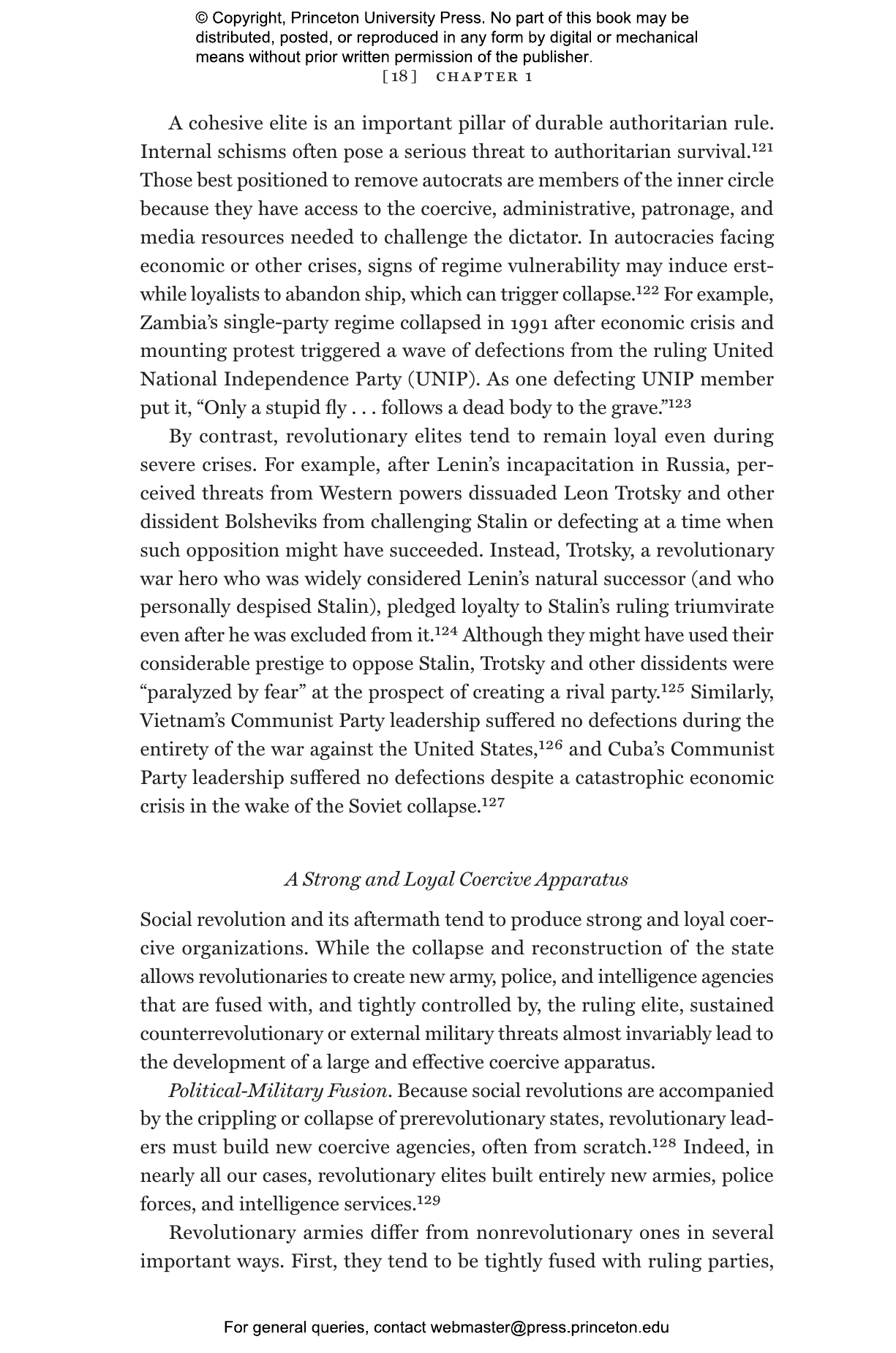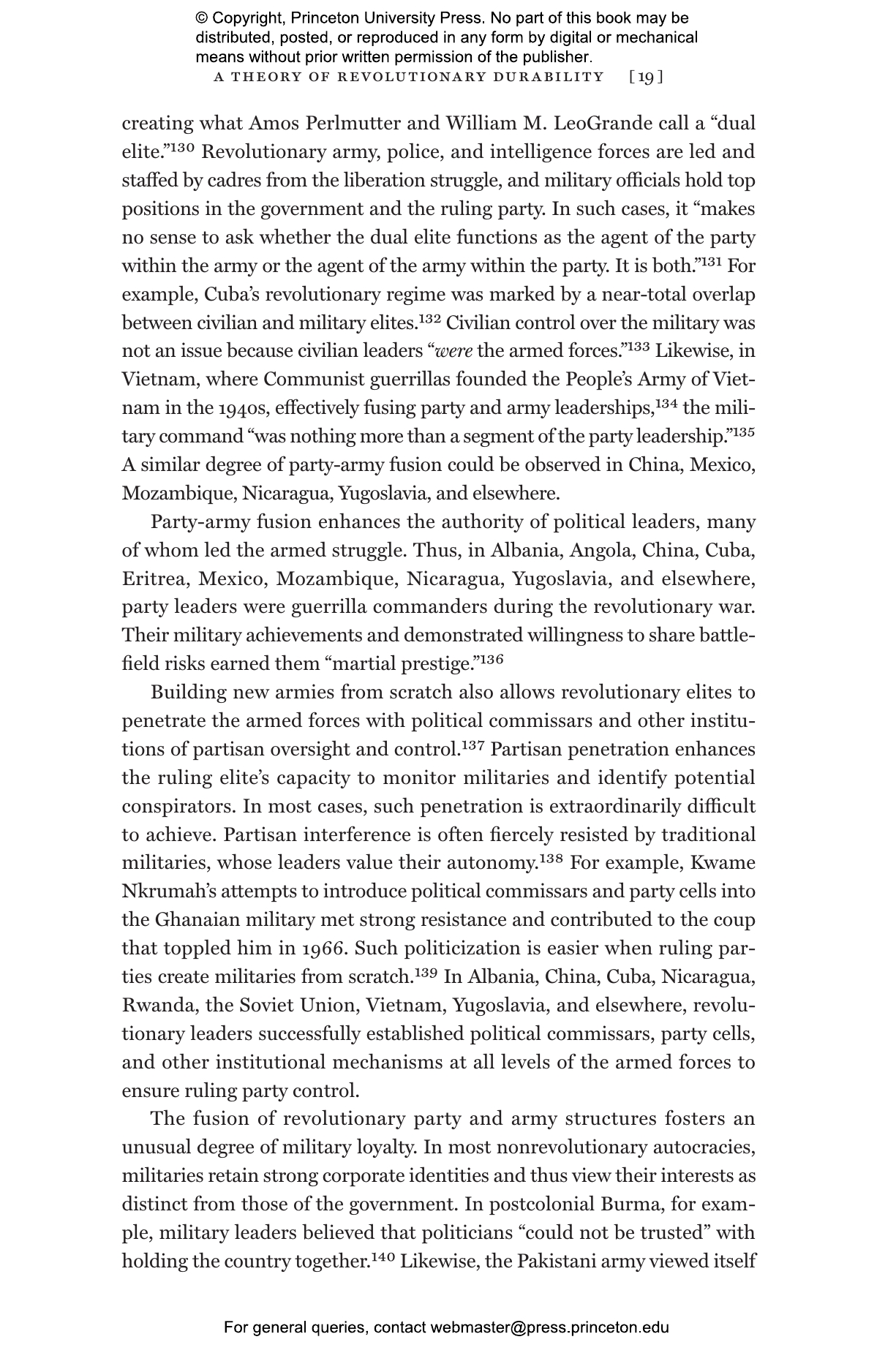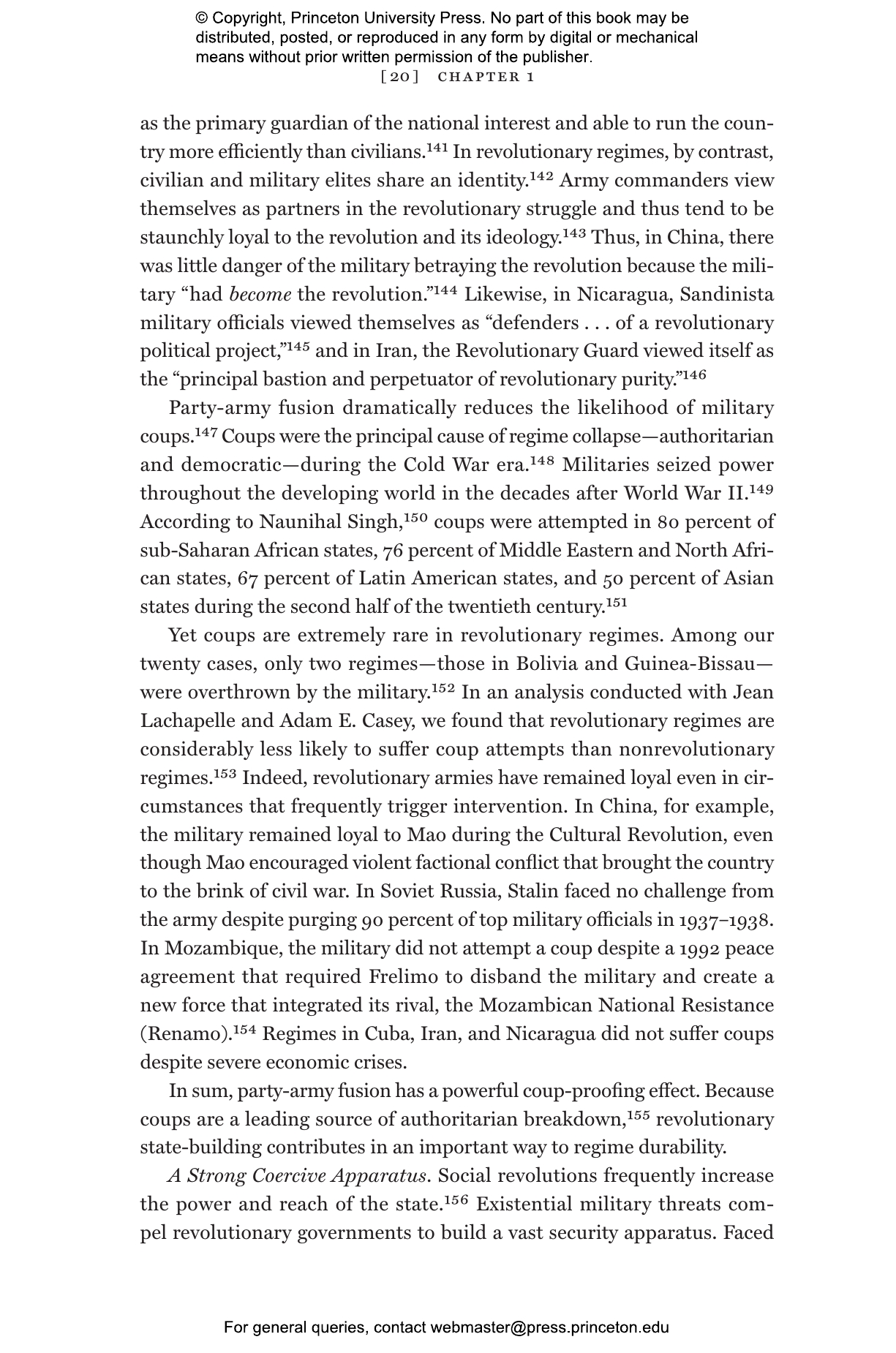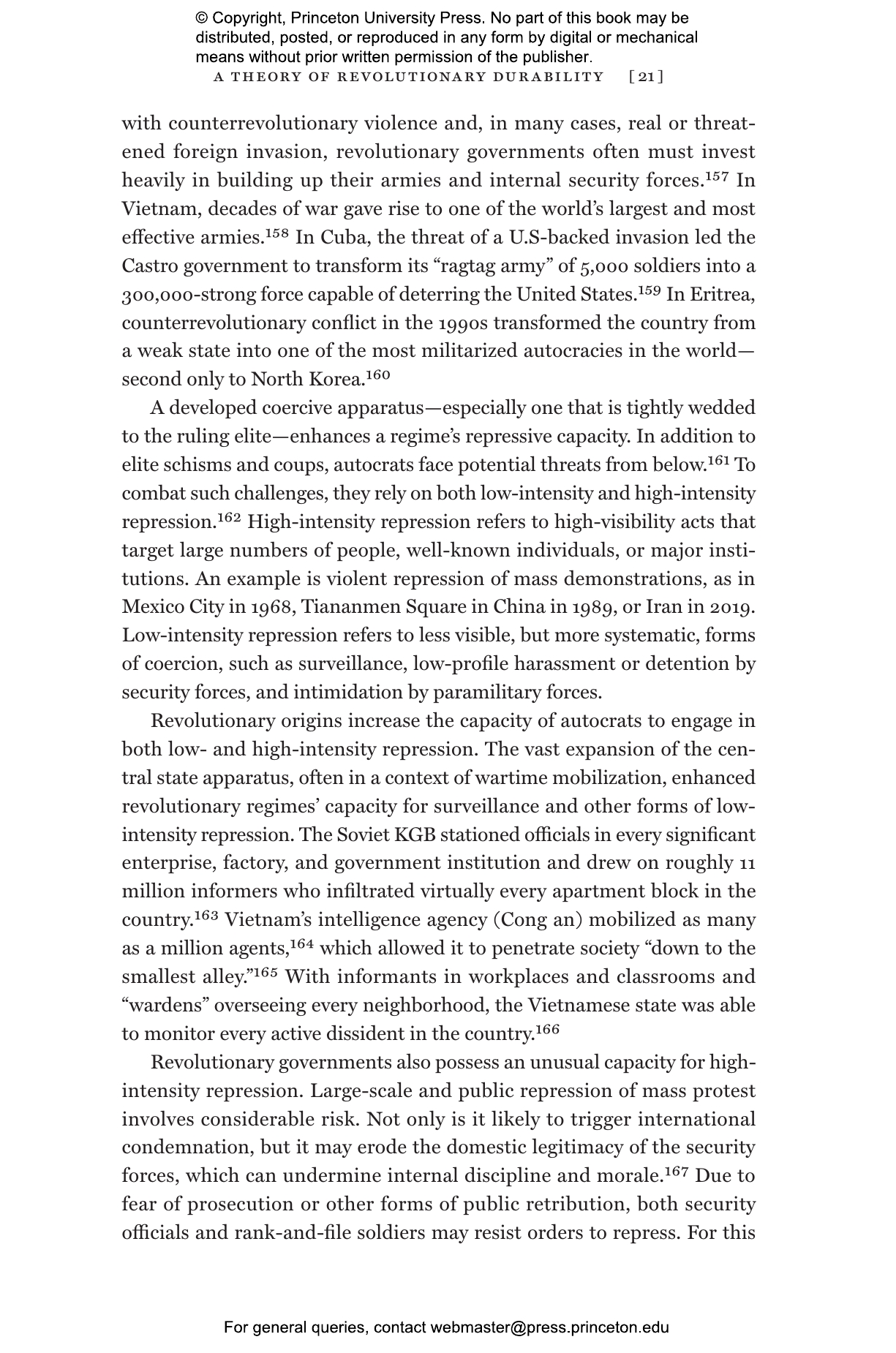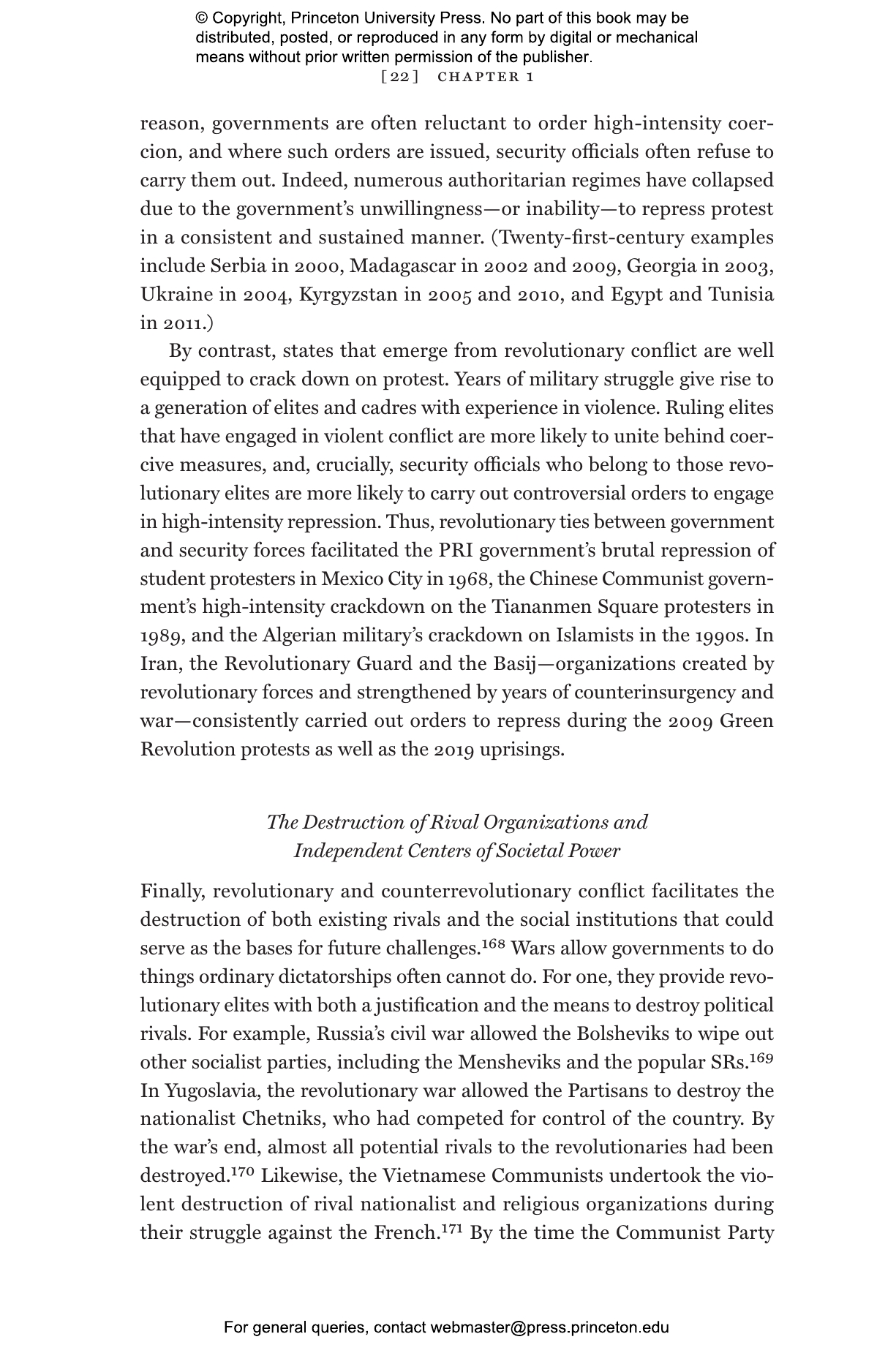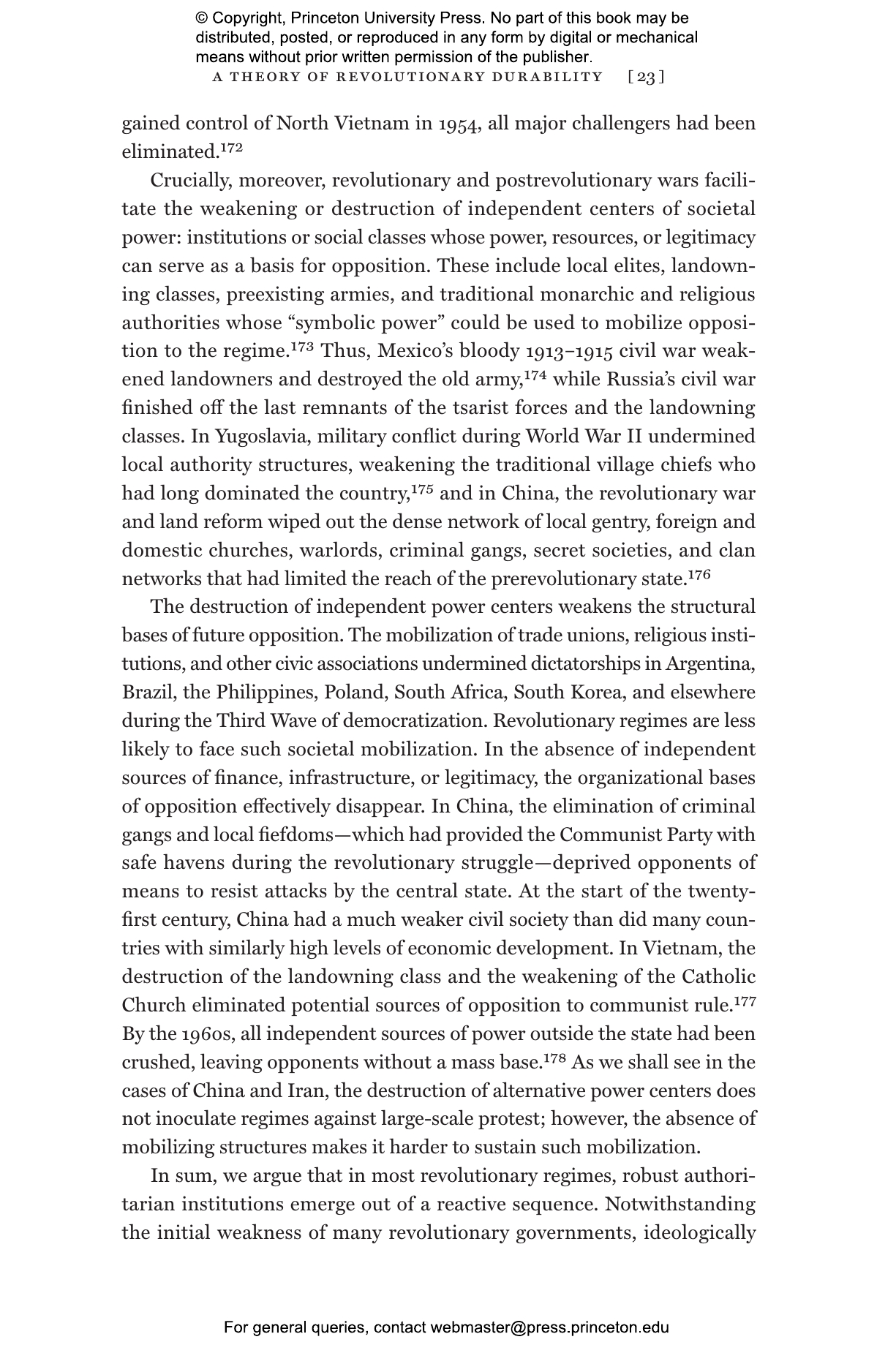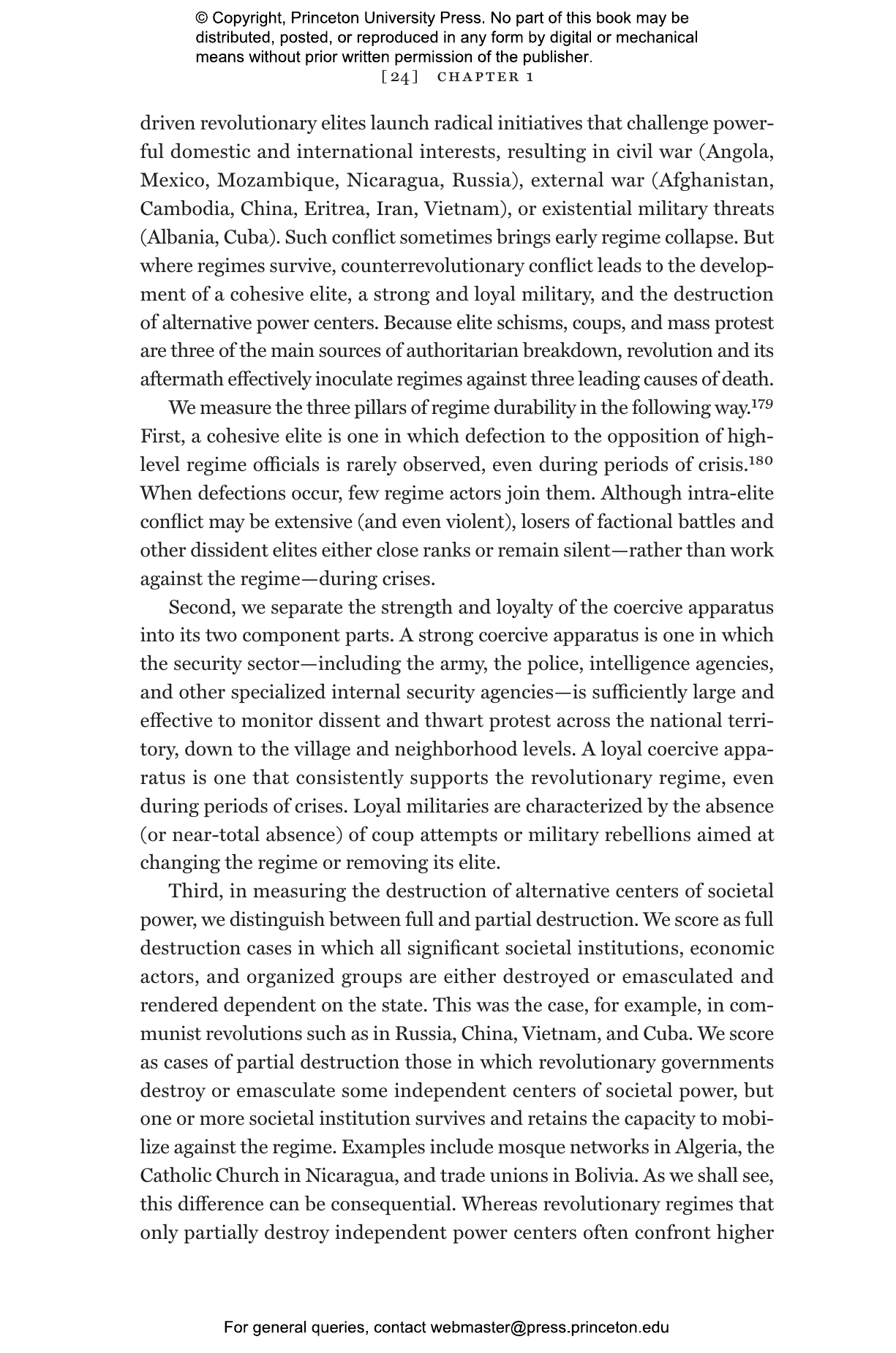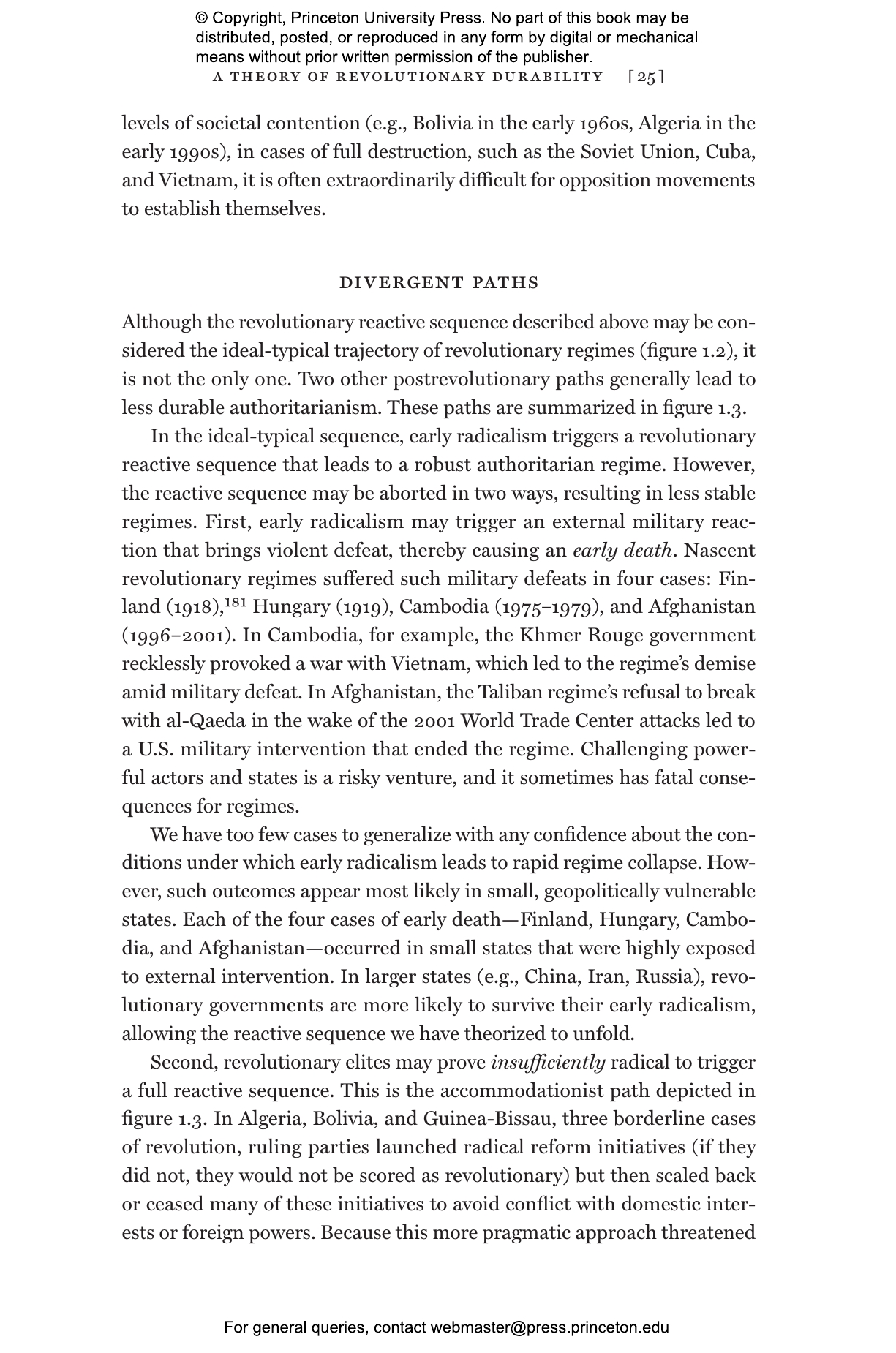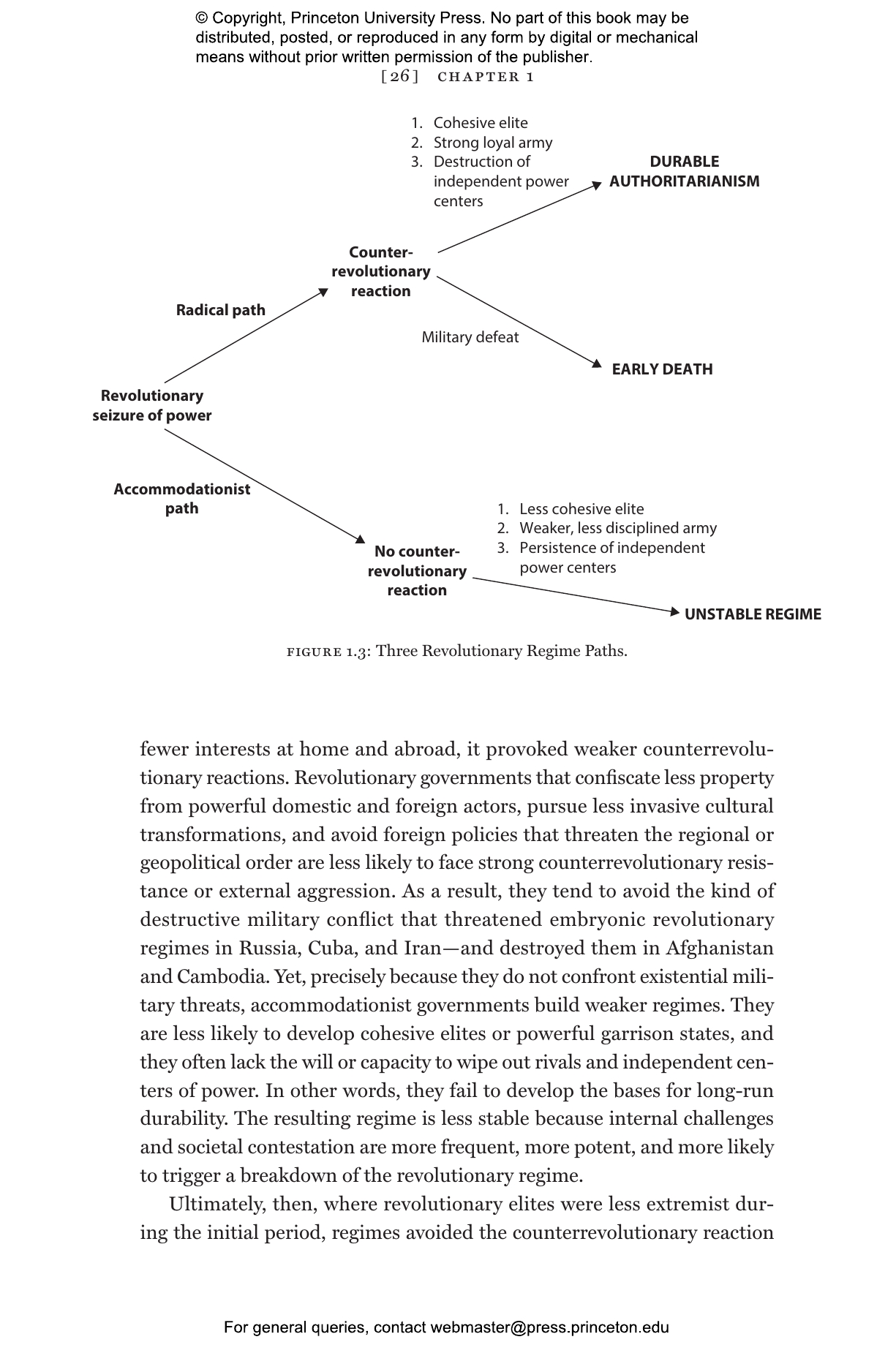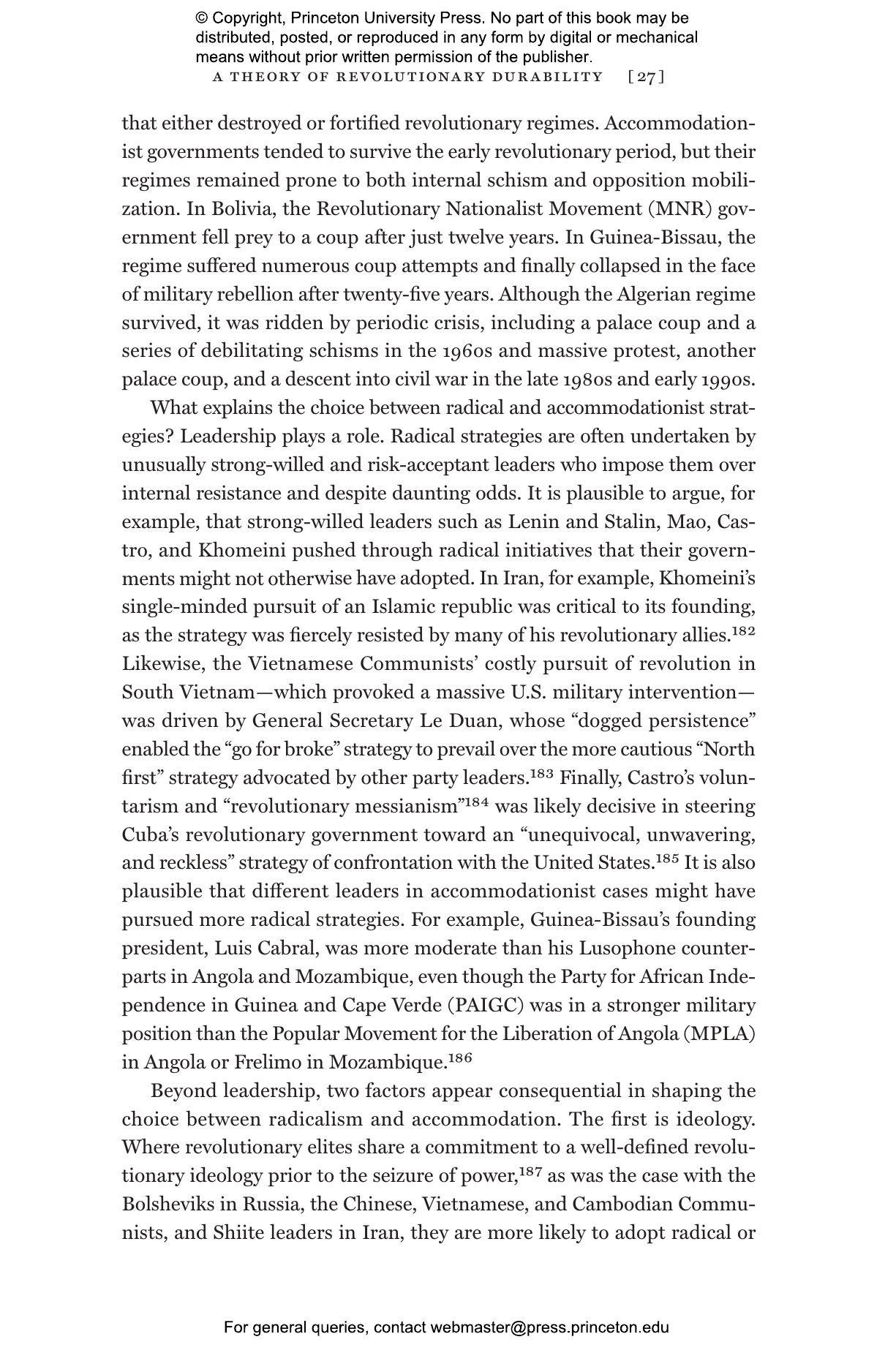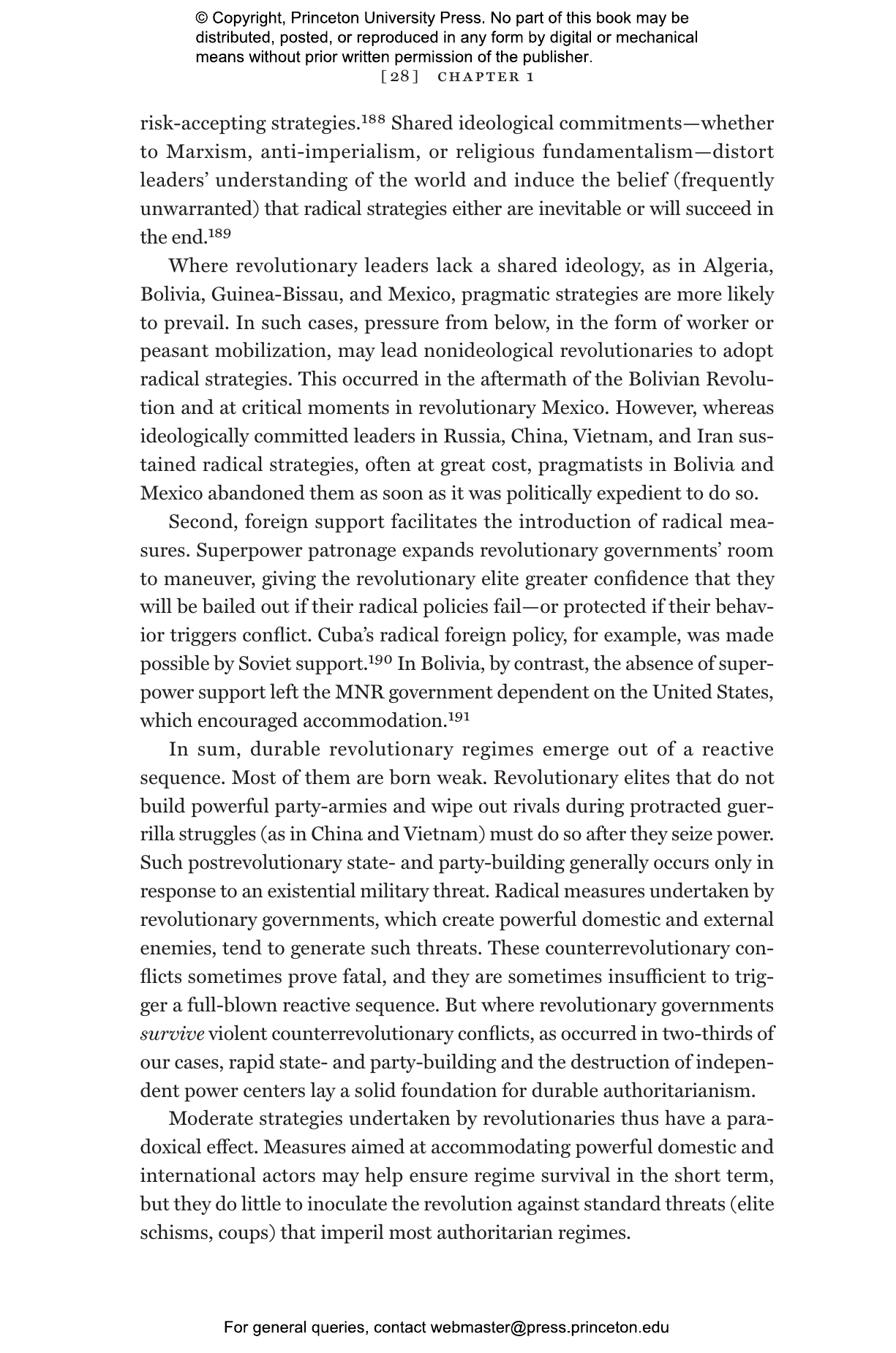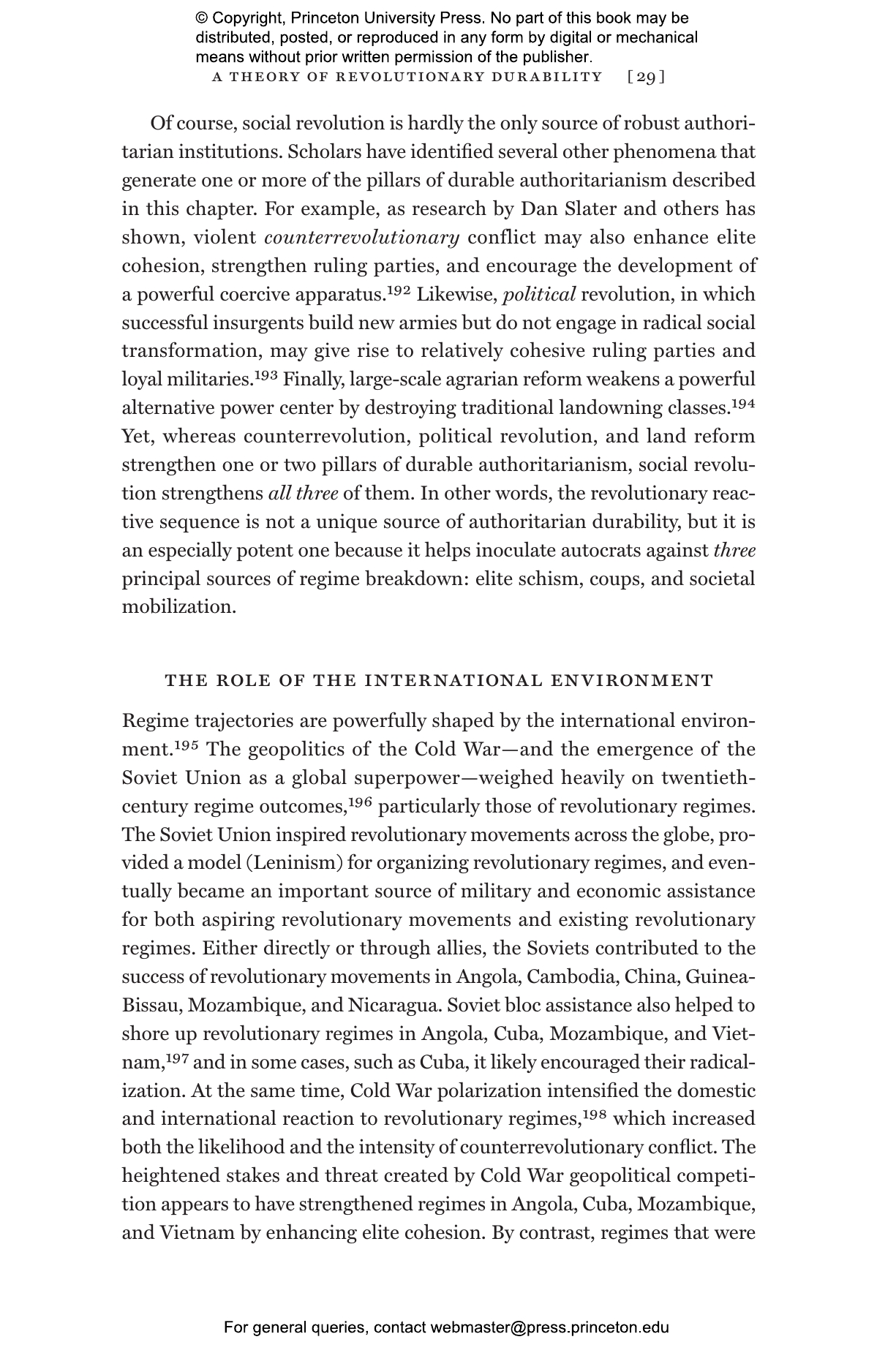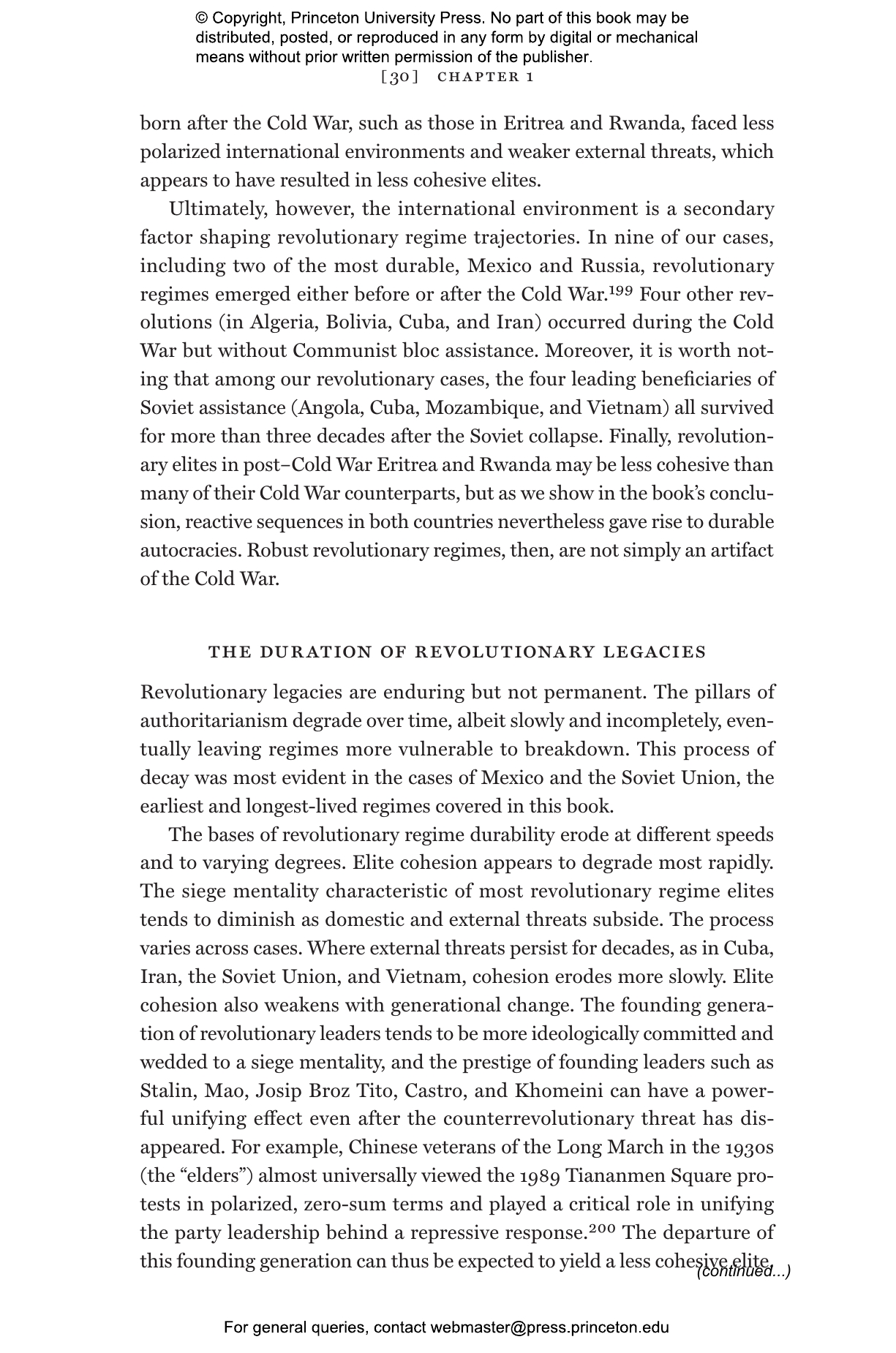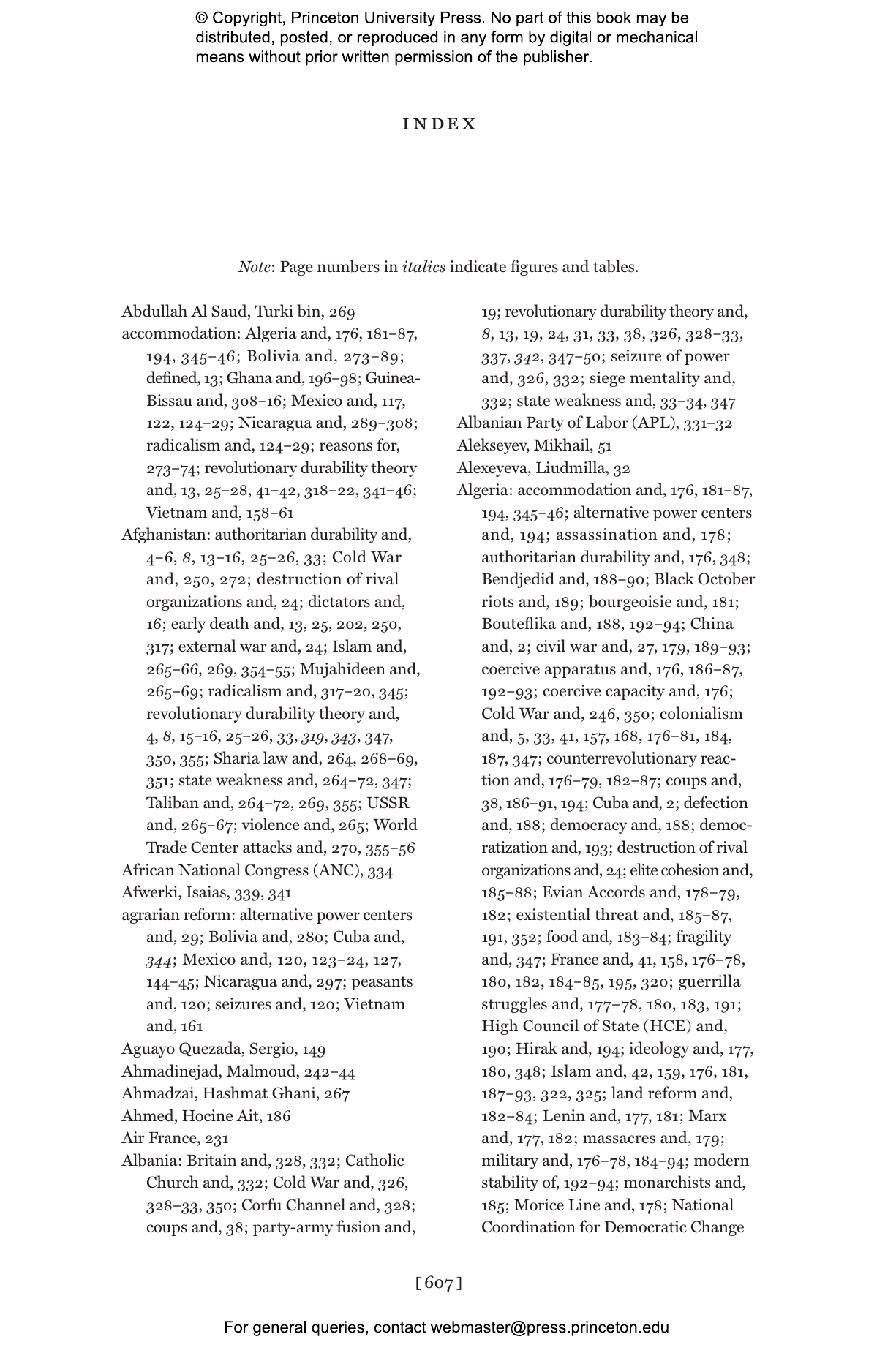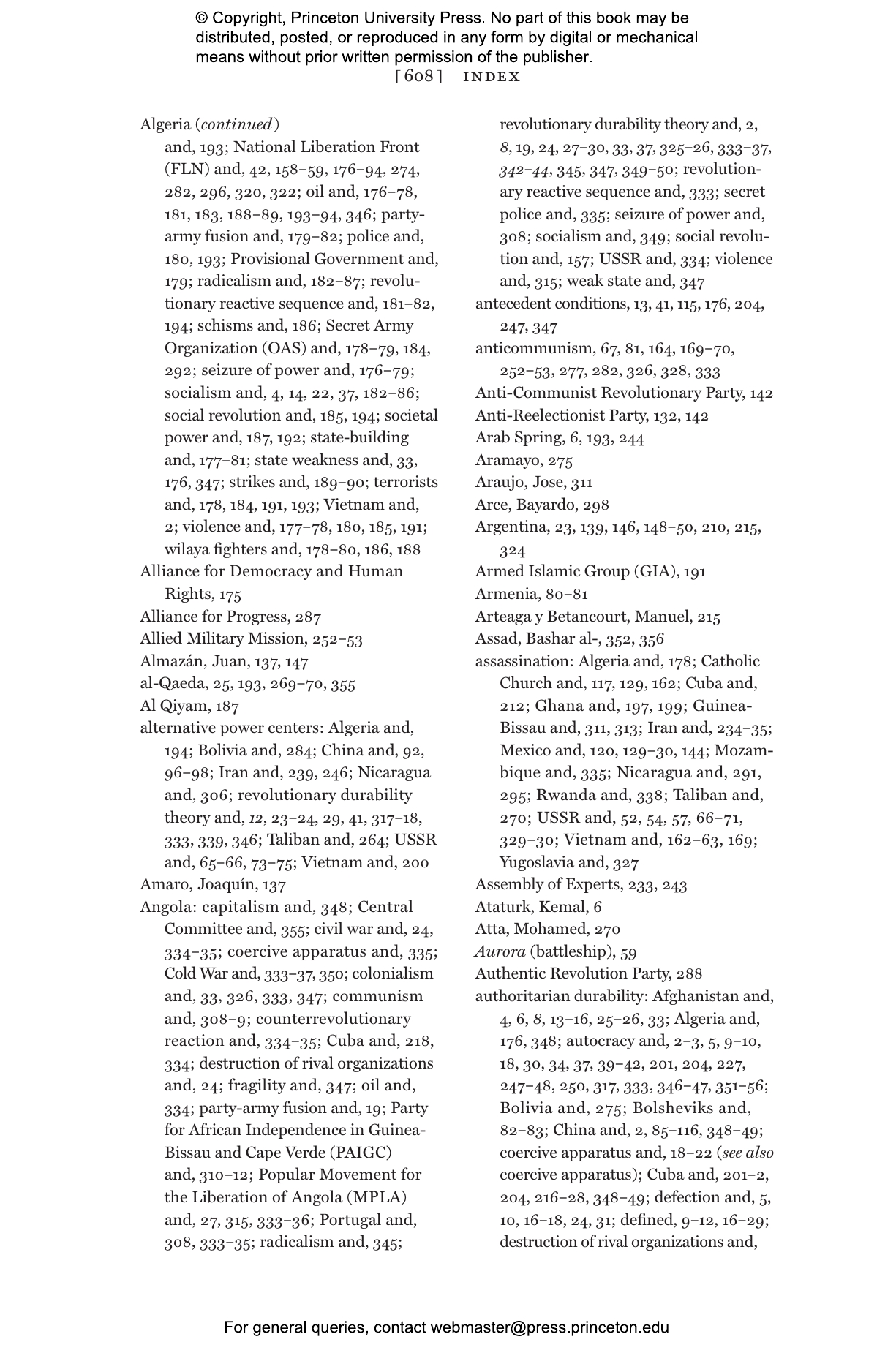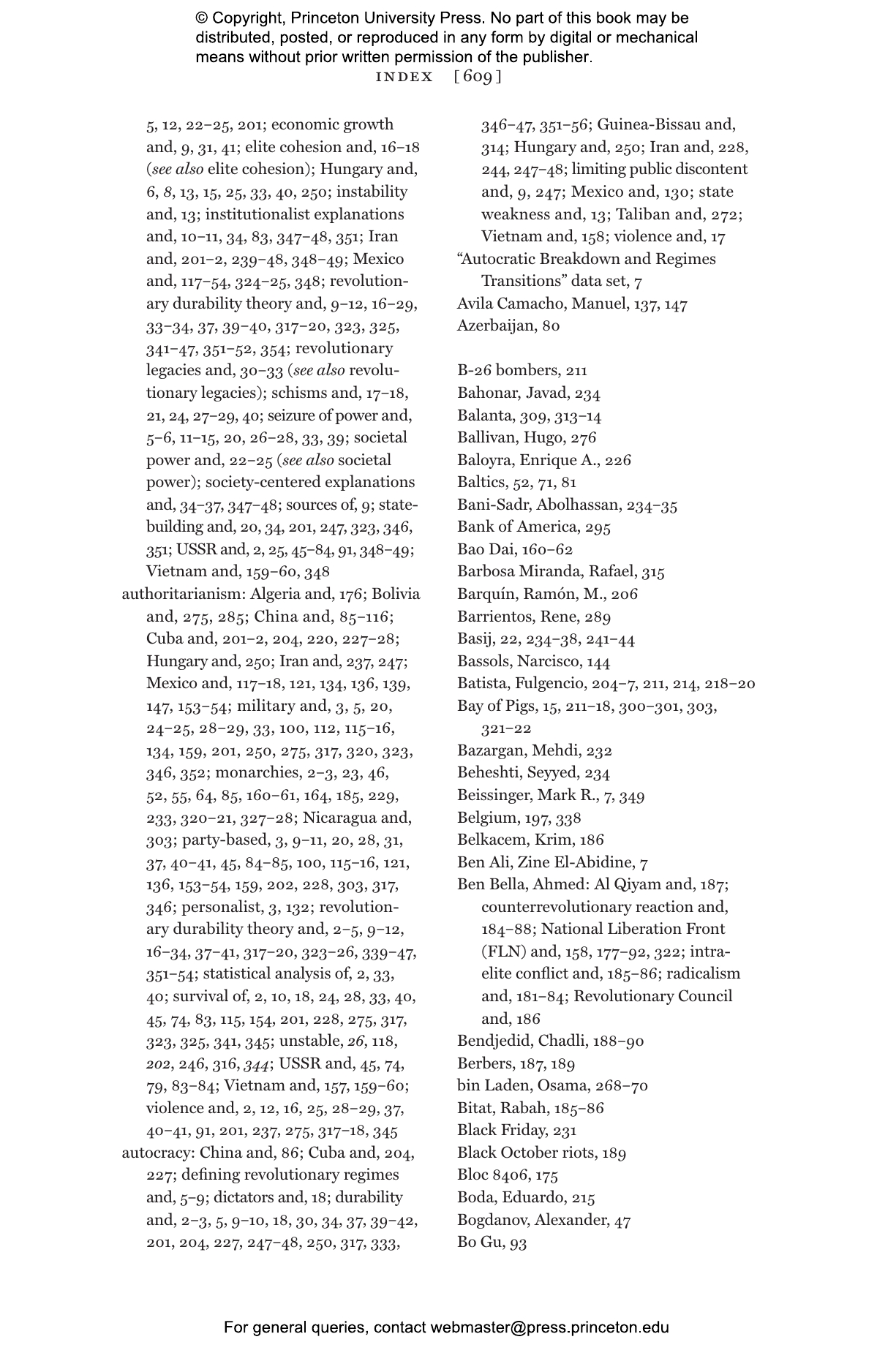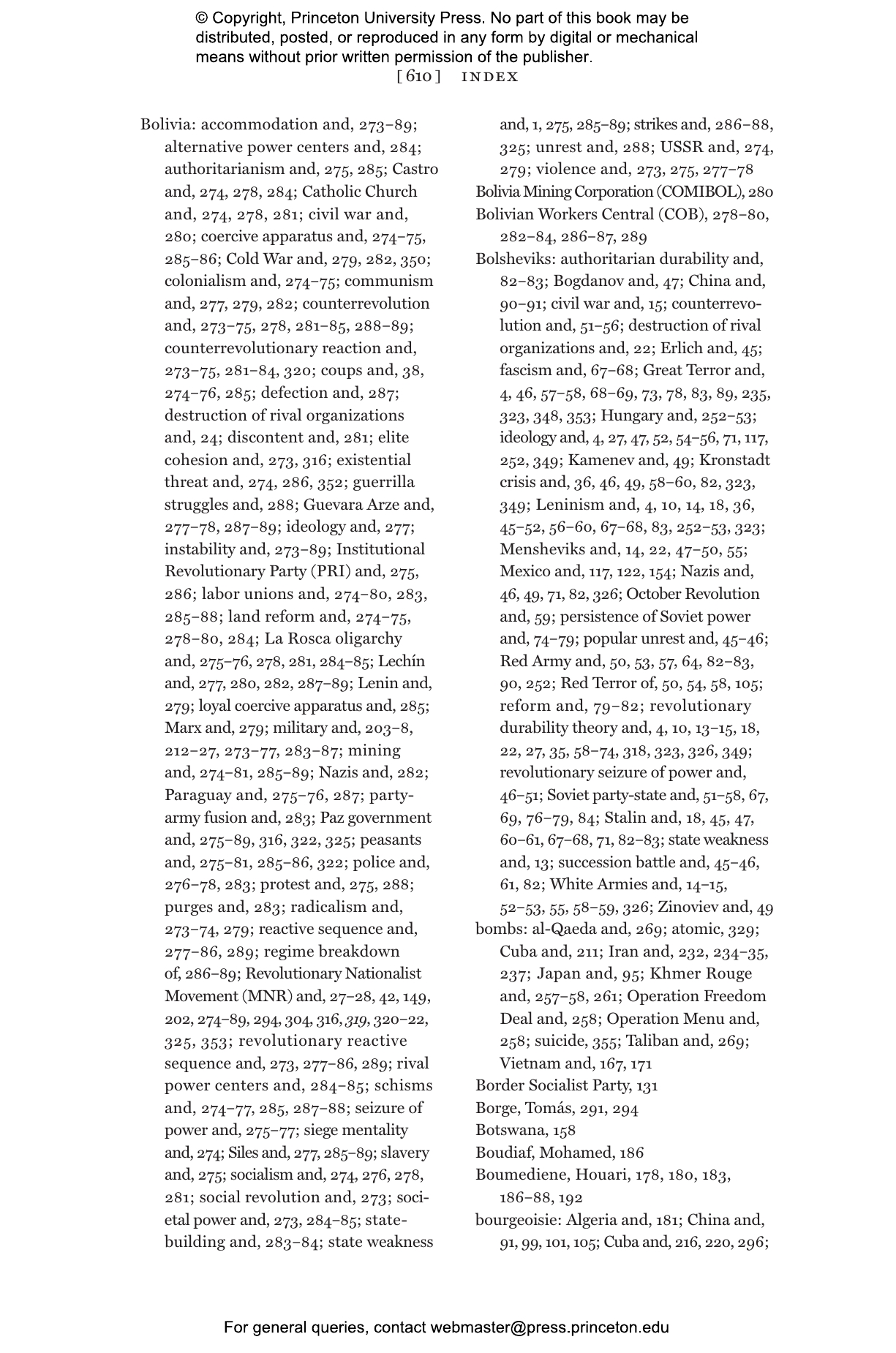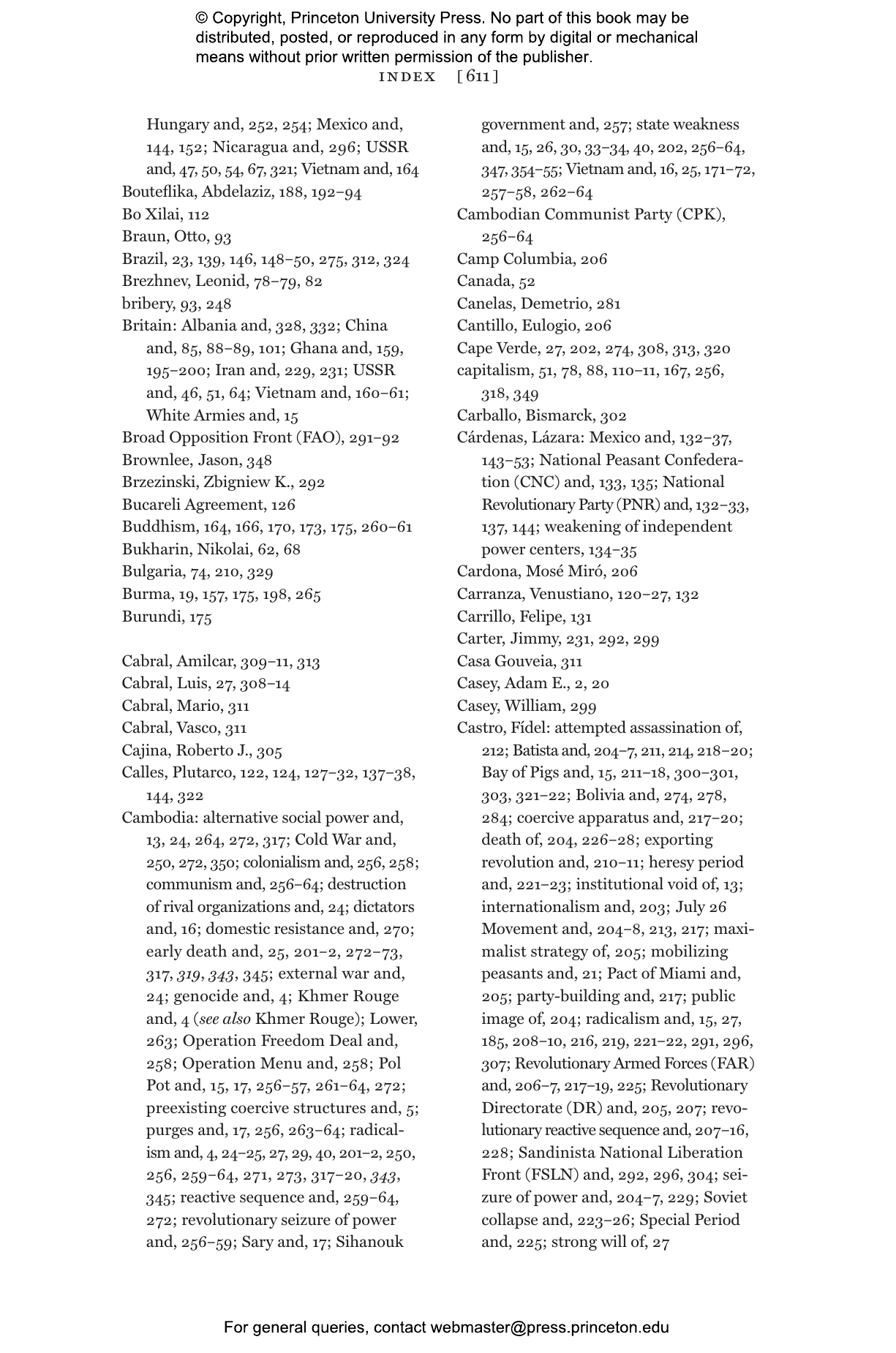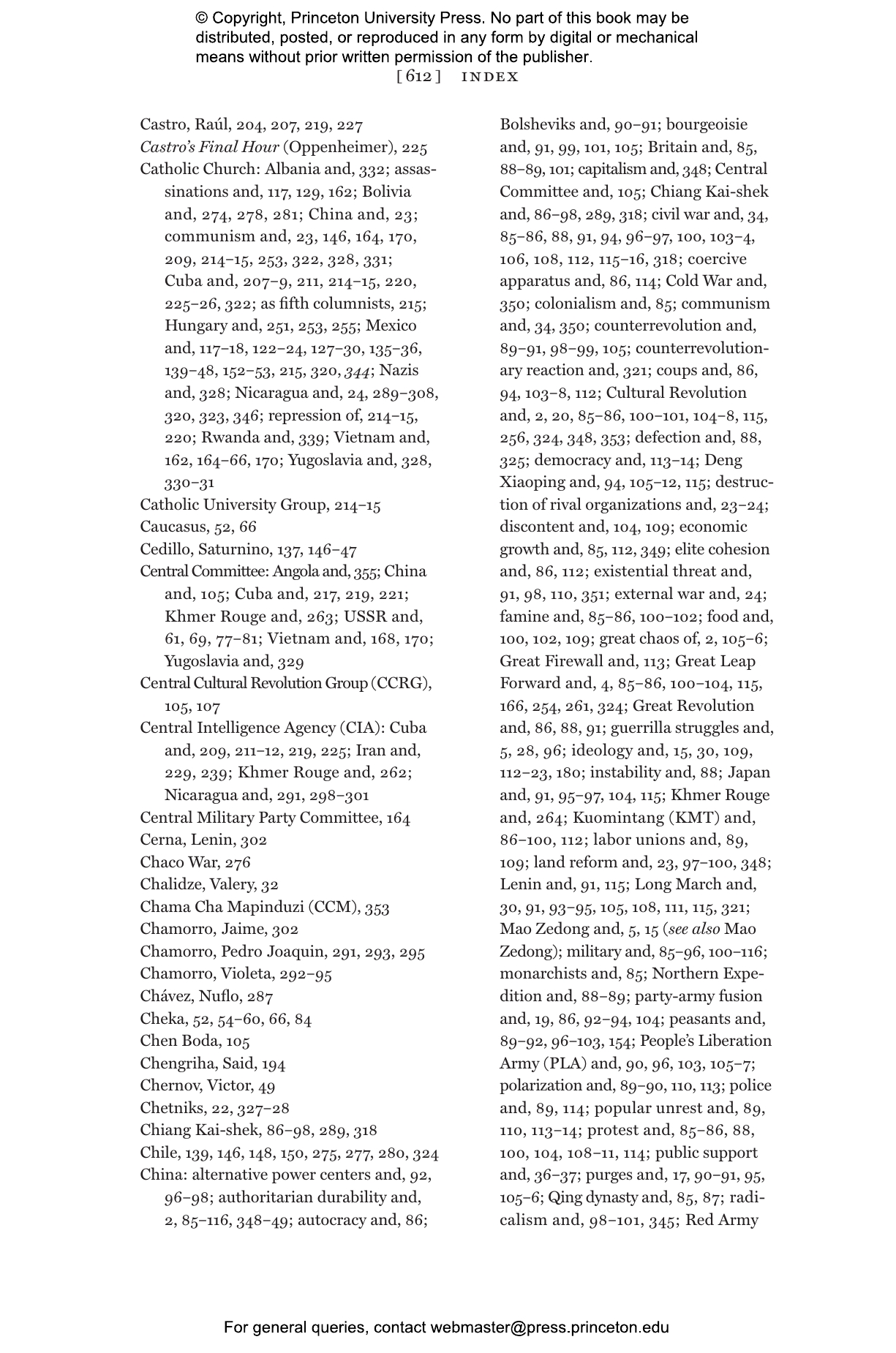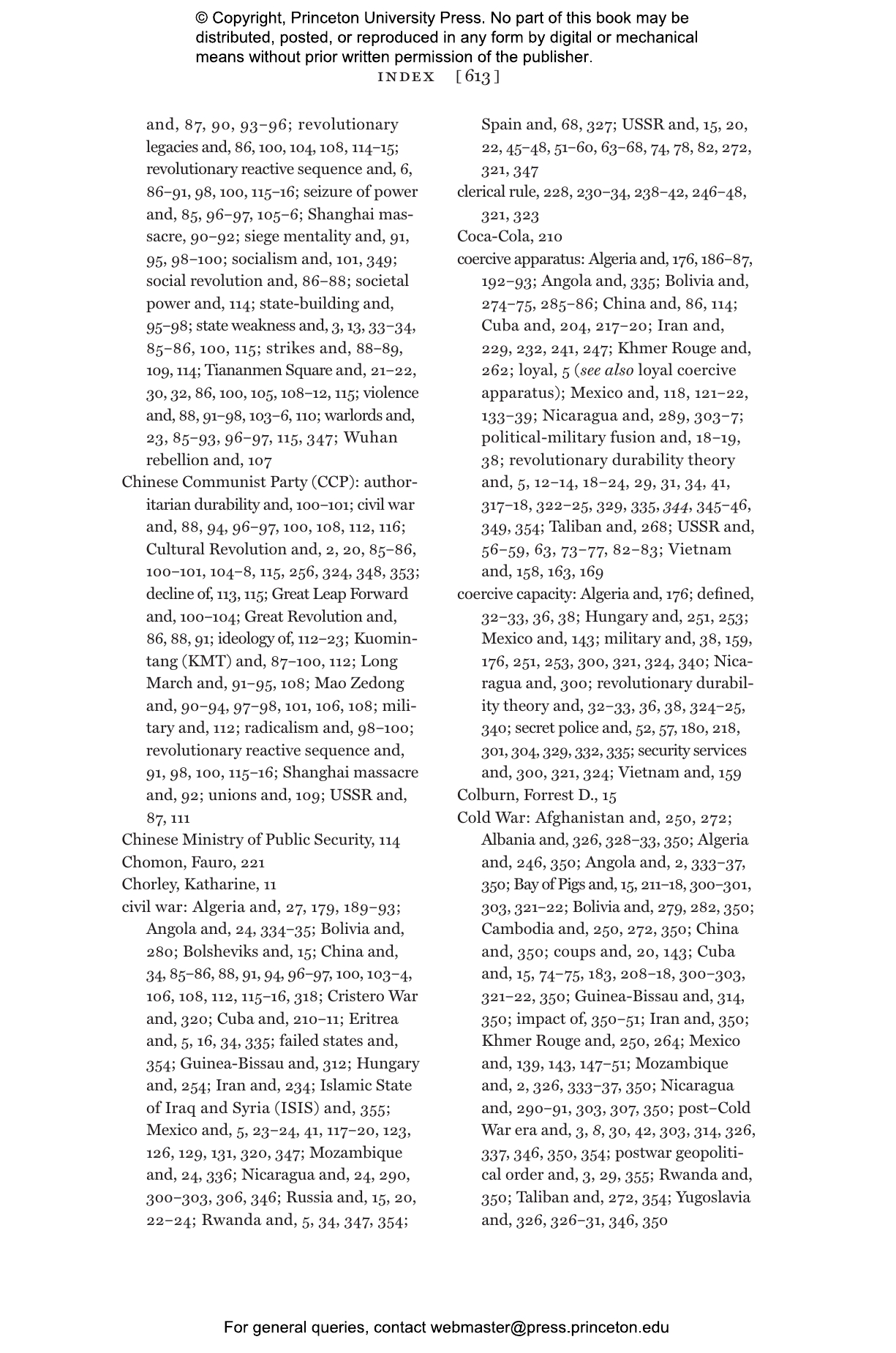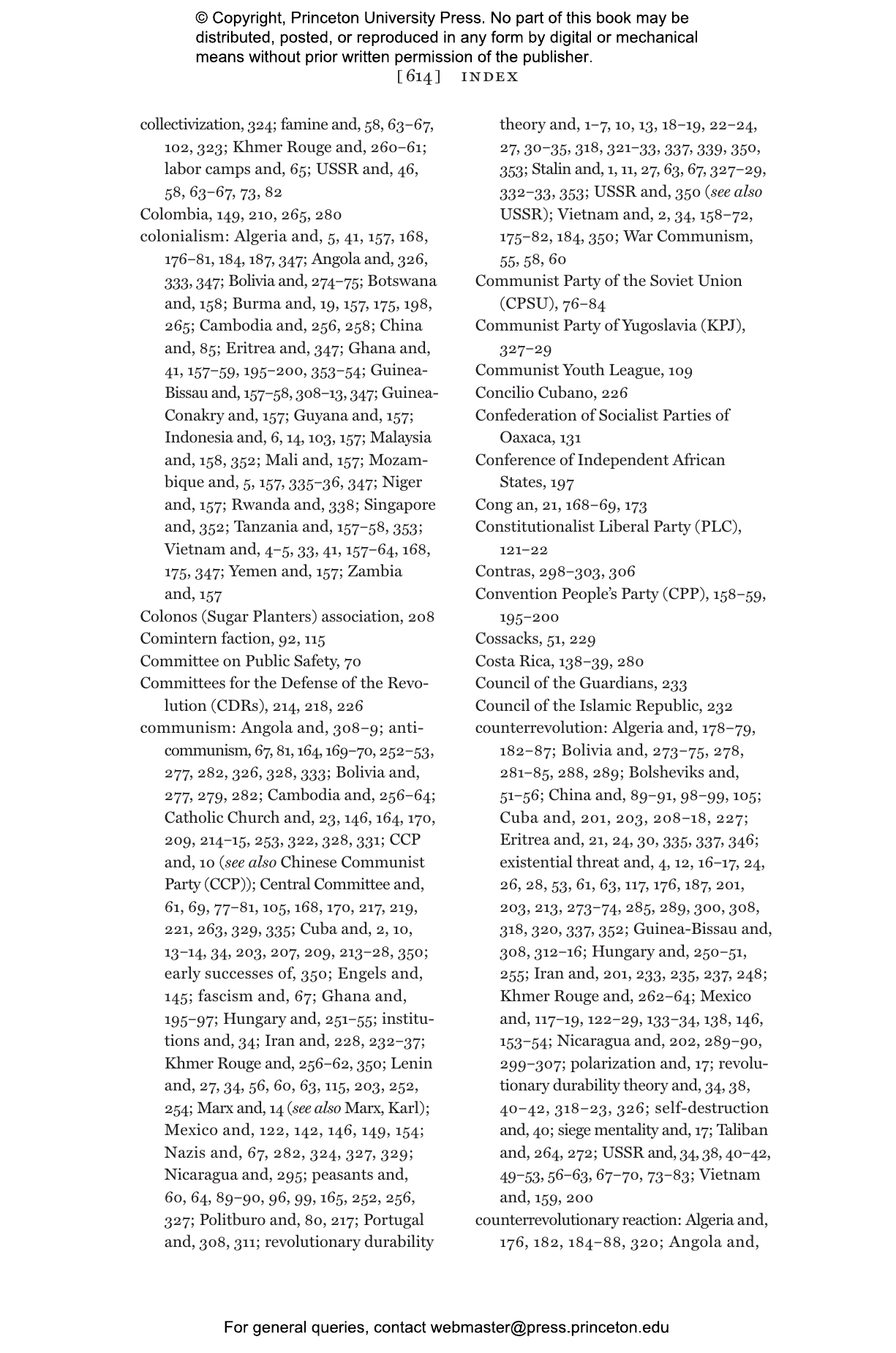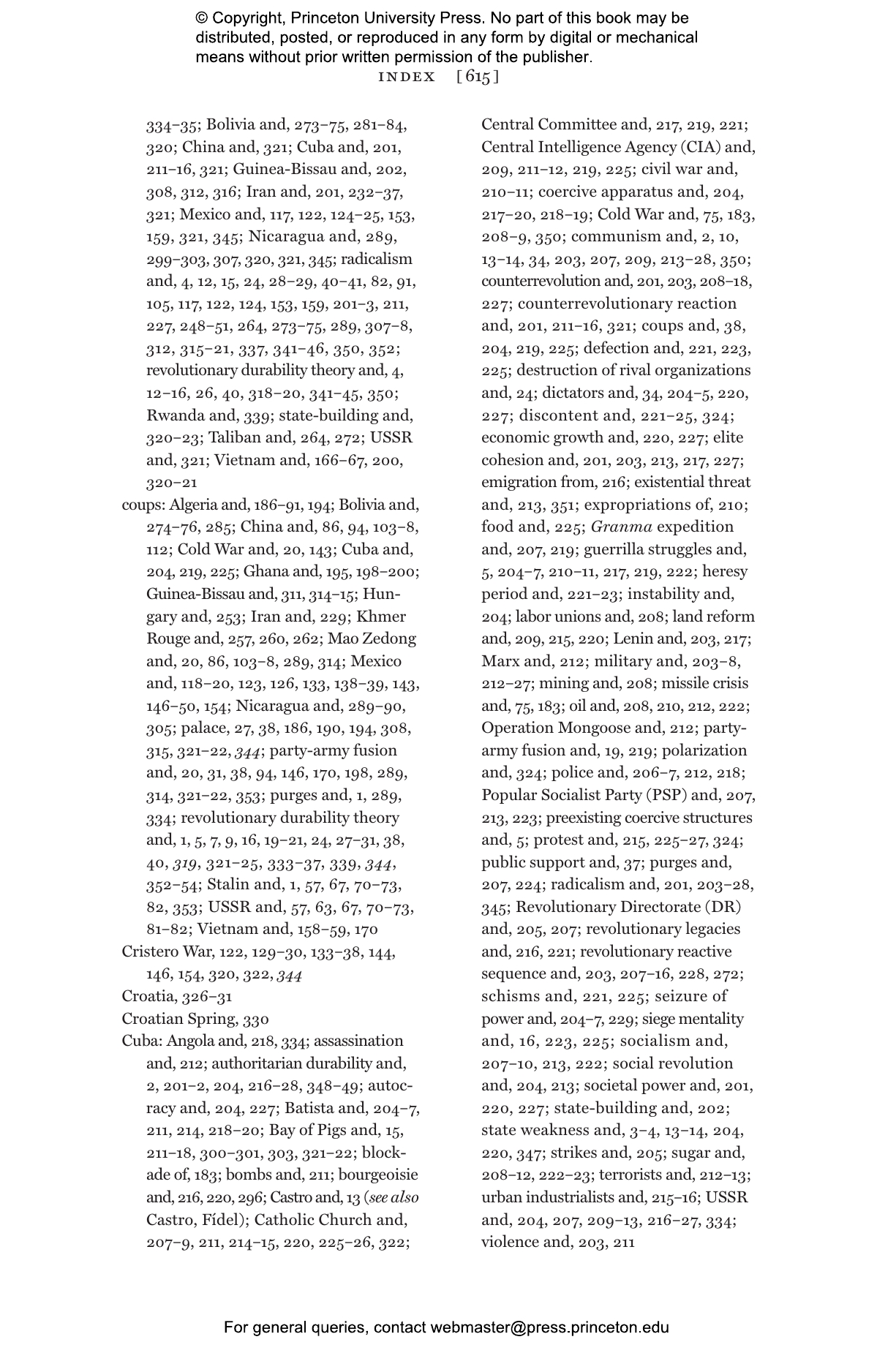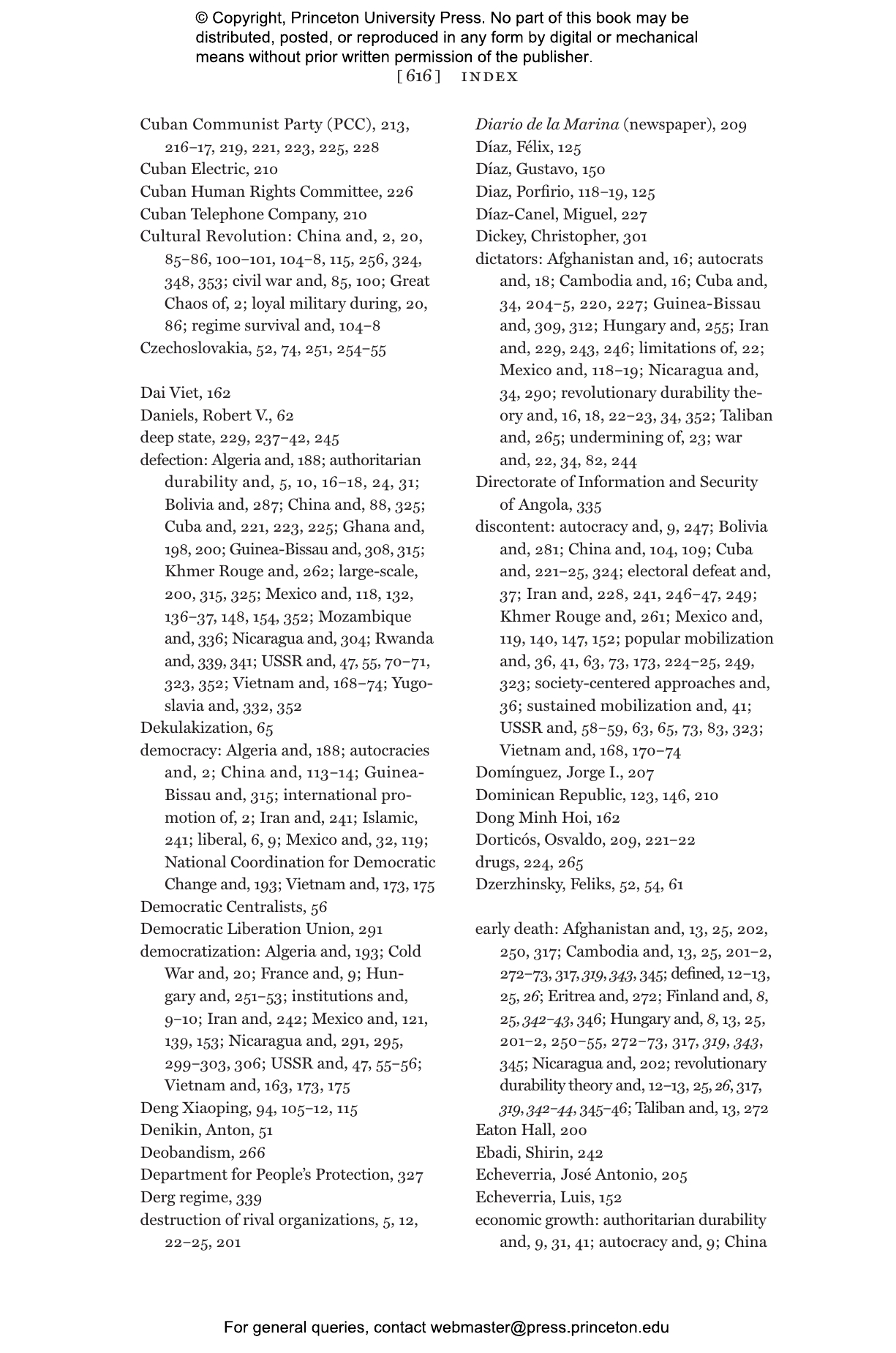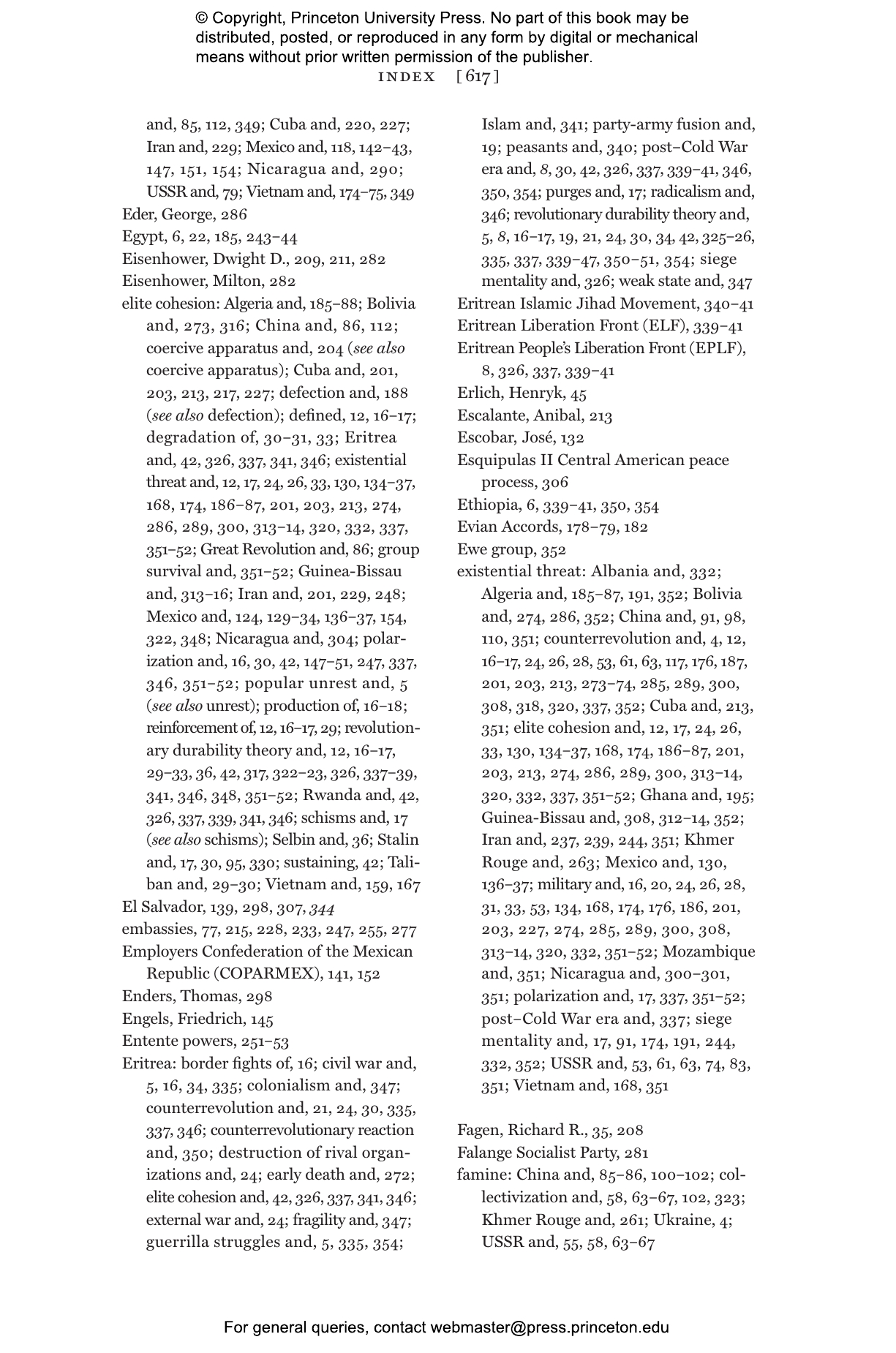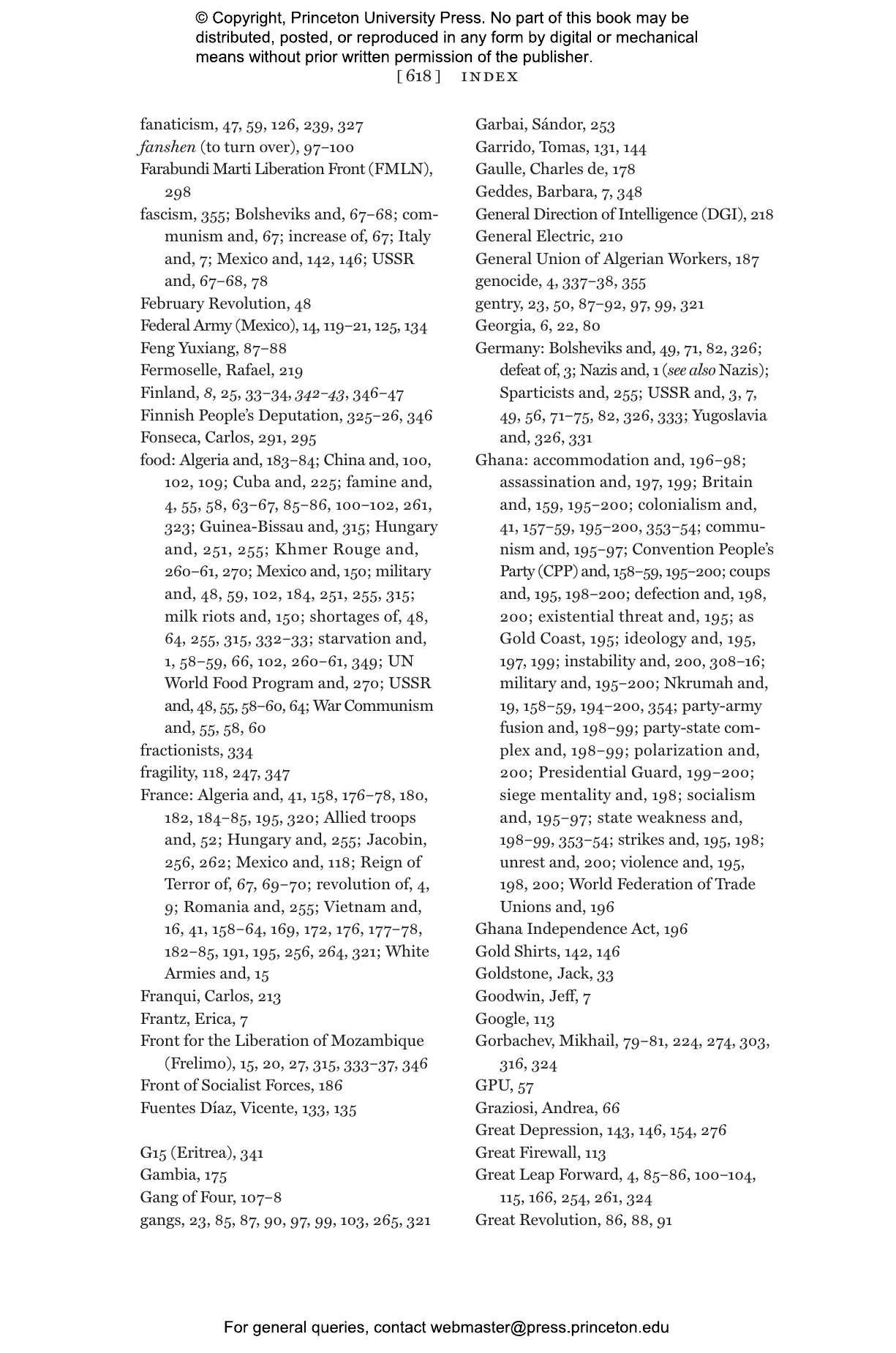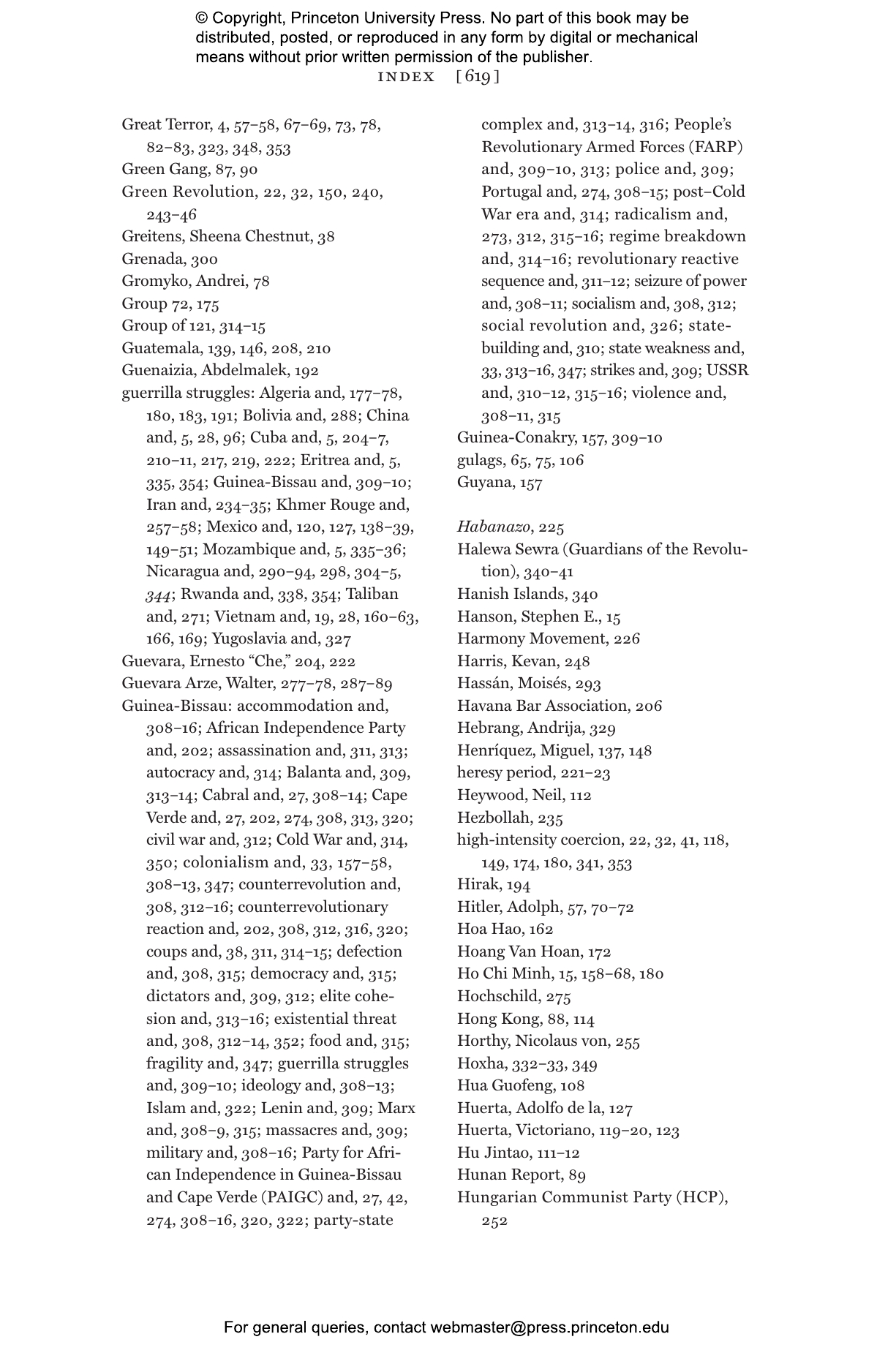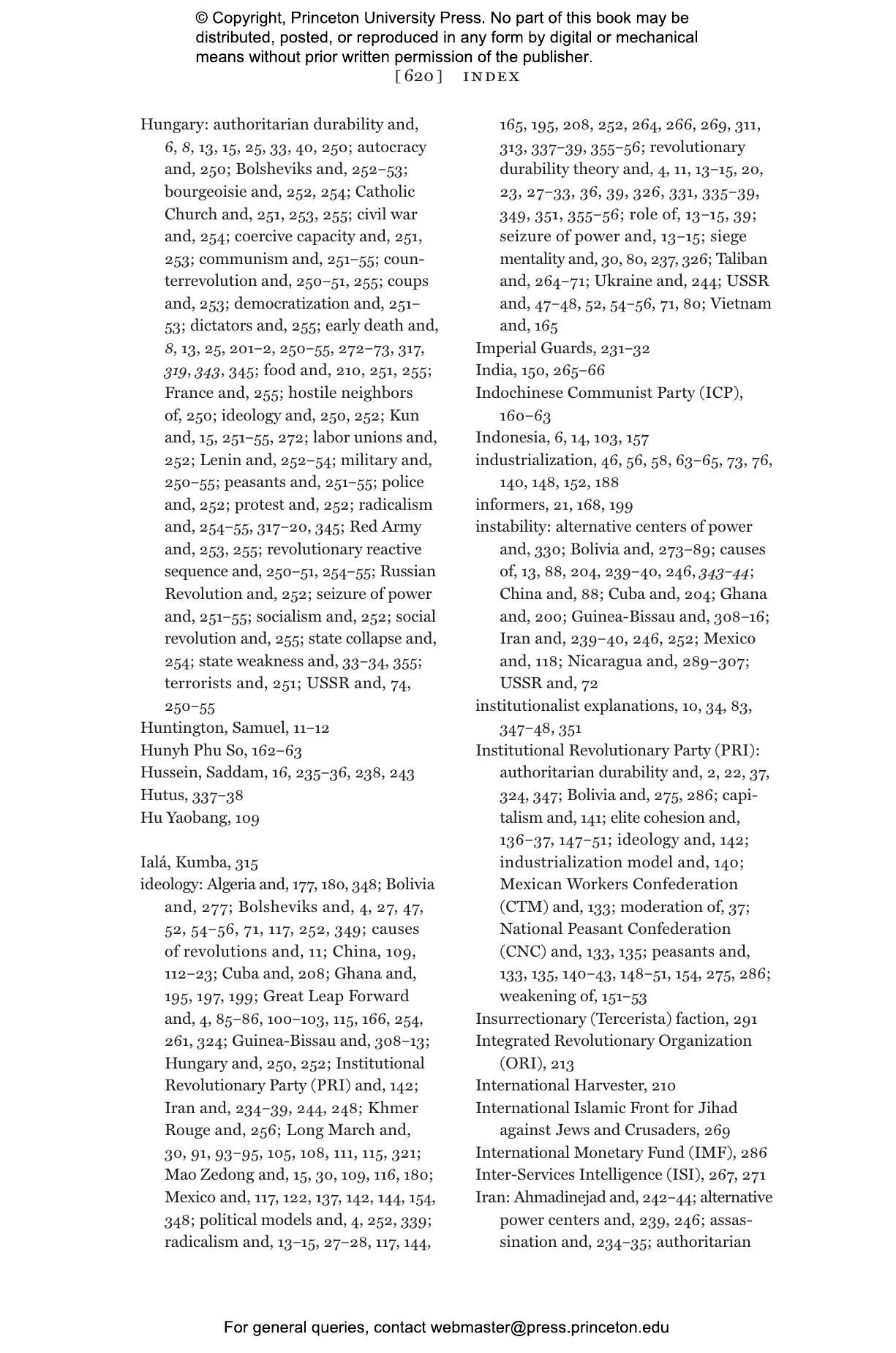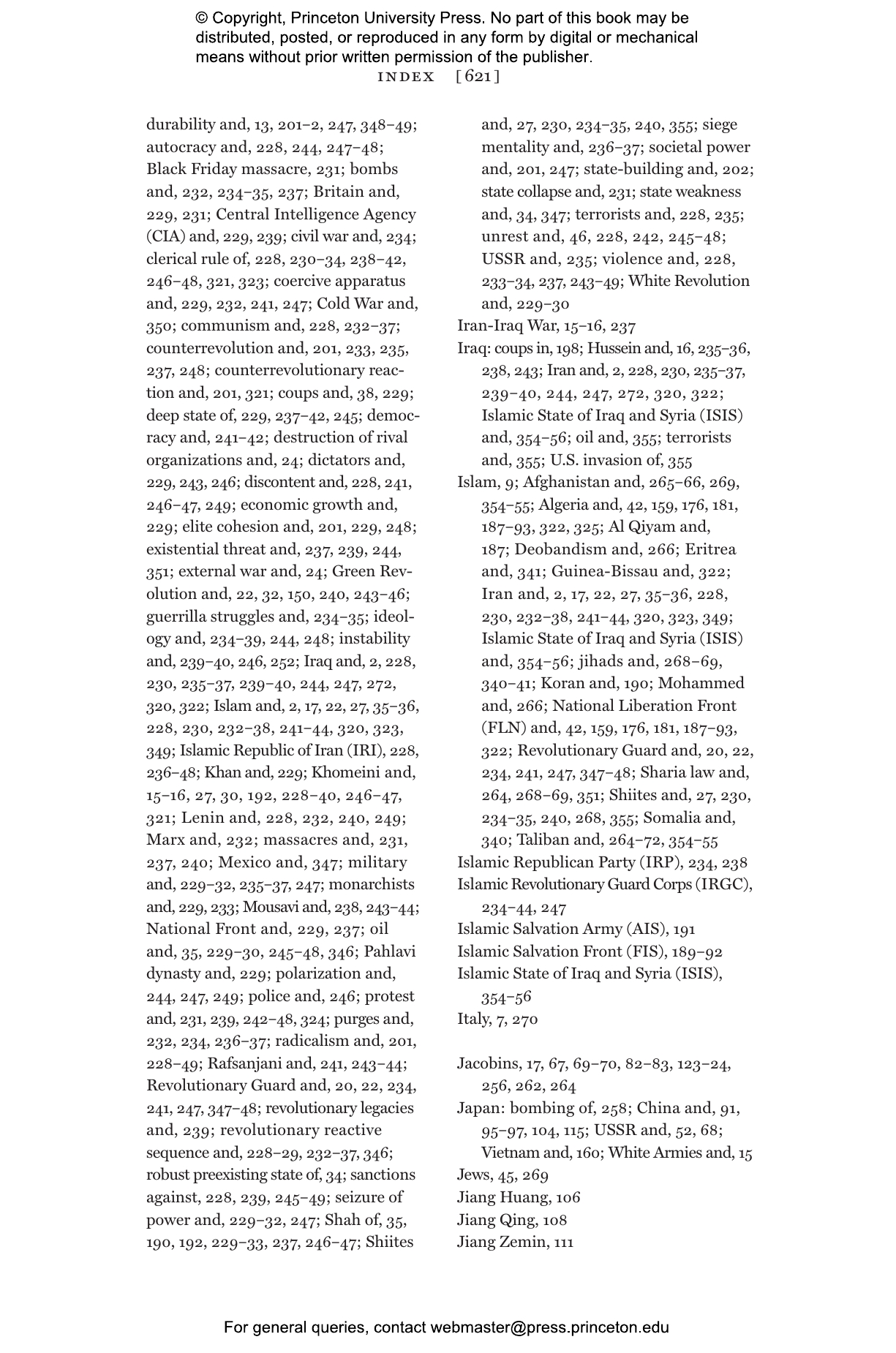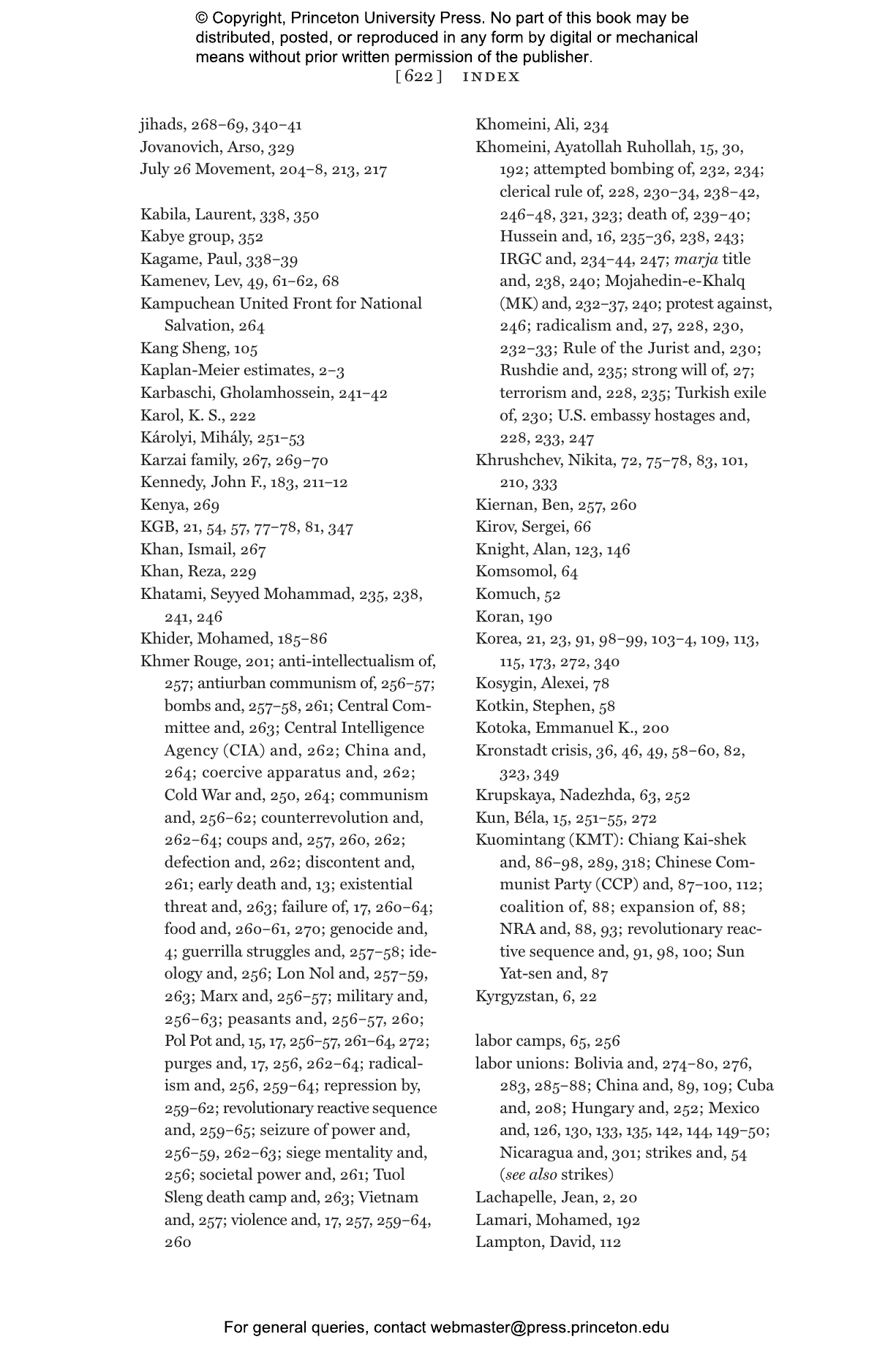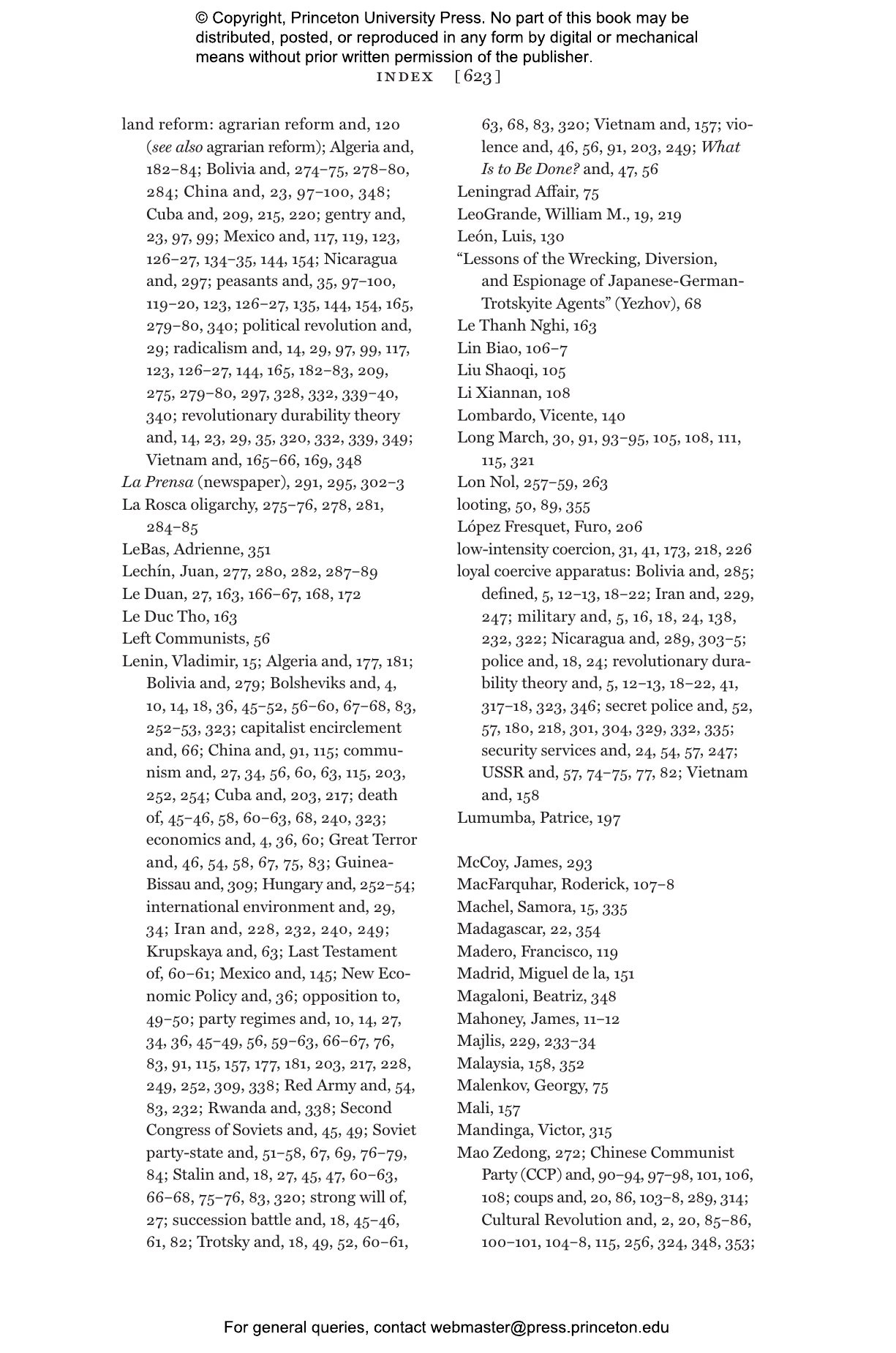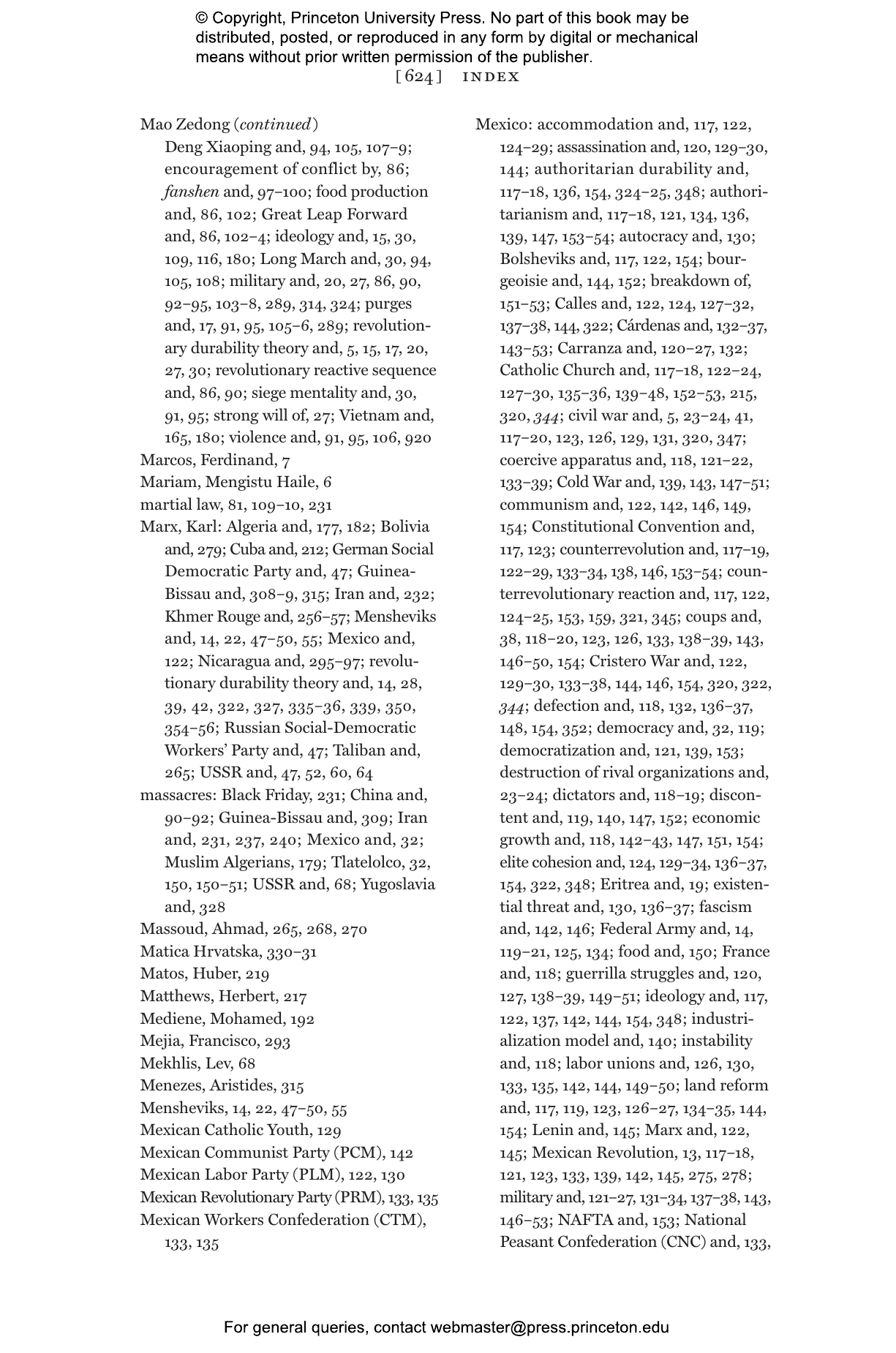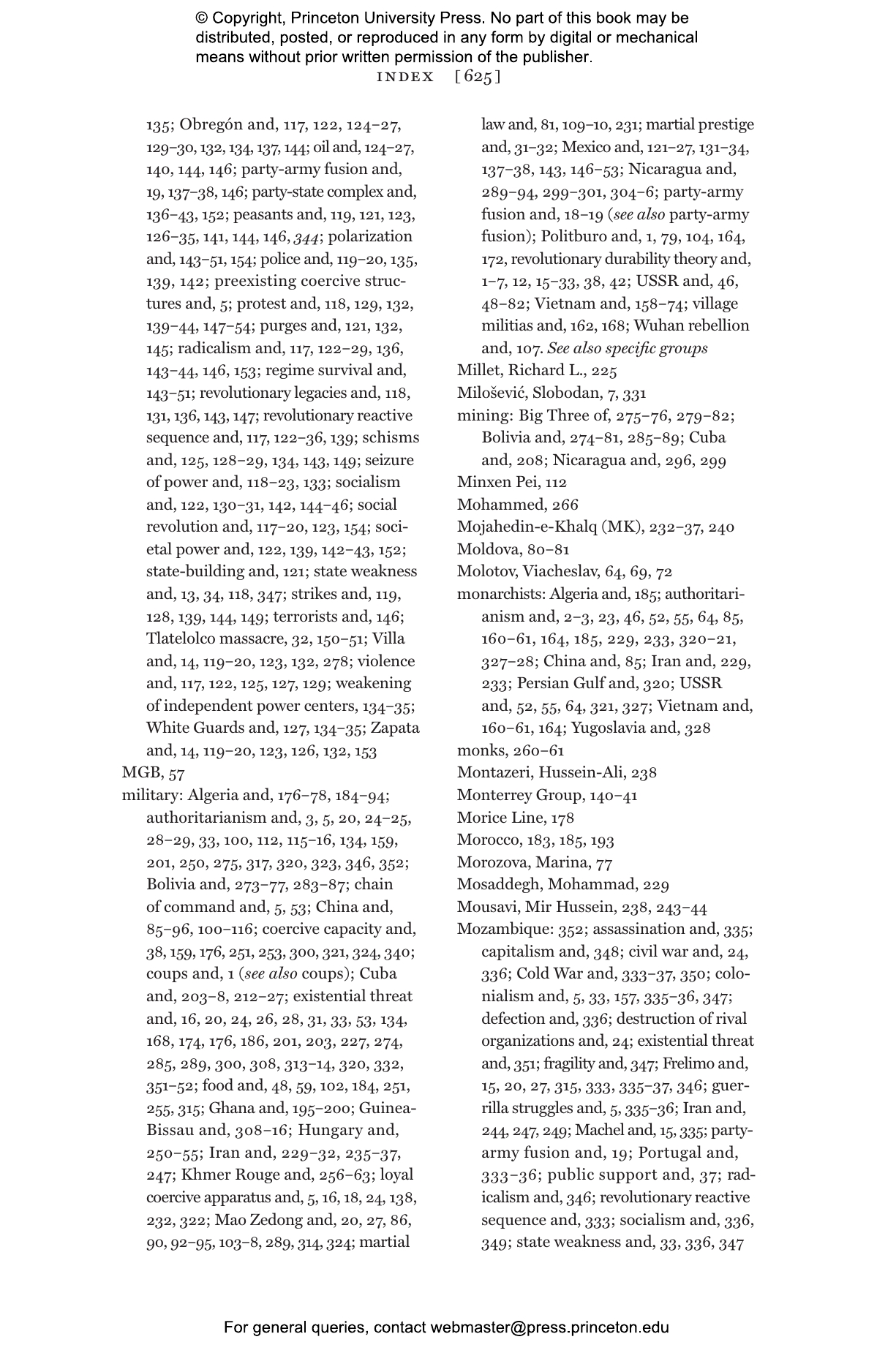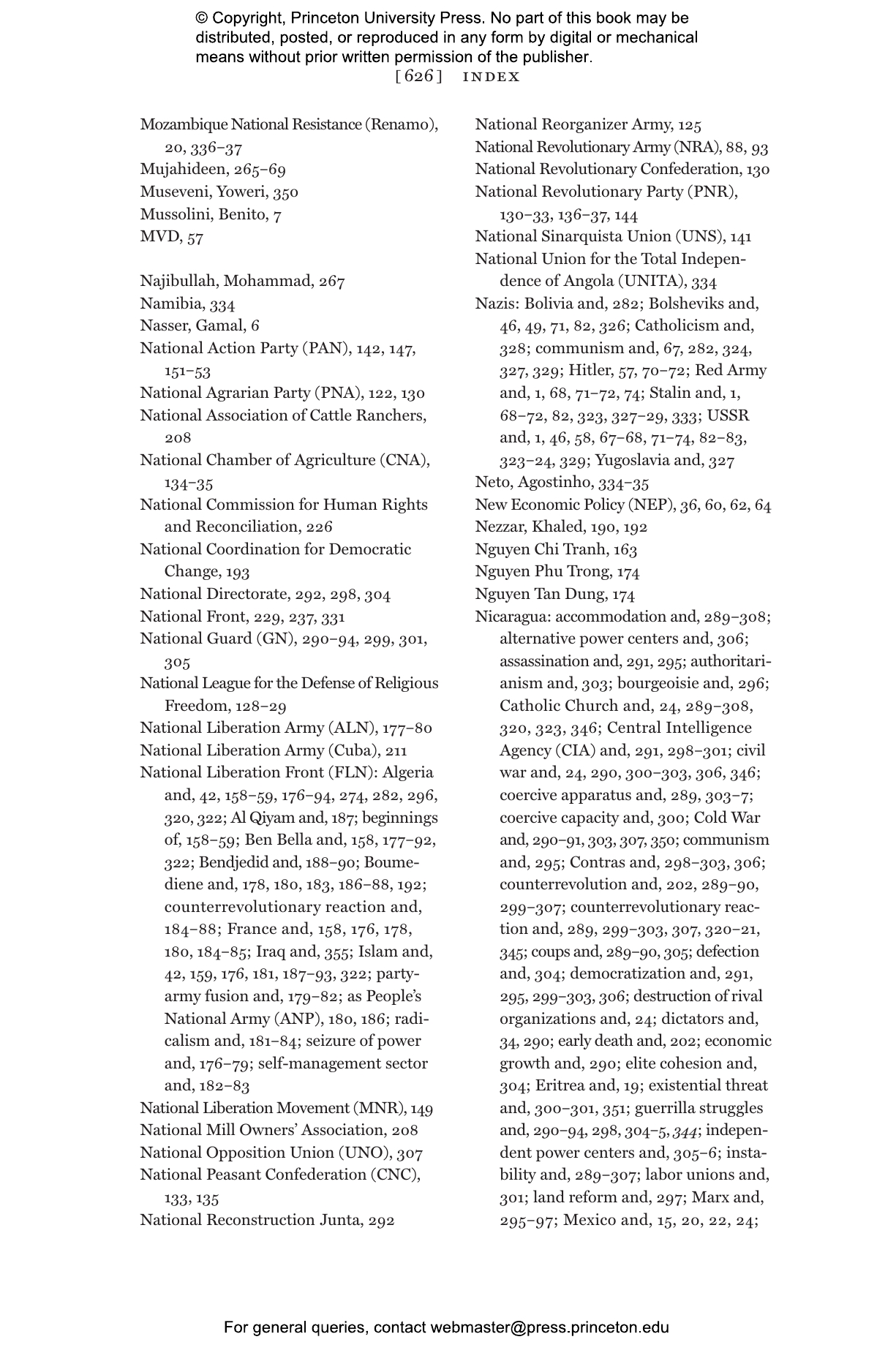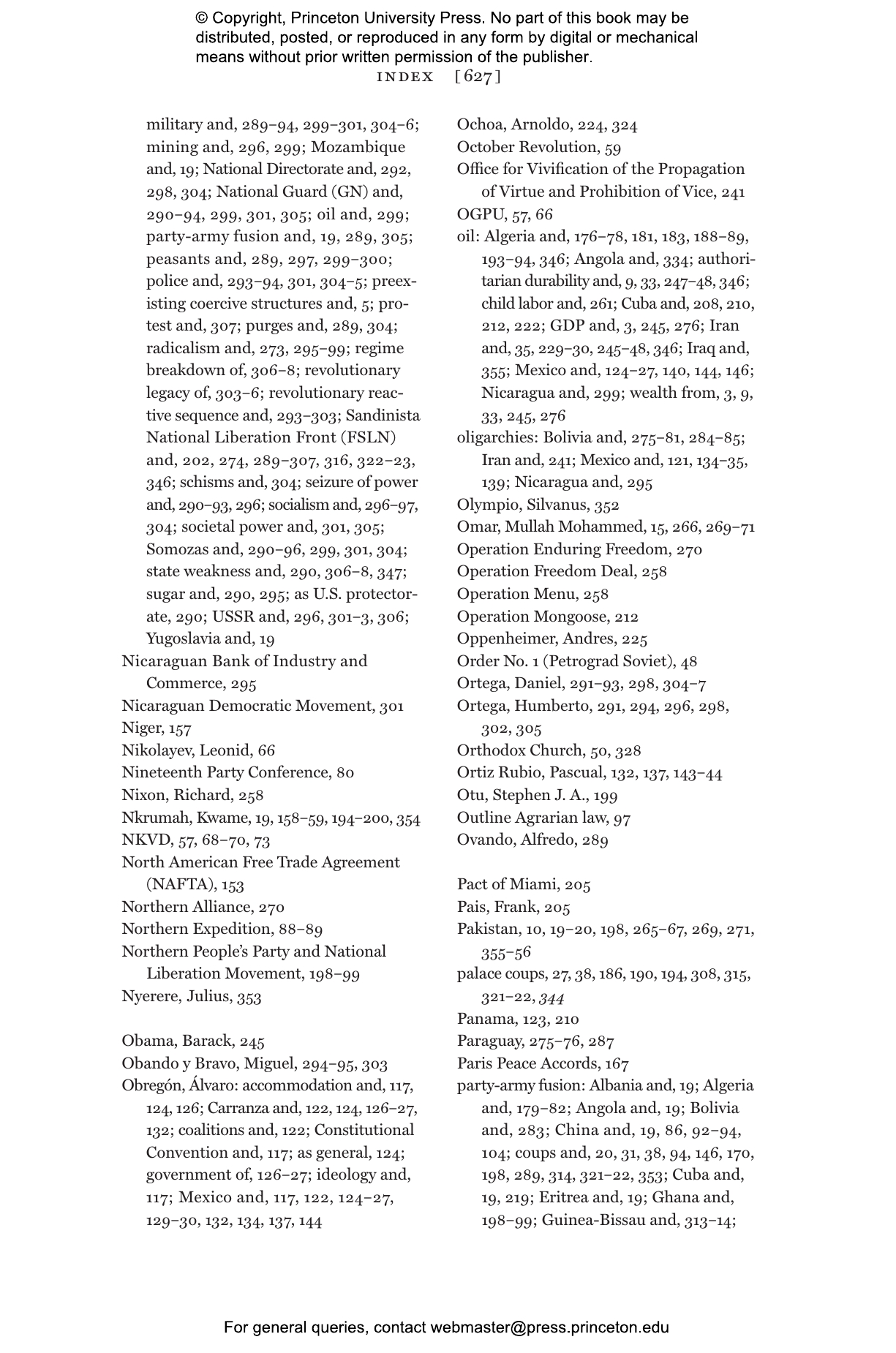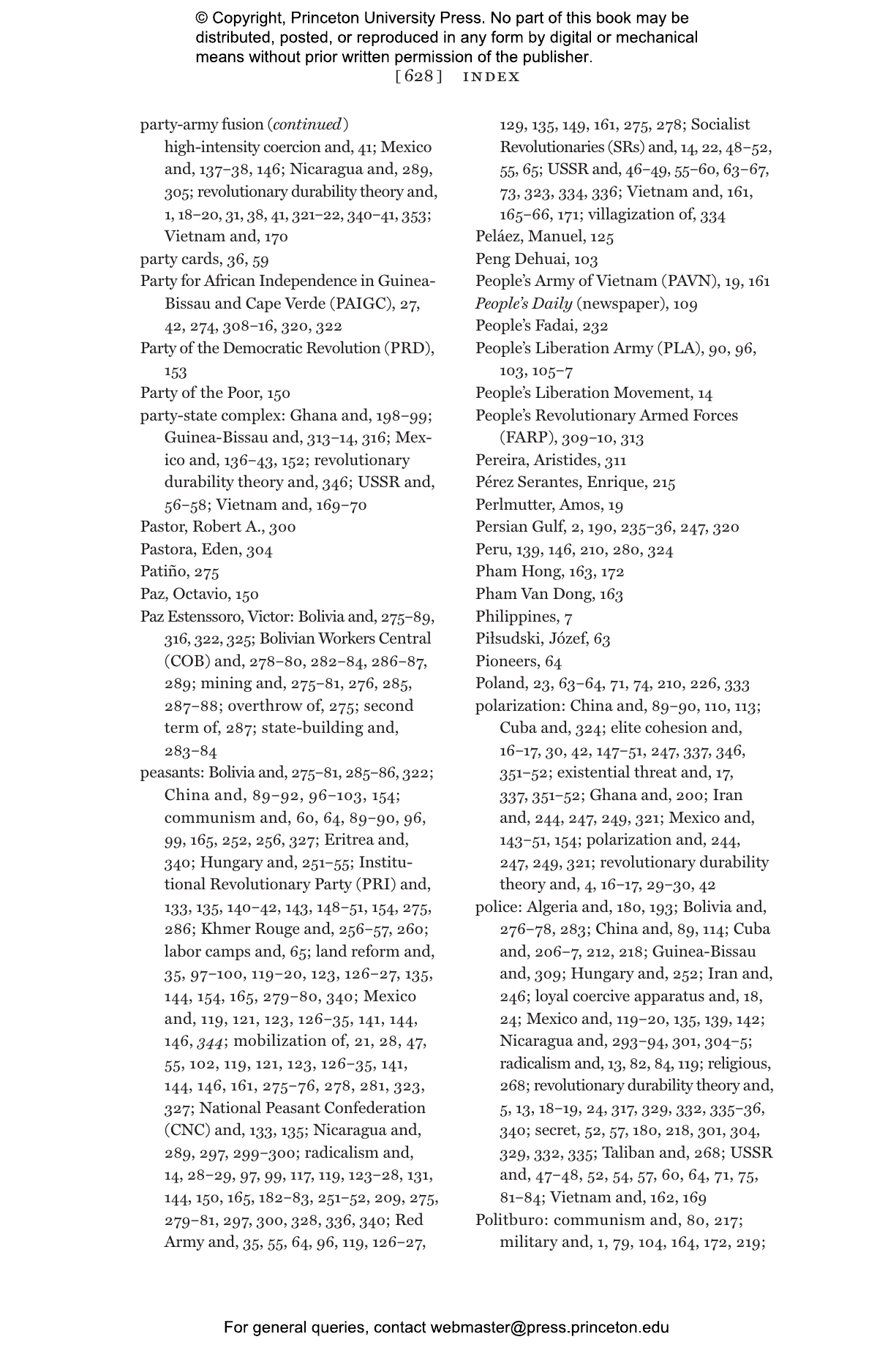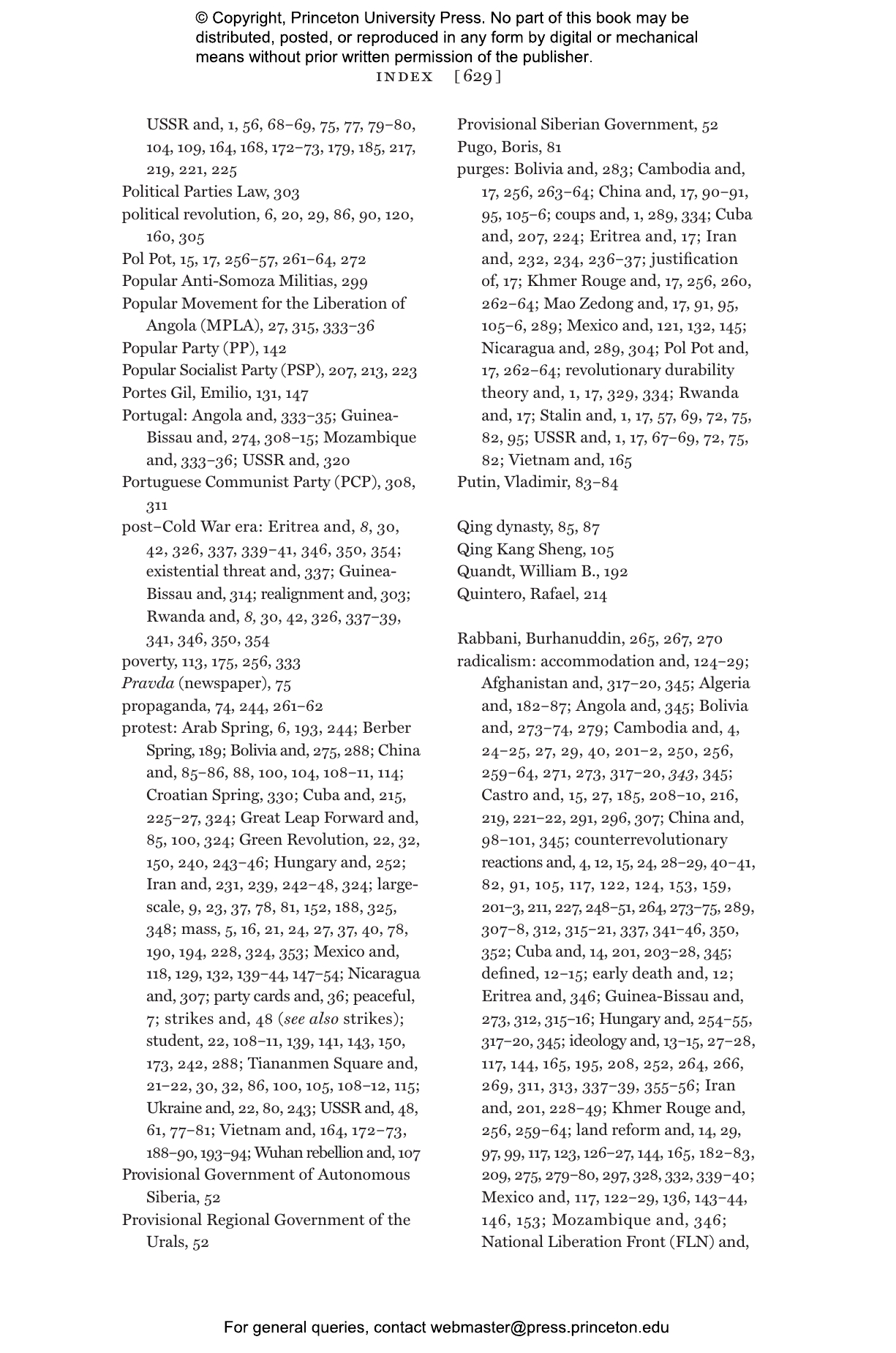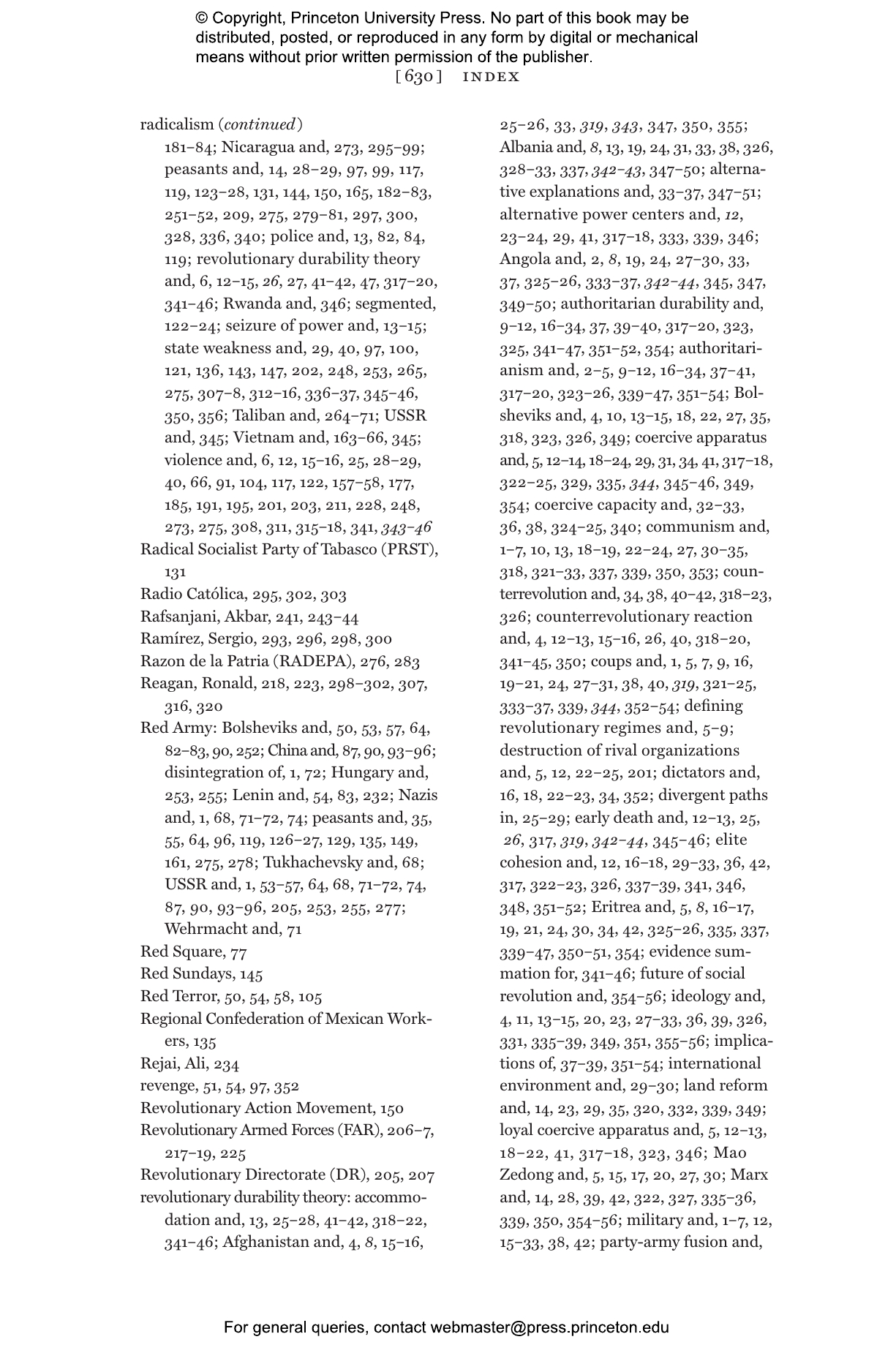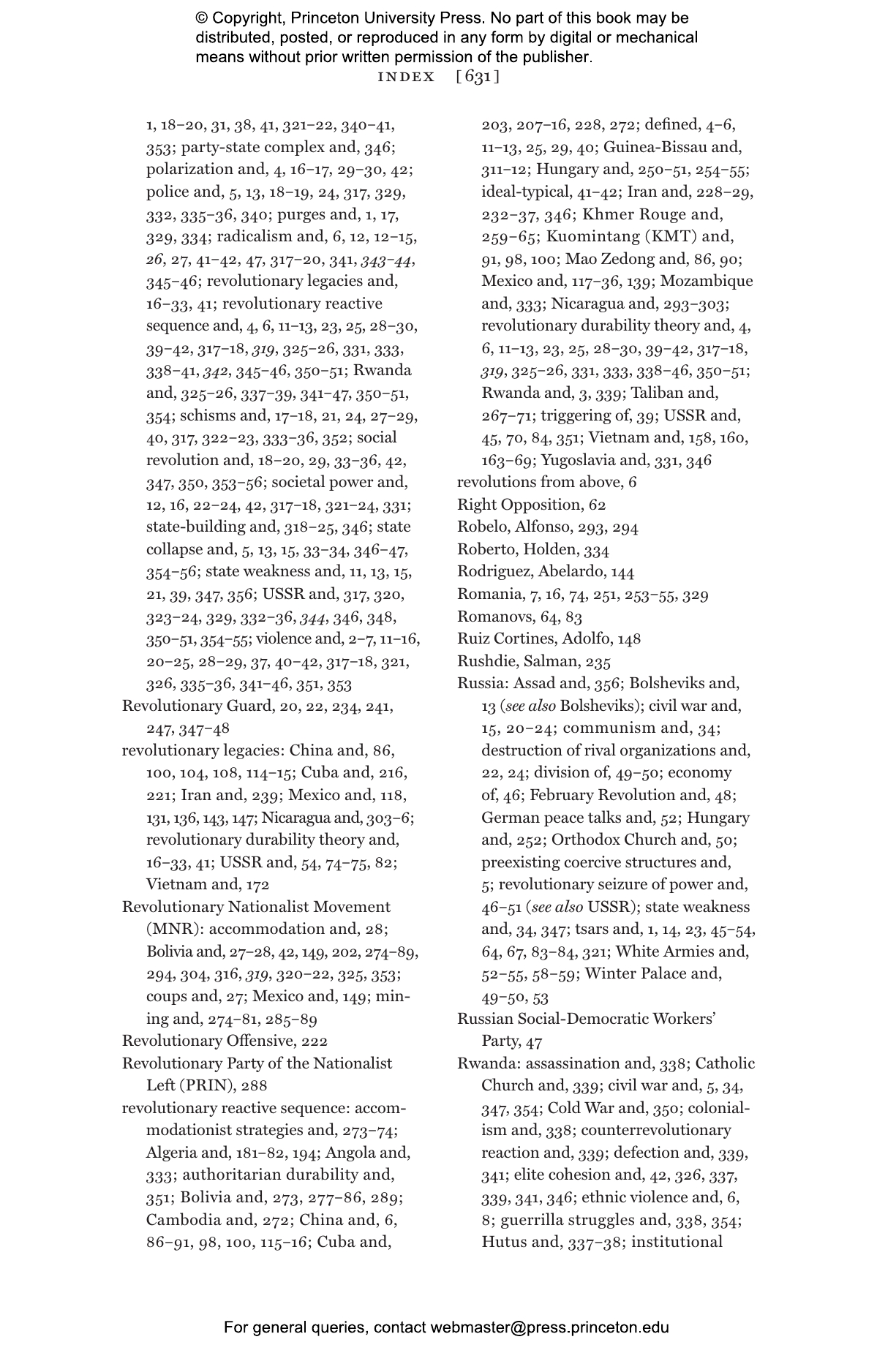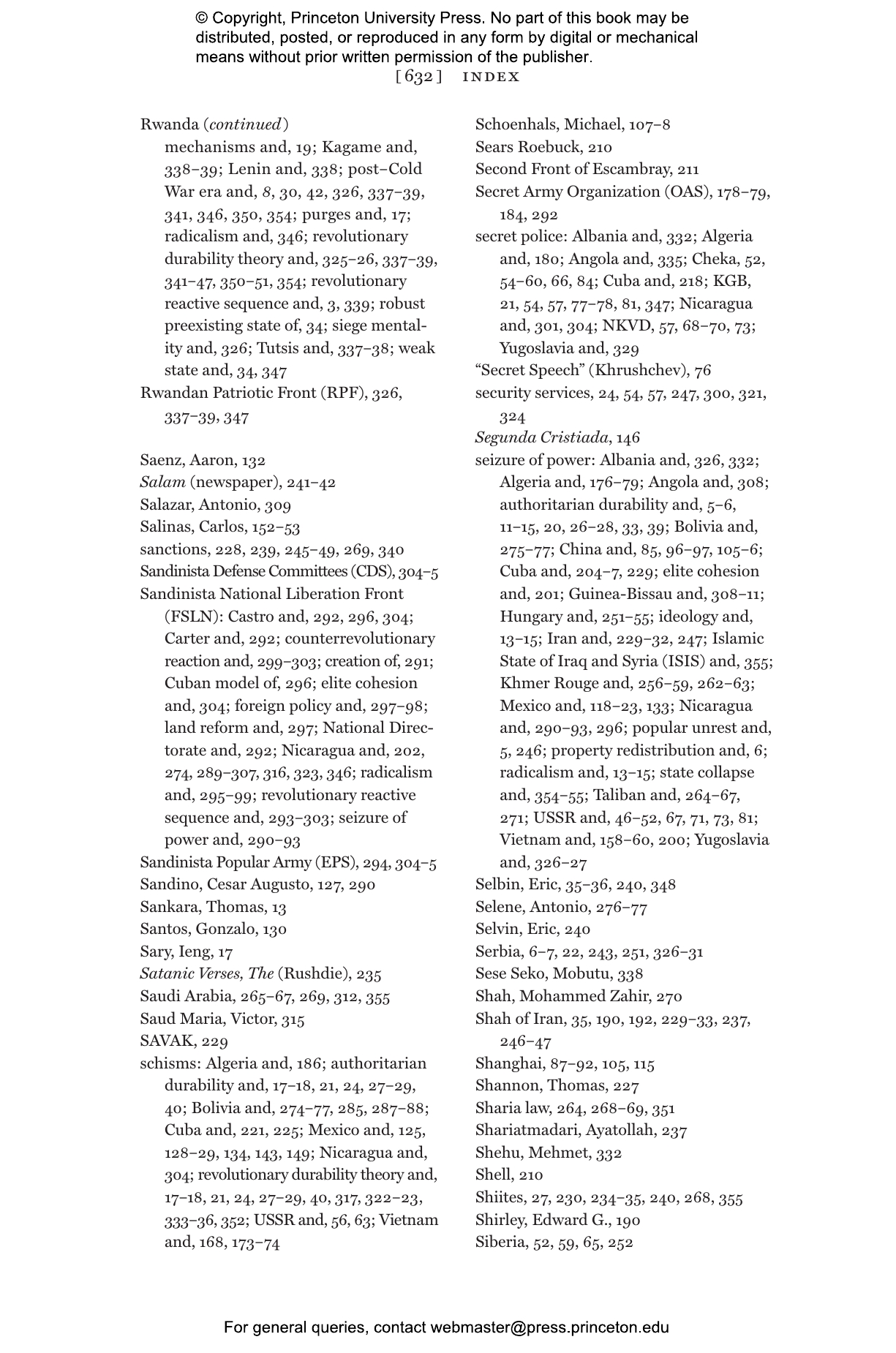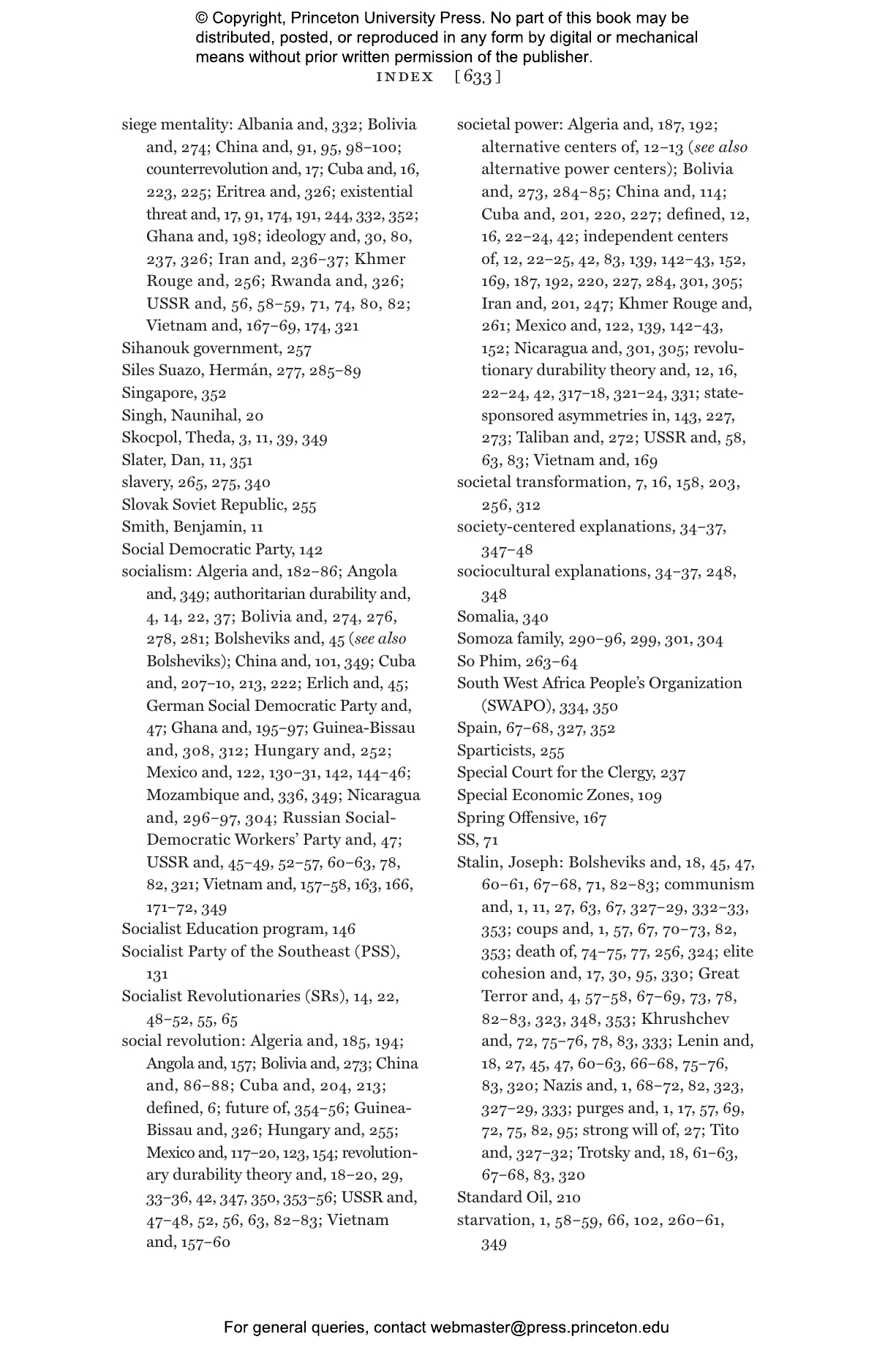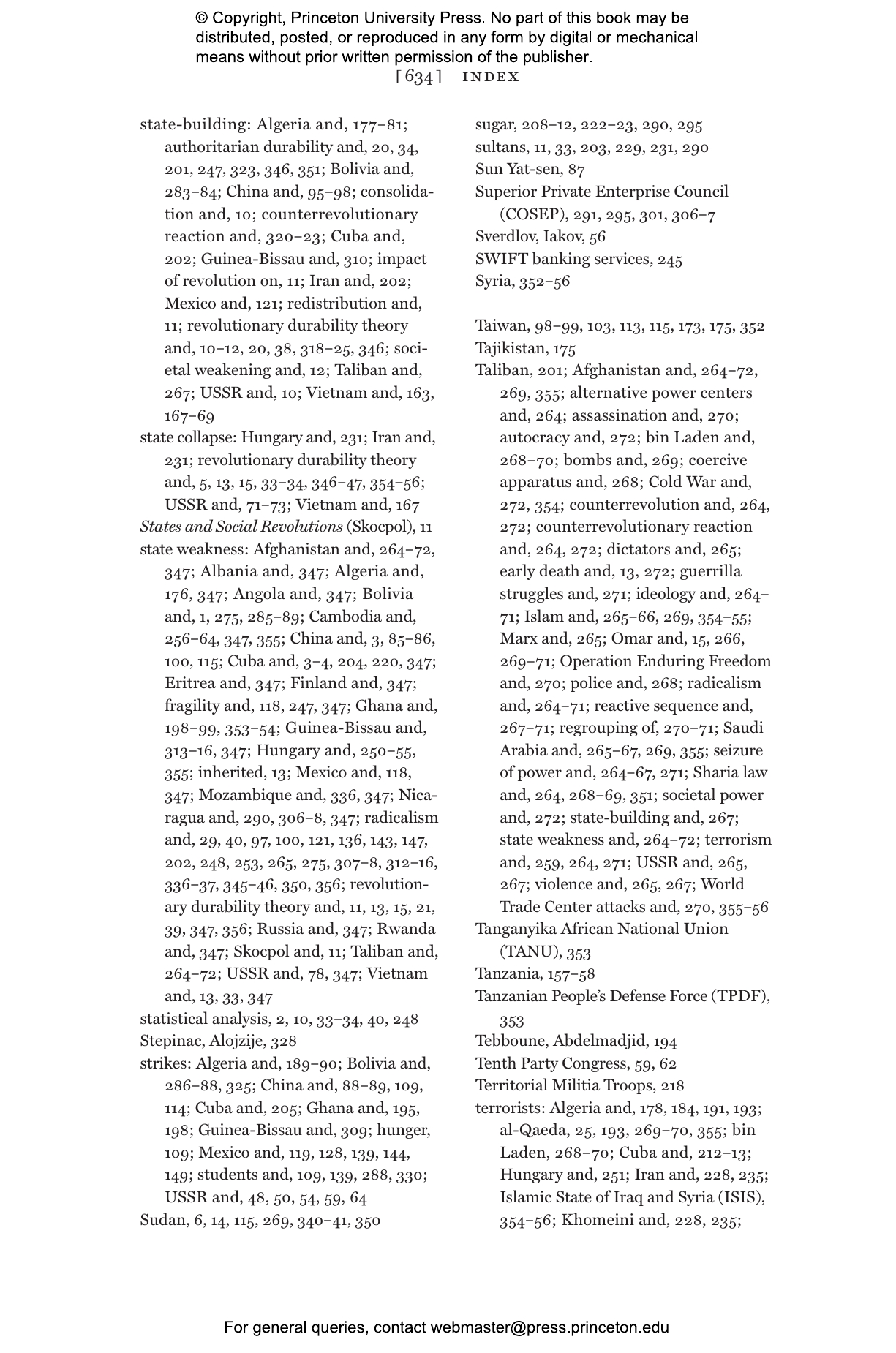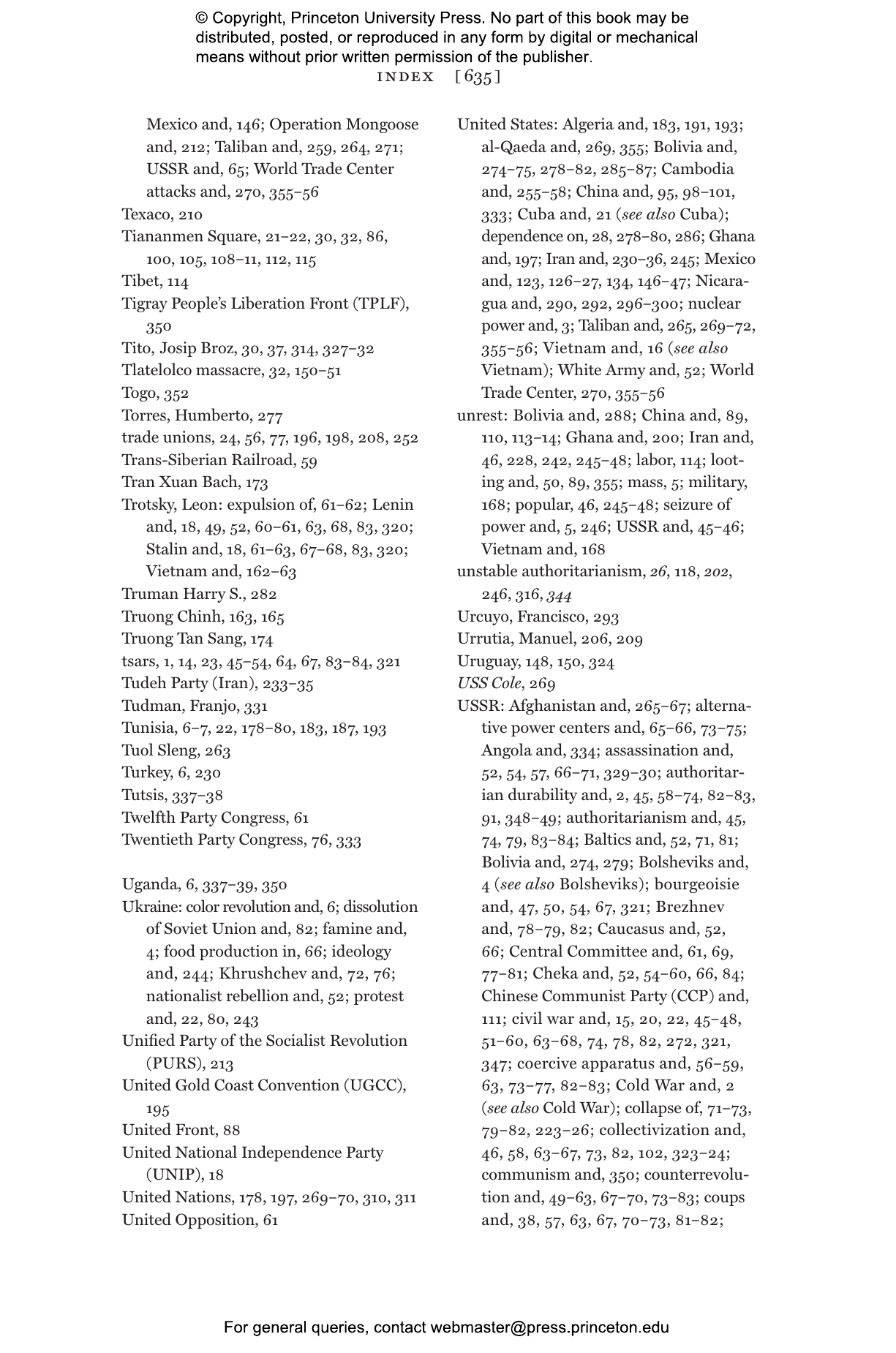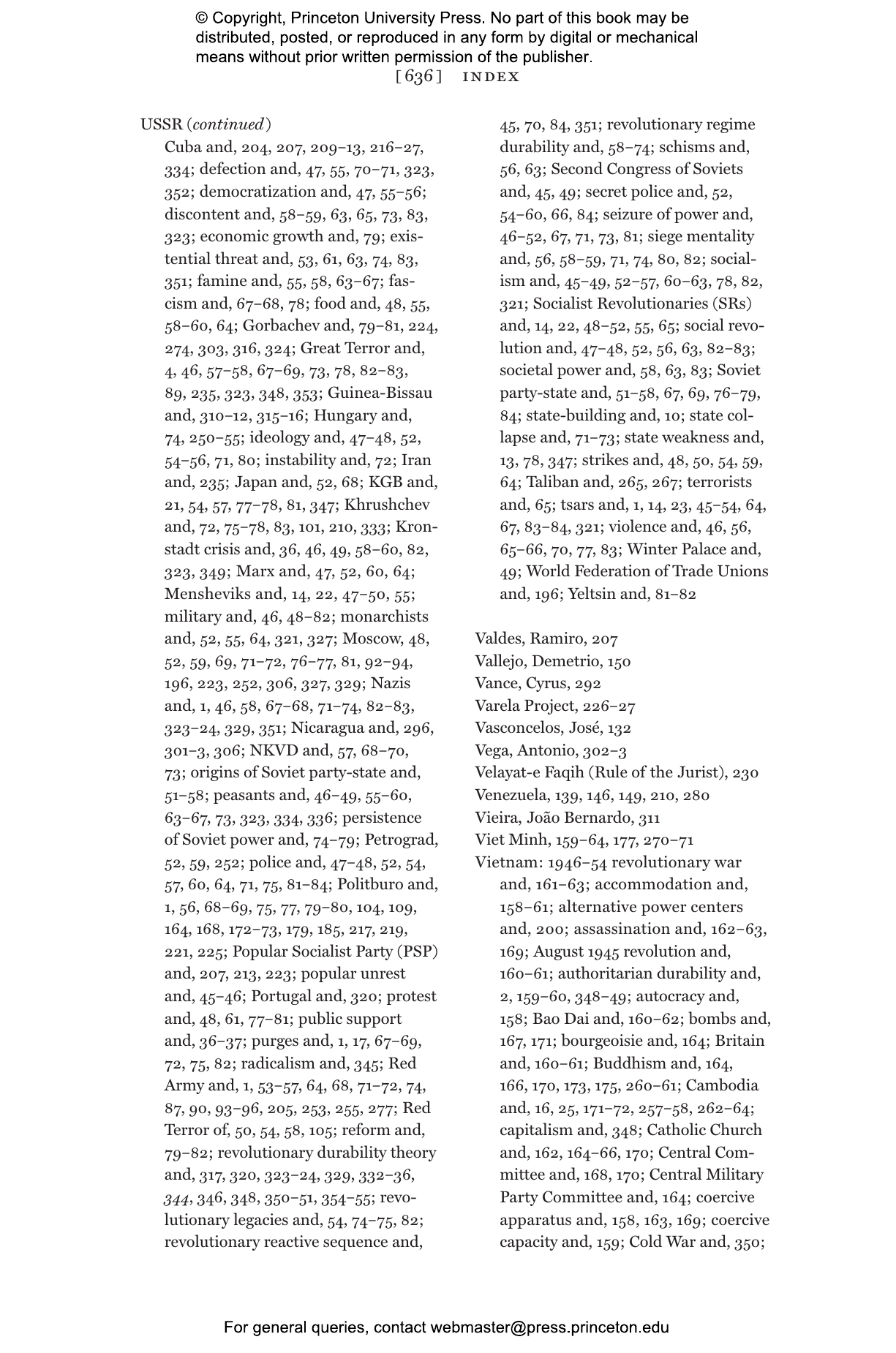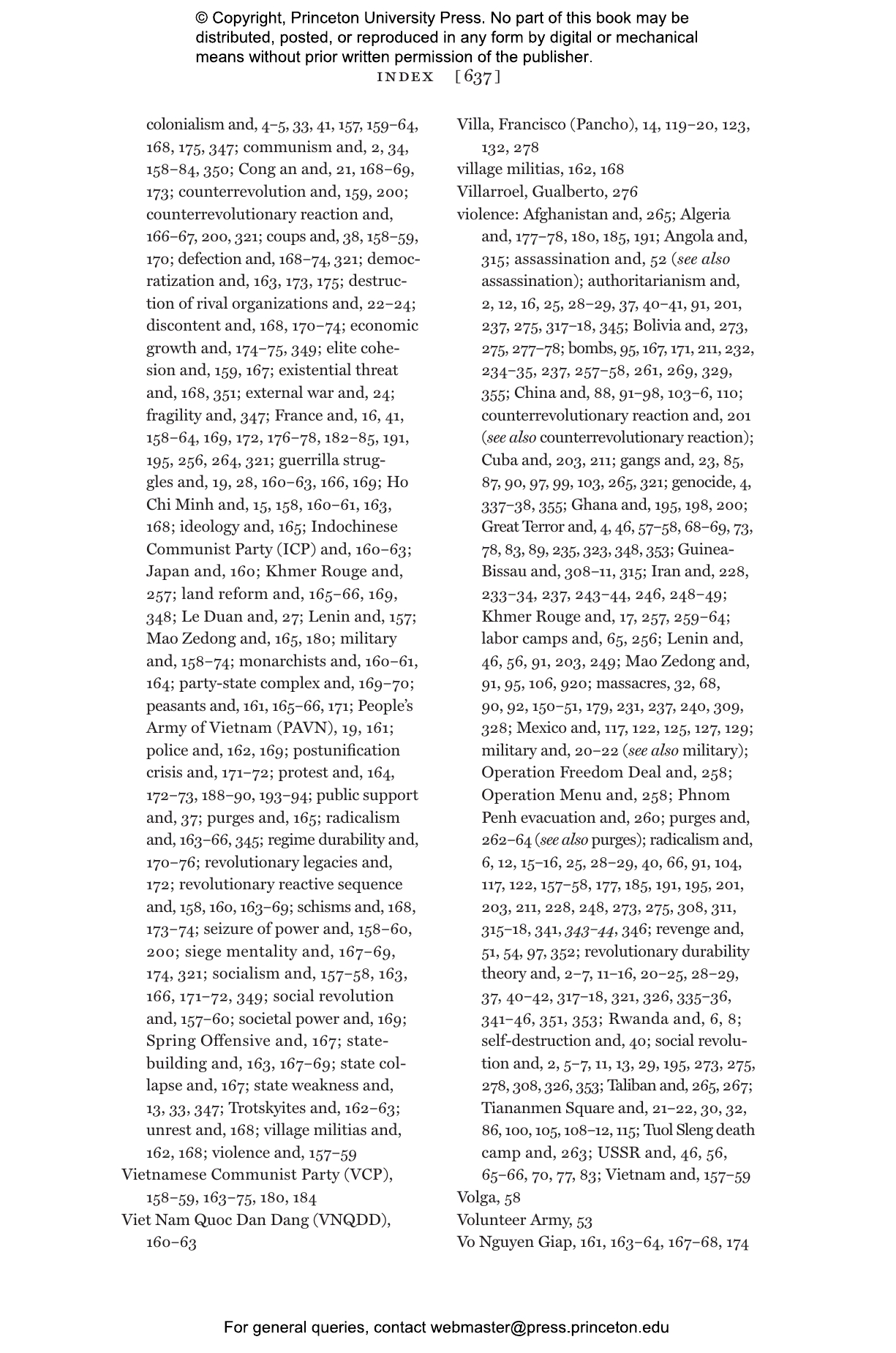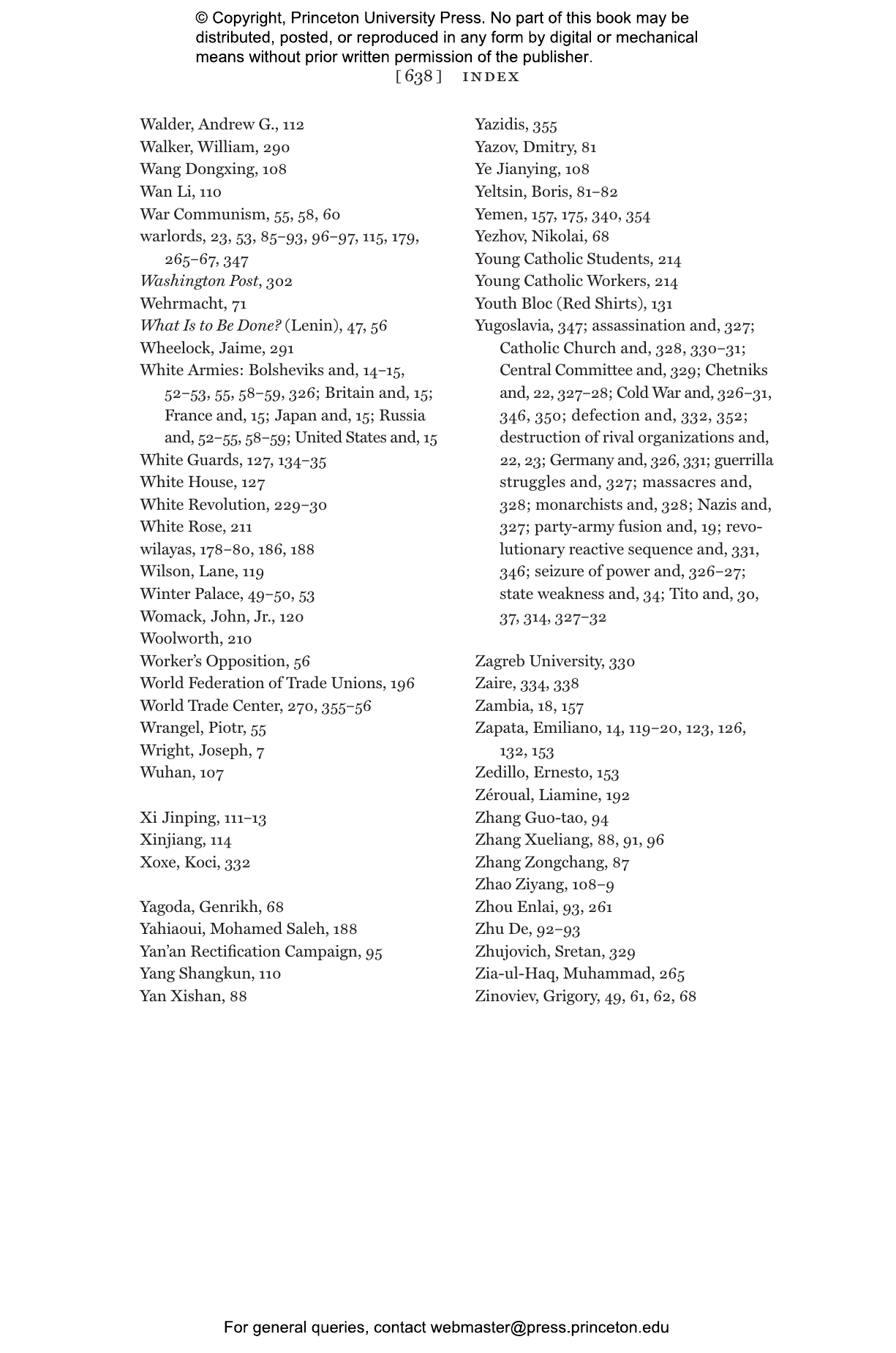Revolution and Dictatorship explores why dictatorships born of social revolution—such as those in China, Cuba, Iran, the Soviet Union, and Vietnam—are extraordinarily durable, even in the face of economic crisis, large-scale policy failure, mass discontent, and intense external pressure. Few other modern autocracies have survived in the face of such extreme challenges. Drawing on comparative historical analysis, Steven Levitsky and Lucan Way argue that radical efforts to transform the social and geopolitical order trigger intense counterrevolutionary conflict, which initially threatens regime survival, but ultimately fosters the unity and state-building that supports authoritarianism.
Although most revolutionary governments begin weak, they challenge powerful domestic and foreign actors, often bringing about civil or external wars. These counterrevolutionary wars pose a threat that can destroy new regimes, as in the cases of Afghanistan and Cambodia. Among regimes that survive, however, prolonged conflicts give rise to a cohesive ruling elite and a powerful and loyal coercive apparatus. This leads to the downfall of rival organizations and alternative centers of power, such as armies, churches, monarchies, and landowners, and helps to inoculate revolutionary regimes against elite defection, military coups, and mass protest—three principal sources of authoritarian breakdown.
Looking at a range of revolutionary and nonrevolutionary regimes from across the globe, Revolution and Dictatorship shows why governments that emerge from violent conflict endure.
Awards and Recognition
- One of TIME's 33 Most Anticipated Books of Fall 2022
- Shortlisted for the Lionel Gelber Prize, Lionel Gelber Foundation
- Winner of the Juan Lin Best Book Prize, Democracy & Autocracy section of the American Political Science Association
- Winner of the Juan Linz Best Book Prize, Democracy & Autocracy section of the American Political Science Association
- A Choice Outstanding Academic Title of the Year
Steven Levitsky is the David Rockefeller Professor of Latin American Studies, professor of government, and director of the David Rockefeller Center for Latin American Studies at Harvard University. His books include How Democracies Die and Transforming Labor-Based Parties in Latin America. Lucan Way is Distinguished Professor of Democracy in the Department of Political Science and codirector of the Petro Jacyk Program for the Study of Ukraine at the University of Toronto. He is the author of Pluralism by Default. Levitsky and Way are the coauthors of Competitive Authoritarianism.
"A sweeping historical analysis."—Dexter Roberts, Washington Post
"A clear and comprehensive analysis."—Cady Lang and Angela Haupt, Time
"Two of the most prolific and respected scholars of democracy and dictatorship, Steven Levitsky and Lucan Way . . . bring together their immense regional and theoretical expertise in their new book, Revolution and Dictatorship. For those trying to understand where history is headed, their approach offers useful insights and lessons."—Sheri Berman, Foreign Affairs
"Clear and original. . . . Persuasive."—George Anderson, Literary Review of Canada
"An interesting and rigorous analysis of why so many autocratic states born of social revolutions—from the USSR to China to Iran and so on—prove immovable in the face of problems that would end normal regimes."—David Patrikarakos, The Spectator
“Revolution and Dictatorship is a masterful work of comparative historical analysis—insightful, ambitious, and provocative. Its driving insight, that violent revolutionary birth serves as a crucible for autocratic durability, will prove irresistible to all scholars intent on deciphering the variable longevity of authoritarian and totalitarian regimes.”—Eva Bellin, Brandeis University
“In this towering study, Steven Levitsky and Lucan Way resolve one of the great puzzles of comparative politics—why seemingly reckless revolutionary regimes, with their brutal violence and merciless destruction of social orders, prove so remarkably durable. Analytically trenchant and breathtaking in scope, Revolution and Dictatorship ranks among the great works in the comparative historical study of regimes.”—Larry Diamond, Stanford University
“Revolution and Dictatorship provides a comprehensive and convincing explanation for why revolutionary regimes in places like China, Cuba, Mexico, and Iran have been so durable. Based on meticulous comparative scholarship, it adds significantly to our understanding of the nature of authoritarian government that is shaping the contemporary world.”—Francis Fukuyama, Stanford University
“Levitsky and Way have done it again! In Revolution and Dictatorship, they give us a clear, logical, and analytically sophisticated argument about the durability of postrevolution regimes. They assess this argument through fascinating historical narratives of many of the most important political events in modern world history. I couldn’t stop reading this exciting book.”—James Mahoney, Northwestern University
